Mental Health America of Central Carolinas
Providing mental wellness support
President of R.J. Leeper Construction
CEO Creates HERstory Finding Homes for Foster Children
The need is always great


Mental Health America of Central Carolinas
Providing mental wellness support
President of R.J. Leeper Construction
CEO Creates HERstory Finding Homes for Foster Children
The need is always great

Serving as Novant Health’s Chief of Protective Services
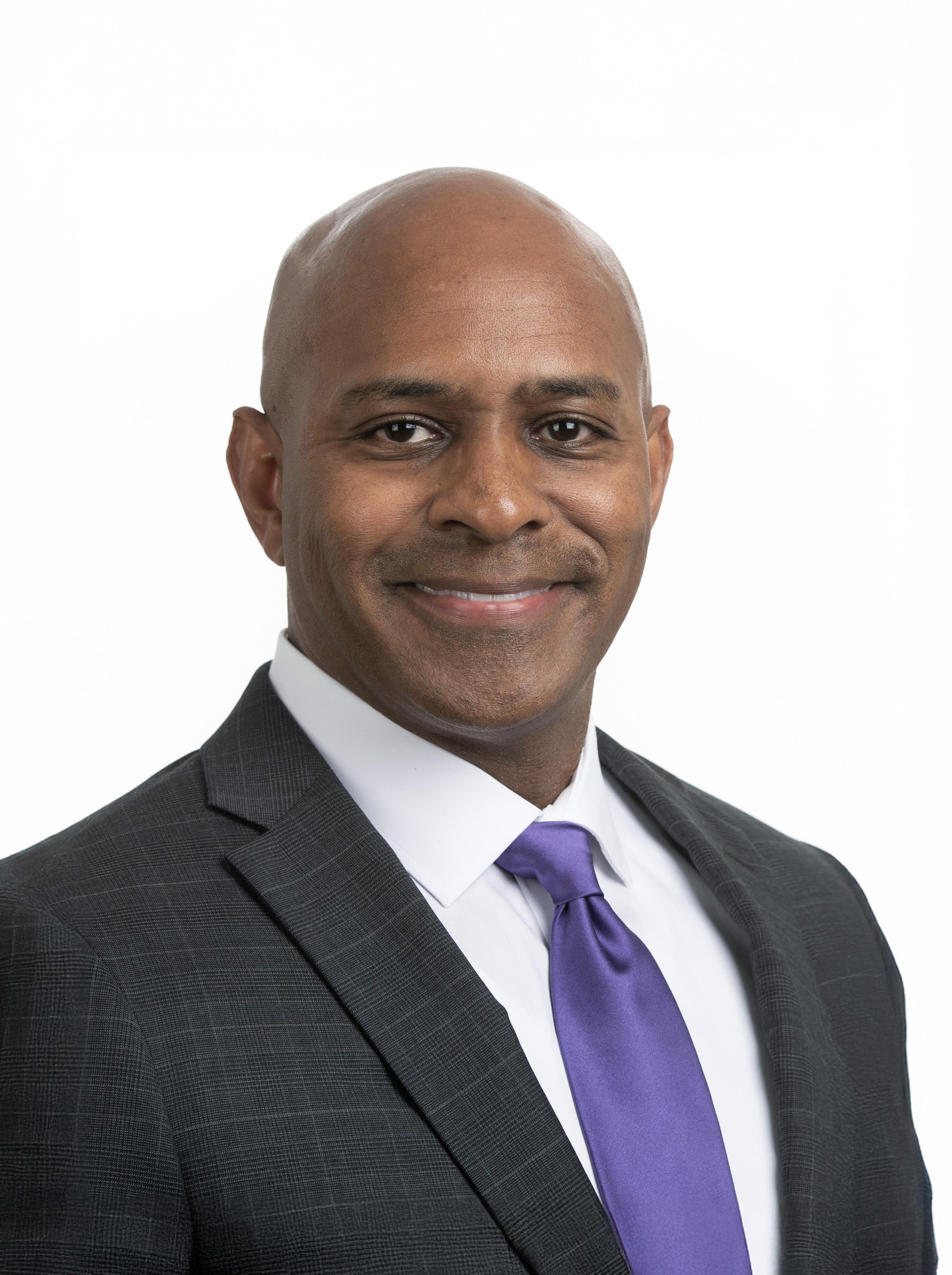

The cost of a high-quality education isn’t out of reach. At Central Piedmont, we offer access to internships, paid apprenticeships, and nearly $4 million in scholarships. It’s just one more way we help you conquer possibility.
Visit cpcc.edu to learn more.

Running a business means taking risks, digging deep, and caring for your customers and community. Having a true partner that understands this—and works hard for you—makes all the difference.
We’re here to understand your vision and meet your evolving needs with practical advice, full-scale capabilities, and proactive solutions for every stage of your business.
See what true partnership can do. Truist.com/SmallBusiness

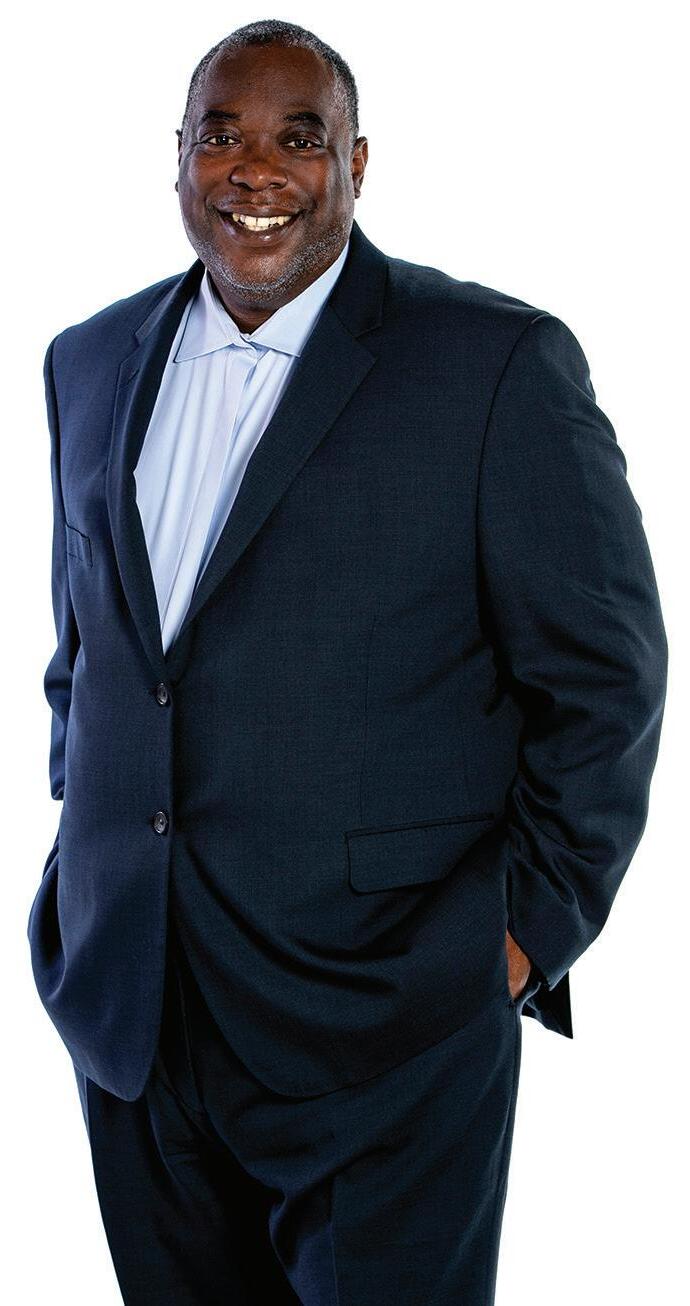



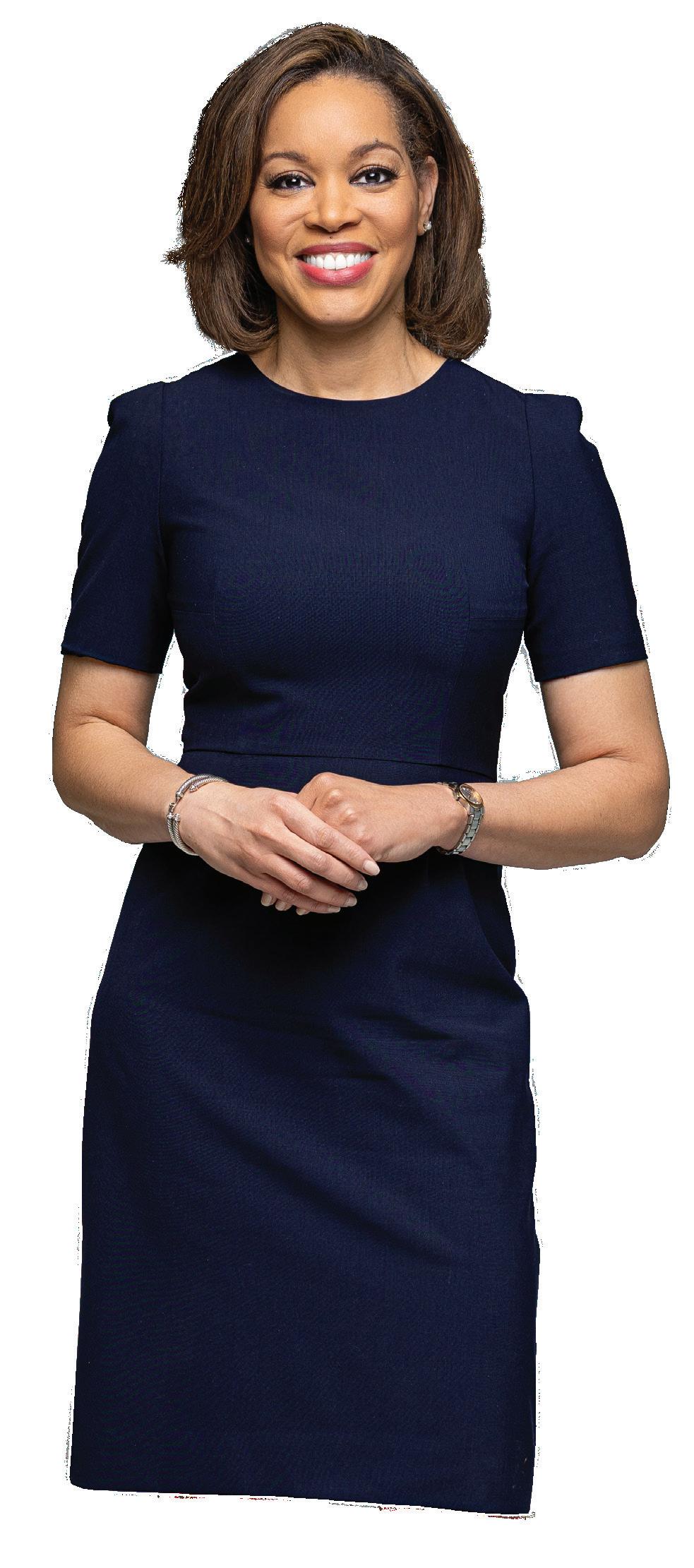

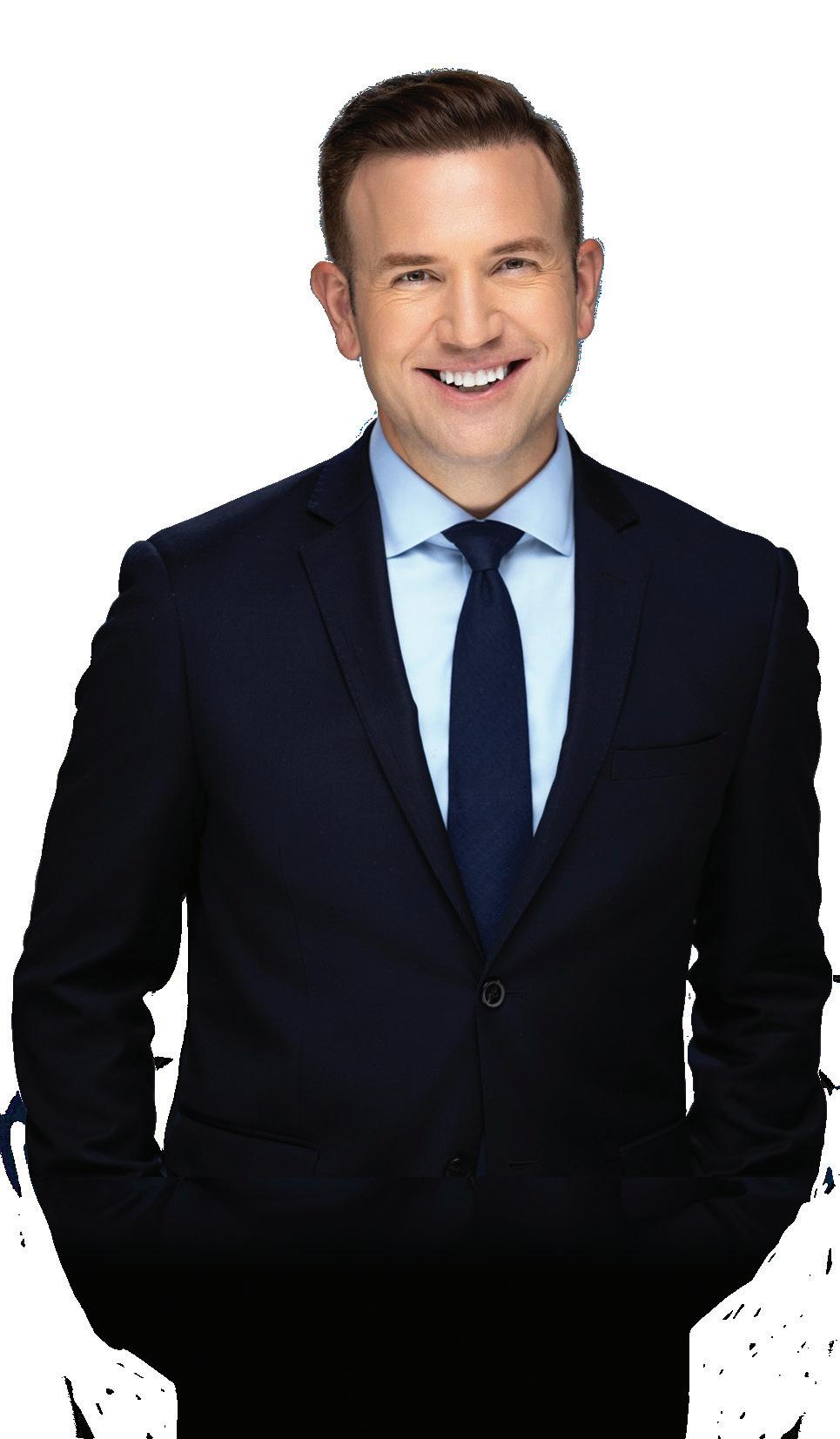
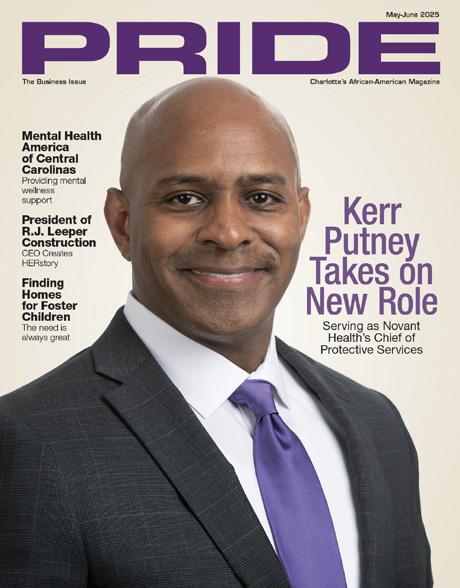
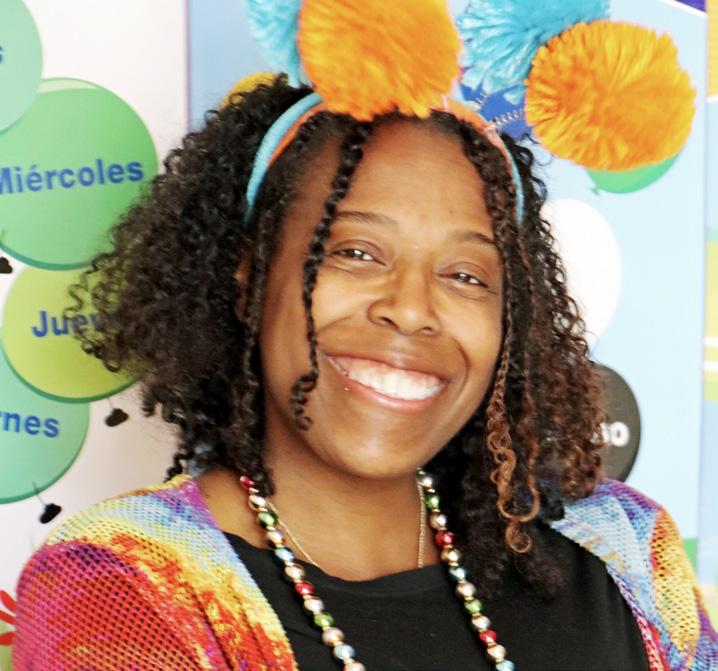
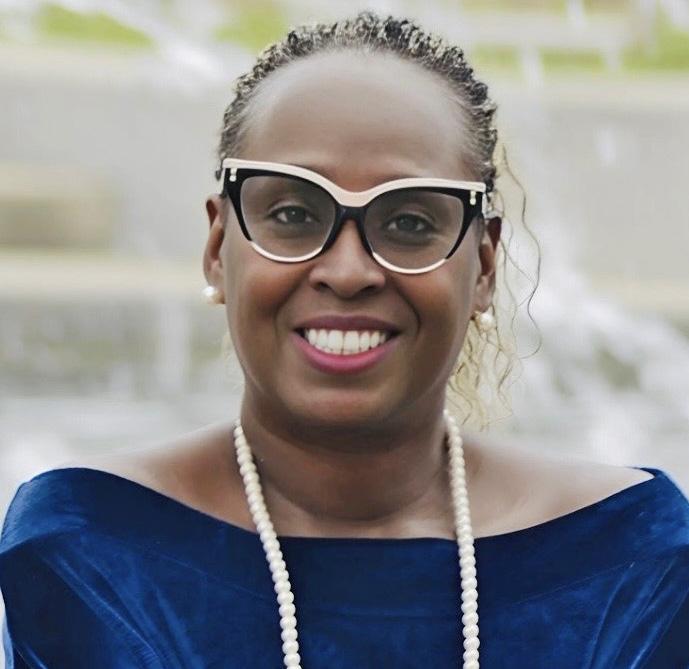
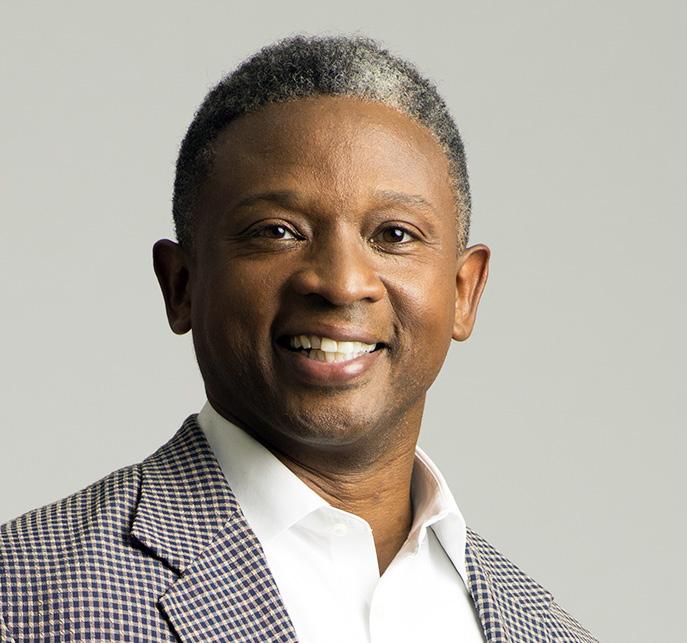
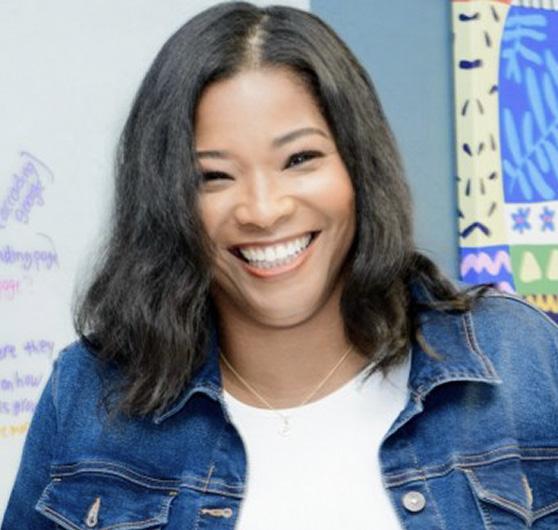

CEO/Publisher
Dee Dixon
Editor
Alicia Michele Benjamin
Copy Editor
Sonja Whitemon
Lead Writer
Angela Lindsay
Creative Director
Larry Preslar
Design & Production
SPARK Publications
www.SPARKpublications.com
Distribution
©Watch Dog Entertainment® LLC
Digital Content Distribution
Account Executive
Nikelle Fesperman
Public Relations
Nepherterra Estrada Best
Subscribe to Pride
$13.25. Please subscribe online at www.pridemagazineonline.com, mail to P.O. Box 30113, Charlotte, NC 28230 or call 704-375-9553
Letters to the Editor
Please send an e-mail to info@pridemagazine.net fax to 704-375-9550 or mail to Pride Magazine 8401 University Executive Park Drive, Ste. 122, Charlotte, NC 28262 www.pridemagazineonline.com

Copyright© 2025 Pride Magazine
All rights reserved. Copying or reproduction, in part or in whole, is strictly prohibited.
Pride Magazine reserves the right to deny any advertisement, listing or feature that does not meet Pride Magazine standards or that is outside the scope or mission of our magazine. Pride Magazine assumes no responsibility for information, products, services, or statements made by advertisers or editorial contributors.

Magazine prints with soy ink.




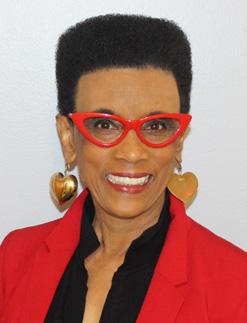
The world is moving too fast for me. Yes, I’m getting old and perhaps a bit nostalgic. Regardless, I believe we are being bamboozled — deceived by the mindless notions of convenience and instant gratification without even realizing it. I’ve decided the way forward is to go back. Here are a few examples.
I’ve decided the way forward is to go back.
1
I have a dishwasher of course. I’d venture to say most or many people do these days. We feel “less than” if we don’t have a dishwasher, right? However, based on my electric bill, I have decided I don’t have to use it. I’m now washing all of my dishes by hand and it is actually fulfilling and liberating. Growing up, washing the dishes was a hated chore, but having to wash those dishes established a sense of responsibility I didn’t appreciate at the time. Kids these days seem to lack a strong work ethic. They can learn by washing, drying and putting up the dishes after each meal. Parents hear this: There is a difference between rinsing dishes and putting them in the dishwasher and actually washing, drying and putting them up.
2 You guessed it. I’m no longer using my dryer, which is a big drain on electricity. Though I’m not at the point of giving up my washing machine, I can easily

do without the dryer. Back in the day, I always had an outside clothesline where the powerful energy of the sun dried my clothes. They smelled so fresh and clean WITHOUT needing to purchase extra cleaning, softening and smellgood chemicals. Currently, I hang my clothes in the playroom and iron pieces as needed. It gives me a sense of power
3
My grandparents always had a garden filled with green beans, okra, corn tomatoes, watermelons, cantaloupe, beets and so much more. This food was delicious, and my grandmother canned just about everything so there was always plenty for the winter months. Let me be clear — this “ain’t” for me. The very thought of raising my own food as they did is downright depressing. While I have purchased some dried foods for emergencies, perhaps I can join a co-op or purchase a hydroponic indoor garden for my vegetables. We’ll see.
4
Audiobooks. I got heavy into audio books during the pandemic. It’s great to be able to cook dinner, complete other chores or drive while listening to a book. I devoured these books incessantly. However, I recently cancelled my membership for three main reasons:
1. Too many choices. I spent a great deal of time trying to decide which book to read next
2. I felt obligated to always have a book to listen to and
3. The realization that this was a distraction, not allowing me to live in the moment. I will confess, though, it’s difficult to take the time to sit down and actually read a physical book, but I’m trying.
More to come, so stay tuned.












u n i q u e l y p o s i t i o n e d t o m e e t a l l y o u r a u t o m o t i v e n e e d s
W h a t t r u l y d i s t i n g u i s h e s M i l l s A u t o m o t i v e G r o u p i s o u r s t e a d f a s t c o m m i t m e n t t o c u s t o m e r s a t i s f a c t i o n O u r k n o w l e d g e a b l e s a l e s a n d s e r v i c e p r o f e s s i o n a l s , s u p p o r t e d b y d e c a d e s o f i n d u s t r y e x p e r t i s e , a r e d e d i c a t e d t o p r o v i d i n g a b e s t - i n - c l a s s e x p e r i e n c e a t e v e r y s t a g e o f y o u r j o u r n e y






By Alicia Michele Benjamin
Shamilla Wiley, founder and president of Green Raven Organics, has joined the North Carolina Agricultural and Technical State University Strategic Planning Council in Rowan County, N.C.
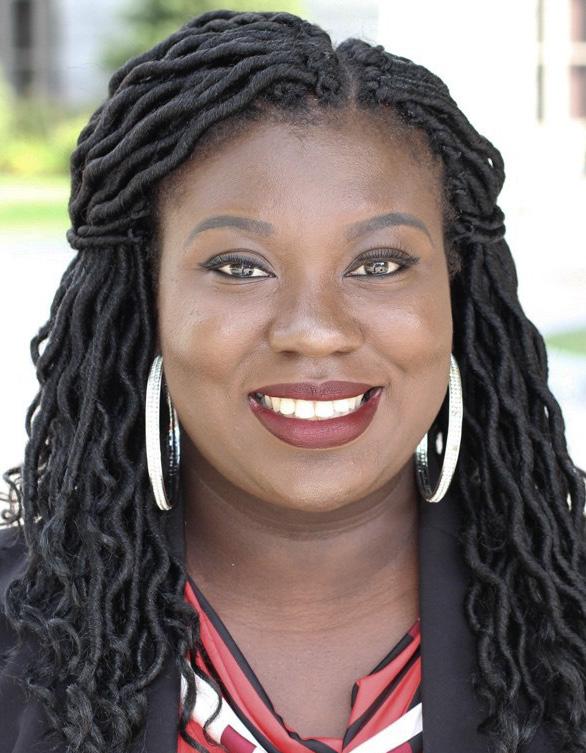
“This role is more than just a title — it’s a continuation of my lifelong commitment to making a difference and creating a lasting impact,” Wiley said.
“My passion for food security, sustainability, and community health has led me to take my corporate experience as a project manager and pivot toward legacy-building work that serves our communities,” she said.
“This is personal for me — because real change happens when we roll up our sleeves and invest in the future,” she added. “I look forward to collaborating with fellow leaders to drive meaningful initiatives that empower, uplift, and sustain our communities for generations to come.”
Wiley has a bachelor’s degree in business management and economics from SUNY Empire State College.
Emmy Award-winning journalist Lisa Washington has joined the news team at WCNC Charlotte as an anchor.
Before moving to Charlotte, Washington spent 12 years in Pennsylvania, working as an evening news anchor at WNEP-TV in Scranton and KDKA-TV in Pittsburgh. Lisa has also worked at television stations in San Francisco, Memphis and Huntsville, Alabama.
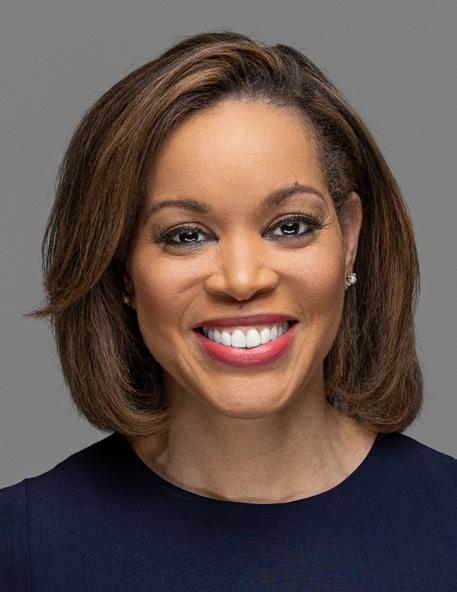
Washington began her career as a news reporter trainee at WTTG-TV in Washington, D.C. A veteran of broadcast news, Lisa has interviewed countless celebrities, politicians and Olympic athletes. She has served as moderator and panelist for Congressional debates and hosted national town halls and community events.
A native of Bennettsville, South Carolina, Washington is a graduate of Clark Atlanta University, where she earned a Bachelor of Arts degree in Mass Media Arts/Journalism. She earned a master’s degree in corporate communications and public relations from Georgetown University.
A mother of two, Lisa enjoys volunteering when she’s not working or supporting her children at school or extracurricular events. She is a member of The Links, Incorporated, Jack and Jill of America, Inc., and Delta Sigma Theta Sorority, Inc.
The New York Yankees drafted Audrey Kell High School graduate Dillon Lewis in March. Lewis attended Queens University of Charlotte, where he played for the Royals baseball team from 2022 to 2024. As a Royals player, Dillon broke several of the program’s single-season records for home runs, hits and runs batted in (RBIs).
His performance at Queens University earned him First Team All-Conference honors. Following the draft, Lewis signed his contract with the Yankees on July 22, 2024.
When Dillon Lewis was a child, he attended a game at Yankee Stadium in 2009.
“I don’t remember too much,” Lewis told WCNC in the TV station’s February article on the new Yankee. “I think A-Rod might’ve gotten ahold of one.”
Lewis’ dad, T.J. Lewis, was an Orioles fan, he told WCNC. “We walked in the stadium and I said, ‘I lost him.’ It was the day I was like, ‘He’s going to be a Yankee fan,’” he said.
As a Royals player, Dillon broke several of the program’s single-season records for home runs, hits and runs batted in (RBIs).
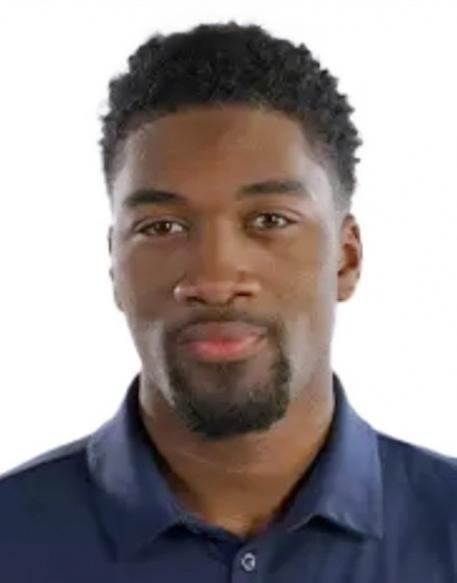
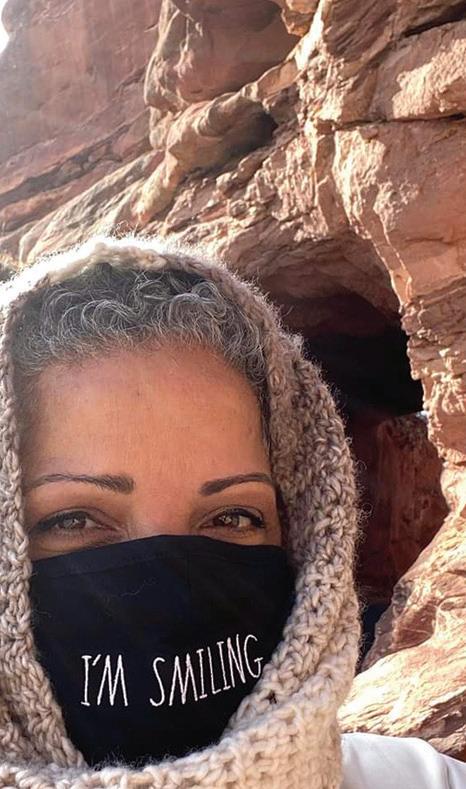



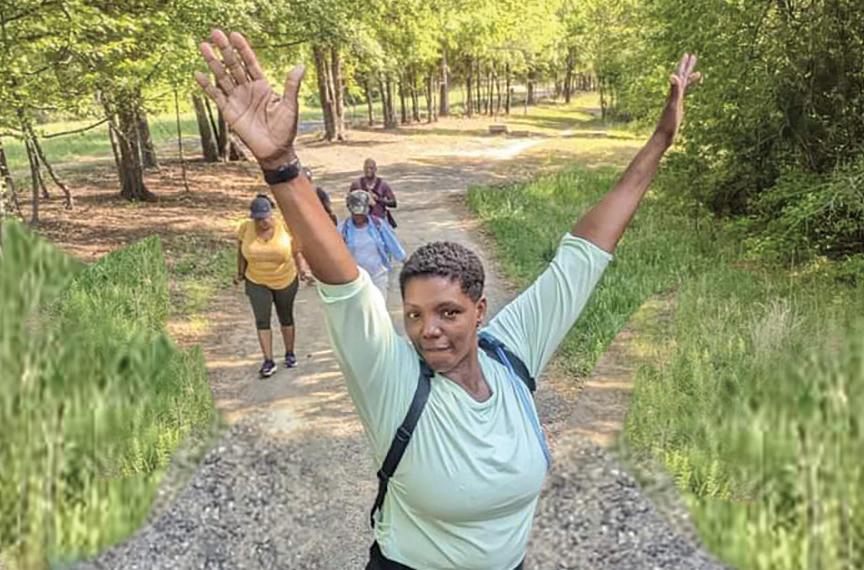



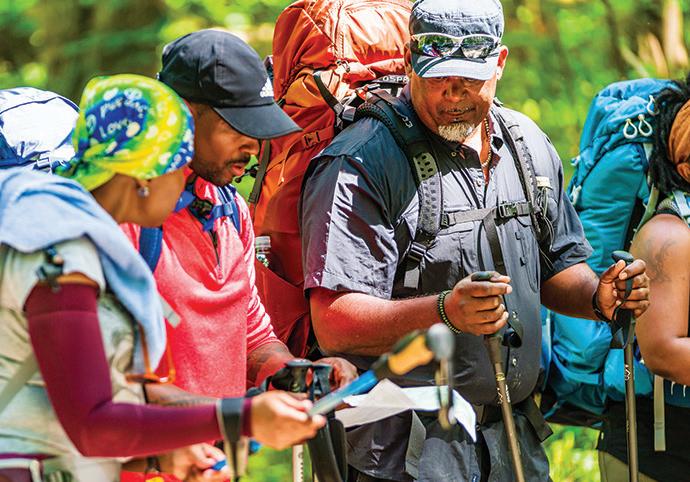
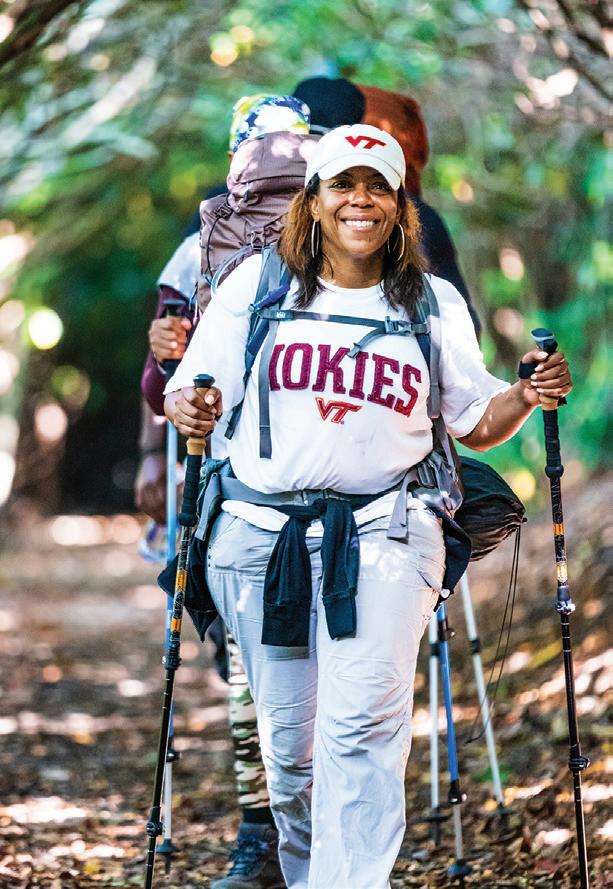
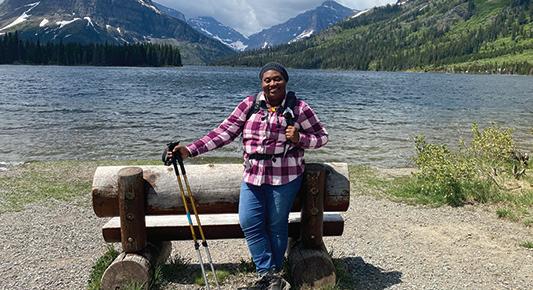
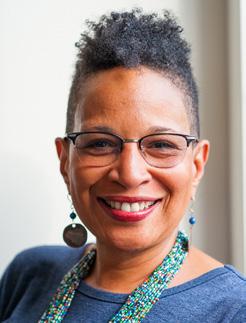
By Angela M. Haigler

“Who Better Than You? The Art of Healthy Arrogance & Dreaming Big”
by Will Packer
Will Packer’s Who Better Than You? is part memoir, part masterclass, and 100% motivational fire. With stories straight from Hollywood’s front lines and billion-dollar box office wins, Packer drops gems on confidence, hustle, and believing in your own greatness — before anyone else does. He urges us to show up bold, own our ambition and do the hard work long before the spotlight hits. Think of it as a success blueprint wrapped in real talk and humor. This one’s for anyone ready to star in their own blockbuster life.


“Joy Goddess: A’Lelia
by A’Leila Bundles
Joy Goddess is a rich, intimate biography of A’Lelia Walker— heiress, Harlem Renaissance icon, and daughter of Madam C.J. Walker — told by her great-granddaughter. Dubbed the “joy goddess of Harlem” by Langston Hughes, A’Lelia’s salons and soirées shaped Black artistic life in the 1920s. Through letters, legacy, and lavish living, she emerges as both a trendsetter and cultural connector. This book reveals a woman navigating fame, family, and freedom in her own right. It’s a vibrant tribute to a dazzling, often overlooked force of the era.

“Minding the Wealth Gap”
by Cliff Goins, IV
Both a mirror and a map, Minding the Wealth Gap reveals the deep-rooted systems behind racial economic inequality. Cliff Goins, IV blends hard-hitting data with powerful stories of nine Black leaders rewriting the rules. From boardrooms to land ownership, these changemakers are building equity with purpose. This book is a call to action — for those with access and influence to invest in justice, not charity. If you’re wondering how to help close the racial wealth gap, start here.
“Pet Sitter #5”
By Kelly Starling Lyons; Illustrated by Wayne Spencer
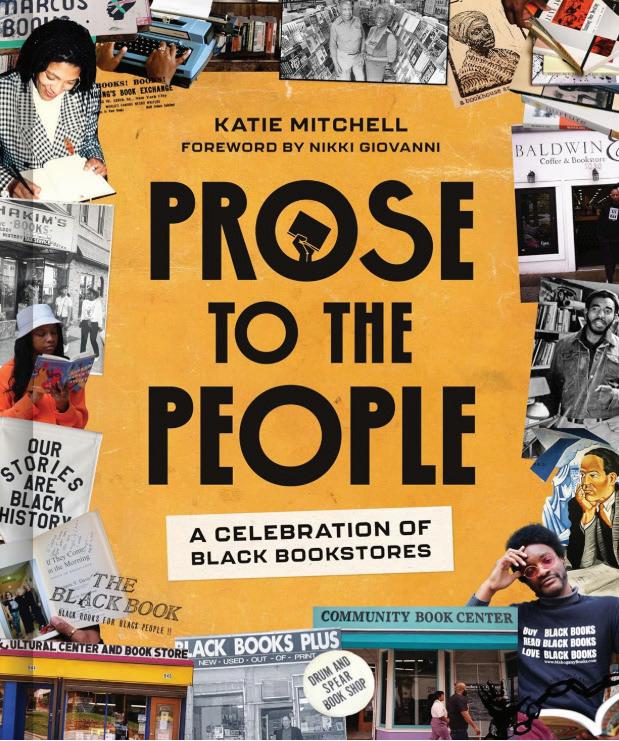
“Prose to the People: A Celebration of Black Bookstores” by Katie Mitchell
Black bookstores are more than retail spaces — they’re cultural sanctuaries, community hubs, and sites of resistance. Prose to the People beautifully captures their power through vivid photography, essays, poems, and interviews that honor their past and present. Katie Mitchell curates this love letter with the care of someone who lives the work. Each page radiates with the stories, voices, and spirit that have kept Black literature alive and thriving. It’s a must for anyone who values books, Blackness, and belonging.
Miles wants a dog more than anything, but his parents aren’t convinced he’s ready. So when frogs show up as class pets, he sees his chance to prove he’s responsible — but things don’t go quite as planned. Every attempt to show he can care for animals ends in chaos and disappointment. Still, Miles’s heart is in the right place, and his journey is full of charm, mishaps, and growth. This sweet, relatable story captures every kid’s dream — and the big lessons that come with it.
ByFaith
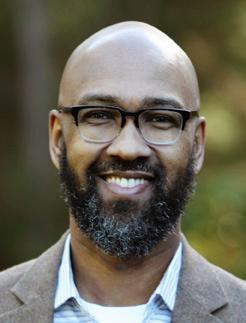
By Rev. Dr. Dwayne Bond
Oftentimes, we separate our faith from our work, as if they aren’t connected. But the truth is, God has designed work as a gift, an opportunity to reflect His glory in the world. From the beginning, He placed Adam in the garden and commanded him to cultivate and keep it (Gen. 2:15). Work has always been in the plans for mankind. Work was never a curse; it was part of God’s perfect and masterful plan. And for the believer, work takes on even greater meaning when we embrace it with a Christ-centered perspective.
work isn’t ultimately about our paycheck, boss, or personal ambitions. It’s about the Lord. When we show up with diligence, integrity, and faithfulness, we worship God in how we work.
Showing up with this mindset completely shifts our perspective. Instead of begrudgingly going to the office or grinding through daily tasks with frustration and discontentment, we see work as a divine assignment. Even in the mundane, a God-centered focus transforms our perspective. When done in the power of the Holy Spirit, delivering mail,
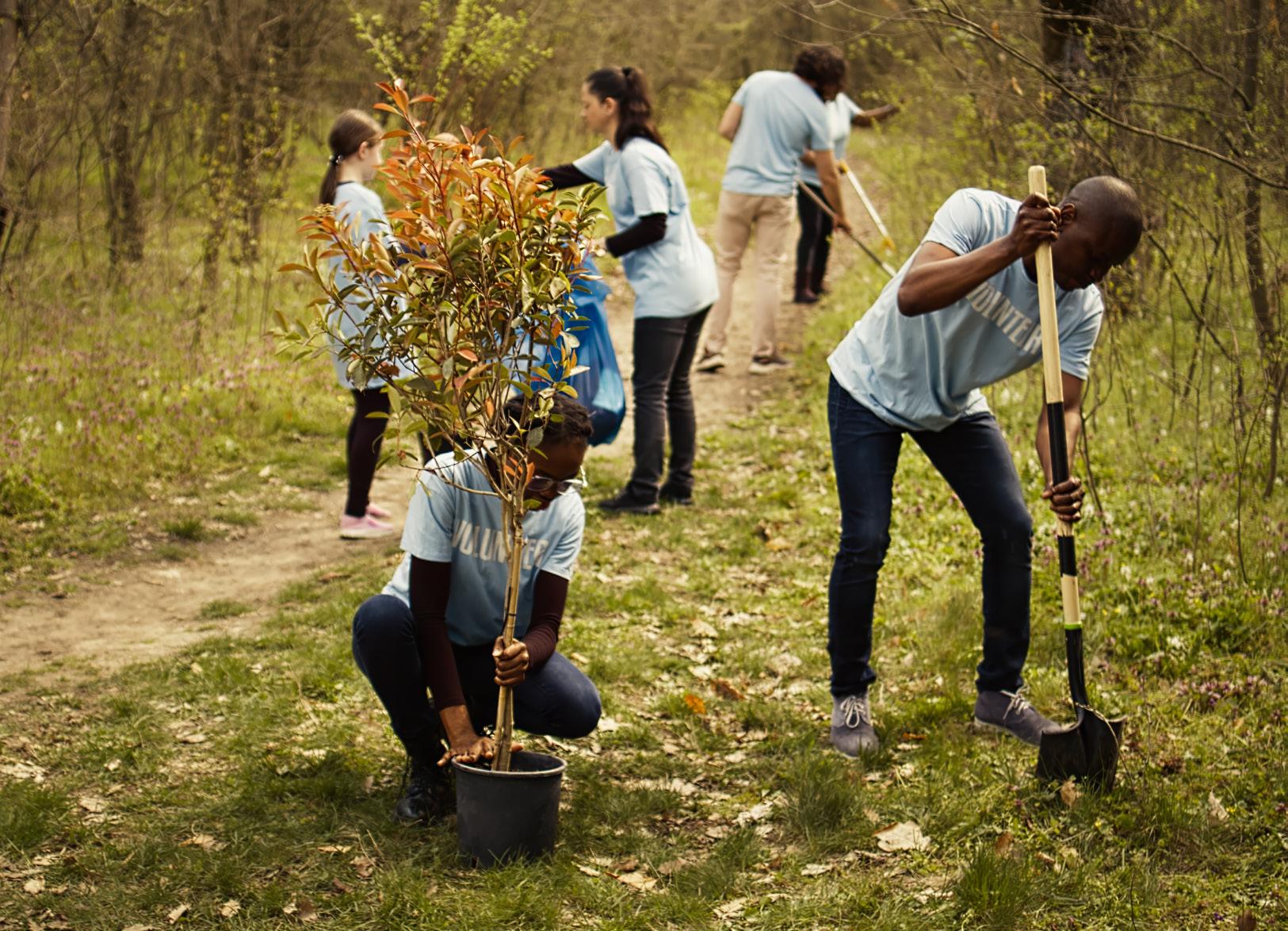
One of the greatest joys of the Christian life is knowing that every ounce of sweat and effort, every task — whether big or small — is an act of worship when done for the glory of God. Colossians 3:23 reminds us, “Whatever you do, work heartily, as for the Lord and not for men.” That means our
managing spreadsheets, serving customers, or leading a team are not just duties. They are opportunities to glorify our King.
God Himself is a worker. He created the heavens and the earth, shaping
everything with wisdom and purpose (Gen. 1:1). Jesus said, “My Father is working until now, and I am working” (John 5:17). This means that when we engage in meaningful work, we are imaging our Creator. The excellence, creativity, and diligence we bring to our labor should reflect His nature.
When we work hard with integrity, we show the world something about who God is. When we serve with love and humility, we preach the gospel through our actions. Our coworkers, clients, and even our families should see a difference in how we labor — not because we seek to impress them but because we seek to honor Christ.
As joyful as work can be, it is still affected by the fall. There are days when it feels tedious, mundane, and purposeless. There are moments of exhaustion, setbacks, and frustrations. However, for Christians, even those moments have a purpose. Our toil reminds us that this world is not our final home. One day, we will rest in the presence of our Savior, where there will be no more toil or strife.
“My Father is working until now, and I am working.”
—John 5:17
Until that day, we work with joy — not just for today, but for eternity. We move forward, knowing that nothing done for Christ is in vain (1 Cor. 15:58). So, keep working, striving and worshiping — because, in Christ, even our labor is a testimony of His grace. P
The Rev. Dwayne Bond is the lead pastor of Wellspring Church.
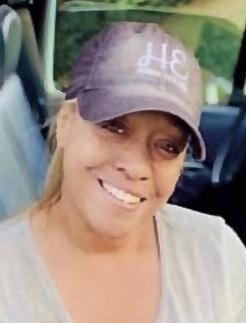
By Dawn Hilton-Williams
Spring isn’t just a season, it’s a soulful summons that calls us to reflect, resist and return to what has always sustained us. With longer days and brighter light come opportunities to re-examine our habits, reject the processed narratives we’ve been sold and choose the grounded power of ancestral wellness.
Our people have always known how to thrive in rhythm with the Earth. We moved together, gathered outside and nourished ourselves with plant-based foods passed down through ancestral memory and lived resistance.
But today, Big Agriculture and ultra processed industries have eroded those truths, flooding our communities with food deserts and disease while masking profit as convenience.
Lifestyle-driven chronic illness now thrives where wisdom once lived but the good news is that reclaiming optimal wellness is an easily attainable lifeline that can spark a renaissance of collective healing.
So, it’s time to grab your broom and sweep away the remnants of colonized consumption and spring clean in a way that our elders would recognize with these easy reset tips!

Scan the QR code below to view the recipe for Easy Tomato and Okra Stew by chef Dawn Hilton-Williams.

The late, great Roy Ayers reminded us through his iconic track “Everybody Loves the Sunshine,” which was a mantra and medicine wrapped in melody but somewhere along the way, we missed its power and urgency. Our ancestors revered the sun, not only as warmth, but as a healer.
Vitamin D deficiency disproportionately impacts Black and Brown communities, with over 80% of African Americans affected due to higher melanin levels reducing vitamin D synthesis.
The good news is, according to the National Institutes of Health (NIH), as little as 30 minutes of direct sunlight several times a week can significantly boost vitamin D levels, supporting stronger bones, balanced circadian rhythms and immune defense.
As we cleanse our homes, we must also decolonize our plates by moving away from ultra processed and animal derived foods and return to healing food traditions.
Here are a few fiber-rich, freedomfoods that are abundant, affordable and easily accessible:
• Leafy greens: (collards, spinach, kale) for fiber, iron, and gut support
• Cruciferous veggies: (broccoli, cauliflower, cabbage) with anticancer properties
• Sweet potatoes: naturally sweet and energizing without added sugar or butter
• Okra: rich in magnesium and fiber, supporting heart health and blood sugar balance
• Black eyed peas: protein rich and symbolic of prosperity and resilience
More than exercise, movement has historically served as a welcome
space for resistance, release, culture and joy. From the ring shouts of our enslaved ancestors to the street dances of protest and celebration, we’ve used our bodies to speak what couldn’t be silenced.
Let this season be your call to embodied resistance. Whether it’s dancing in your kitchen, walking with intention, stretching under the sun, or joining a community class, just 30 minutes of mindful movement a day will help regulate blood sugar, reduce blood pressure and lift your spirit.
As temperatures rise, hydrate with intention. Beyond the 6-8 glasses of daily recommended water, embrace nutrient-rich, water-rich plant foods like cucumbers, celery, bell peppers, tomatoes, watermelon, peaches, papayas, mangoes and citrus fruits.
Trade sugar-laced drinks for herbal teas, infused waters, or hibiscus tea (sorrel), long known for its blood pressure and antioxidant benefits. These aren’t just drinks, they’re liquid inheritance.
Spring cleaning isn’t just about tidying up, it’s a return to truth and a rejection of systems that profit off our illness. By nourishing ourselves with the plant-based foods of our ancestors, embracing movement as medicine and restoring harmony with nature, we reclaim wellness on our own terms.
Set yourself free this season, reset with purpose, reclaim with pride and stay vegucated P
Dawn Hilton-Williams, is a whole food, plant-based (WFPB) certified nutrition professional, clinically-endorsed, award-winning vegan chef, cookbook author, speaker, wellness equity activist and founder.

By Ayo Johnson
As Executive Director of Mental Health America of the Central Carolinas (MHA), I am deeply honored to share what mental health awareness means to me—and why it must remain at the center of our collective conversations.
Mental health is not a privilege—it is a fundamental human right. It shapes how we navigate the world, connect with others, and care for ourselves and our communities. When we talk about awareness, we’re talking about visibility, access, and the bravery required to confront difficult truths. For far too long, mental health has been shrouded in stigma, particularly within communities of color. It’s time we rewrite that narrative.
At MHA, we believe that every individual deserves to be seen, heard, and supported—without shame, without fear, and without judgment. Mental health awareness means recognizing the invisible battles many face each day and ensuring they have access to the tools, education, and support needed not just to survive, but to thrive. It’s about early intervention, removing barriers, and fostering environments where honest, healing conversations can take place.
This mission is deeply personal to me. As a Black woman and nonprofit leader, I have witnessed the impact of systemic disparities, intergenerational trauma, and the persistent lack of accessible mental health care in our communities. I’ve seen loved ones suffer in silence, afraid to speak out or seek help due to fear of being misunderstood or stigmatized. That silence is heavy—and dangerous. Awareness is the first step toward breaking it.
But awareness is more than acknowledgement— it’s action. It’s advocacy. It’s demanding policy change that ensures culturally competent, affordable mental health services. It’s increasing the presence of people of color in mental health professions. And it’s meeting our community where they are—whether that’s in schools, faith spaces, barbershops, or at the dinner table—with empathy and support.
This May, as we recognize Mental Health Awareness Month, I encourage each of us to move beyond symbolic gestures. Let’s check in on one another. Let’s challenge stigma when we hear it. Let’s model openness, vulnerability, and compassion— especially for our youth, who are growing up in a rapidly changing, often overwhelming world.
“As a Black woman and nonprofit leader, I have witnessed the impact of systemic disparities, intergenerational trauma, and the persistent lack of accessible mental health care in our communities. I’ve seen loved ones suffer in silence, afraid to speak out or seek help due to fear of being misunderstood or stigmatized. That silence is heavy—and dangerous.”
—Ayo Johnson
At MHA, we are committed to this work every day. Through education, peer support, and affordable access, we strive to empower individuals and families. But we know we cannot do it alone. Creating a culture of mental wellness requires all of us—advocates, neighbors, educators, leaders, and allies—working together with intention and care.
To the readers of Pride Magazine: thank you for engaging in this essential conversation. Your voice matters. Your story matters. Together, we can create a future where mental health is not just discussed—but truly prioritized, protected, and embraced.
We see you, we’re with you, you matter.

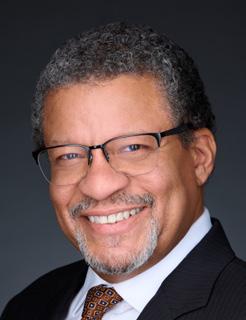
By Joseph Machicote, MHA Board President
I’m sure my mental health journey began many years ago, but for the majority of my life I ignored it. Mental health was not about me, it was about others; it was those people that had to go to doctors or live in special homes and institutions. It was for those who had lost their minds and needed serious help. Growing up as a Black Hispanic male, mental illness would be just another barrier to break through, so better to not talk about it. As a male, I was taught I had to be strong, tough it out, buck up and not be a “sissy”. As a Black Hispanic man, mental illness
“As men it’s critical for us to shake the stigma around mental health before it becomes too late in our lives. We have to own that while we are men, we are also human and susceptible to even the things we are told we are not allowed to be susceptible to.”
—Joseph Machicote
was not seen positively in the community. I now sit in a place where I’ve had to rediscover my mental health definitions and experience an awakening. All those instances in my life where my ignorance unwillingly shaped my definition of mental health into stigma, fear, embarrassment and a bunch of other unhelpful emotions and behaviors has cost
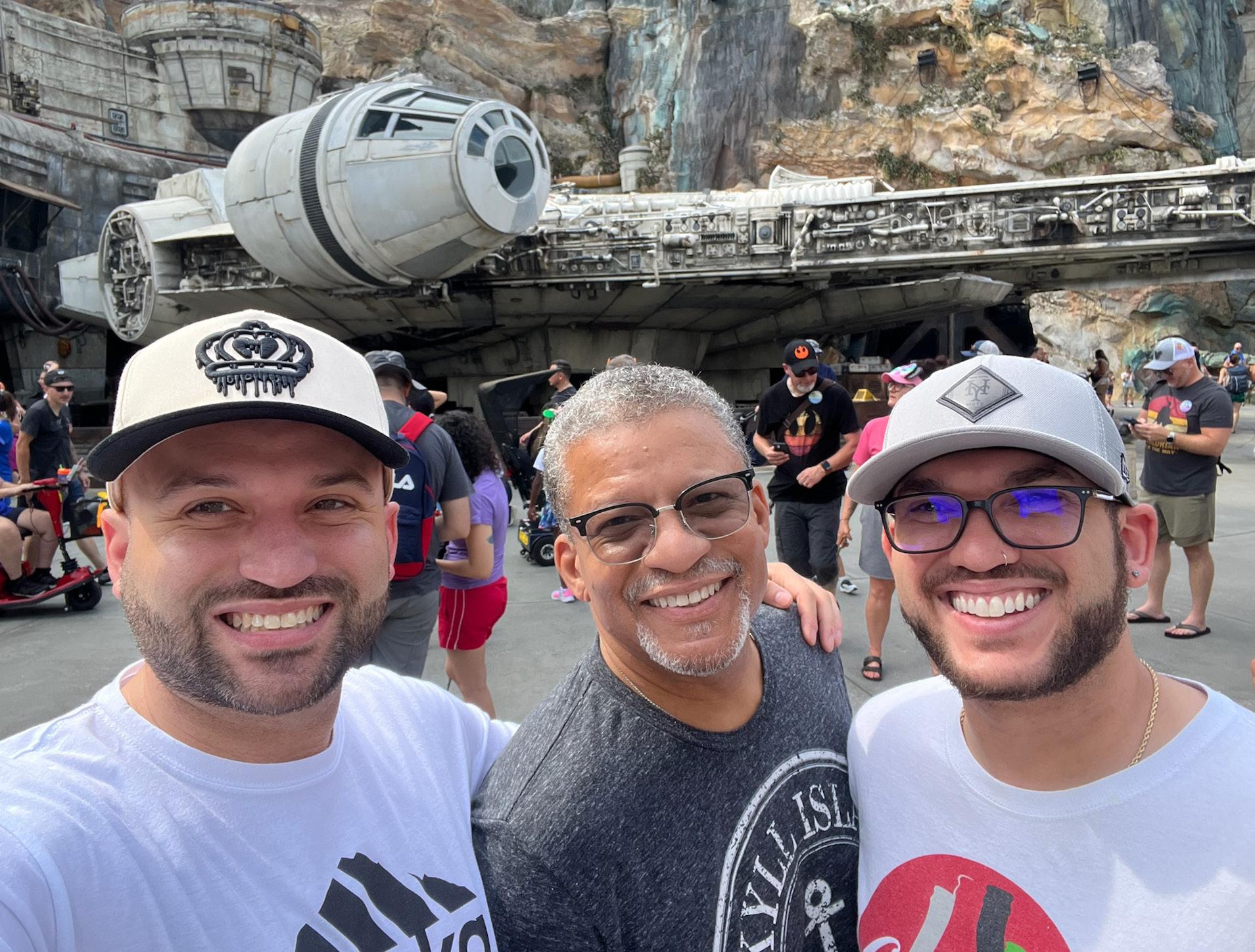
me so much. I am so glad I have been able to learn how to put my stigma and prejudice aside and turn the definition of mental health into one of mental fitness and wellbeing…in other words, mental health is an action verb that needs to be acted upon in order to achieve it. My wife’s death caused issues for me and my two boys that caused downstream problems that I was too proud to say out loud. For me, it had to make me deal with my fear of rejection and loss, for my sons it made them have to deal with the loss of a parent at young ages that led to one son’s addiction disease and caused anxiety in the other.
As men it’s critical for us to shake the stigma around mental health before it becomes too late
in our lives. We have to own that while we are men, we are also human and susceptible to even the things we are told we are not allowed to be susceptible to. My journey, joining a board of directors based on the request of a friend, has changed and improved my life. Mental Health America of Central Carolinas was that agency that helped me to see I wasn’t alone, and I’ll never forget that. Today, I’m honored to be the Board President of the organization.
I have now moved beyond the realm of just mental wellness and into mental fitness; intentionally taking care of my mental health and ensuring that my sons now do the same. Hopefully, they will both be better men, fathers, brothers, uncles, husbands because of it. P
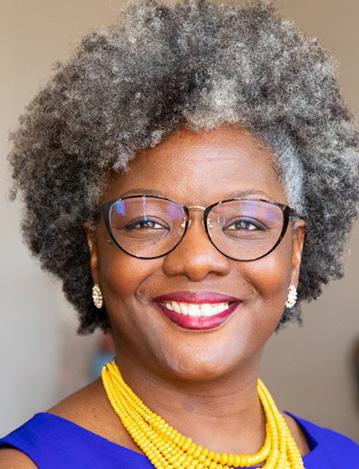
By Ericka EllisStewart
May is Mental Health Awareness Month, an appropriate time to share practical selfcare strategies that can be easily integrated into your routine.
For many, especially Black Americans, the isolation that comes from systemic racism, socioeconomic issues, and historical trauma can negatively affect mental health, leading to feelings of loneliness and depression. Feeling disconnected or lacking support systems can worsen mental health struggles. Staying connected increases happiness and improves overall health. Having individuals in our lives who make us feel valued and comfortable in our skin is vital.
Our worry-filled thoughts can drag down our mood. Staying positive requires us to foster a sense of optimism, practice gratitude daily, and avoid negative thinking. Keeping a journal of things you’re thankful for can help. Start each day by writing down three things you are grateful for, focusing on positive aspects of your life, and sharing one of these moments with a friend to enhance your connection and spread positivity.
Moving your body for 30 minutes daily is a fantastic way to improve sleep, increase blood flow to the brain, boost your immune system, and maintain positive mental health. Exercise can mean simply moving your body in a manner that works for you – dancing, walking, yoga. Movement is a surefire way to decrease stress, anger, and tension. It is shown to almost immediately improve signs and symptoms of anxiety and depression. Moving your body naturally stimulates the

feel-good hormones of dopamine, endorphins, oxytocin, and serotonin.
Are you getting enough quality sleep? If you are not sure, ask yourself the following questions from the Sleep Deficit Checklist to find out:
• Am I often tired?
• Am I using caffeine to get through the day?
• Do I sleep well?
• Do I wake up feeling refreshed?
• Do I regularly feel drowsy while driving or watching TV? If the answer to any of these questions is no, please talk to your doctor and focus on improving your sleep hygiene. Sleep hygiene refers to habits and practices that can help improve your sleep quality. Each of us can work toward creating good conditions for sleep and establishing routines that make it easier to fall asleep and stay asleep.
You do not have to be in crisis to seek help. Think of it as a maintenance activity, such as regularly changing your oil. We all need a check-up from the neck up from time to time. Mental health providers can help you pinpoint goals or develop an effective plan for solving problems and assist you in feeling stronger in the face of challenging circumstances and complex life changes. Together, you can explore how your thinking affects how you feel (mentally and physically). They can work with you to heal from your past and build selfconfidence and positive self-esteem. Don’t let stigma keep you from adding more tools to your mental health toolkit! Need help finding a provider? Visit MHA’s Online Provider Directory: mhaofcc.org/provider-search. P
By Angela Lindsay

When Kerr Putney was sworn in as Chief of Police of the Charlotte Mecklenburg Police Department in 2015, becoming only the second Black person in this city ever to hold the office, he had long been dedicated to his oath “To Protect and Serve.”
He had worked with the department for almost 30 years when he decided to retire on his own terms in 2020, choosing to transition into professional public safety consulting mode.
Now, he has taken on a new role.
In July 2024, he began working as Chief of Protective Services at Novant Health — and it came at a time when he wasn’t even searching.
“I was not in the market for a job at the time.
Kim Henderson [executive vice president and chief administrative officer at Novant Health] was looking for someone to fill a position such as this, and she and the CEO, Carl Armato, apparently wanted to have the conversation,” Putney said.
“So, I met with Kim over lunch; she described the job to me, and I fell in love with the opportunity. She convinced me that this was an opportunity that I shouldn’t pass up, and she was absolutely right. I’ve loved every minute of being here at Novant Health.”
This job comes after many years of previous consulting contracts with companies such as Security Global Collaborators LLC and CPI Security and Developmental Associates. At Novant, Putney oversees all the public safety for 40,000 team members, including executive protection to keep the executive team safe. Most recently, the aviation division came under his leadership as well.
“Another part of what I do is briefing the executive team and the Novant Health Board on issues relevant to safety matters that are impacting or could impact our organization,” he said.
Putney earned a bachelor’s degree in criminal justice from the University of North Carolina at Charlotte, followed by a master’s degree in criminal justice at East Carolina University. While his academic background prepared him for a career in law enforcement, he said his experience with CMPD helped prepare him for his current position.
He experienced his share of obstacles with CMPD, he said, however, under his leadership, there was positive change and healing, including a reduction in crime and increased officer accountability in 2018 and an approximately 80 percent crime clearance rate overall in 2019.
“Leadership is leadership” he said, so he was not concerned about that piece of it. The transition, in fact, was not as difficult as he expected.
“You have to learn processes and procedures and protocols everywhere you go. Healthcare can be complicated with risks and legal restrictions. So, that was a learning curve I knew I would encounter. We just have great people, great team members, who’ve helped me every step of the way,” Putney said.
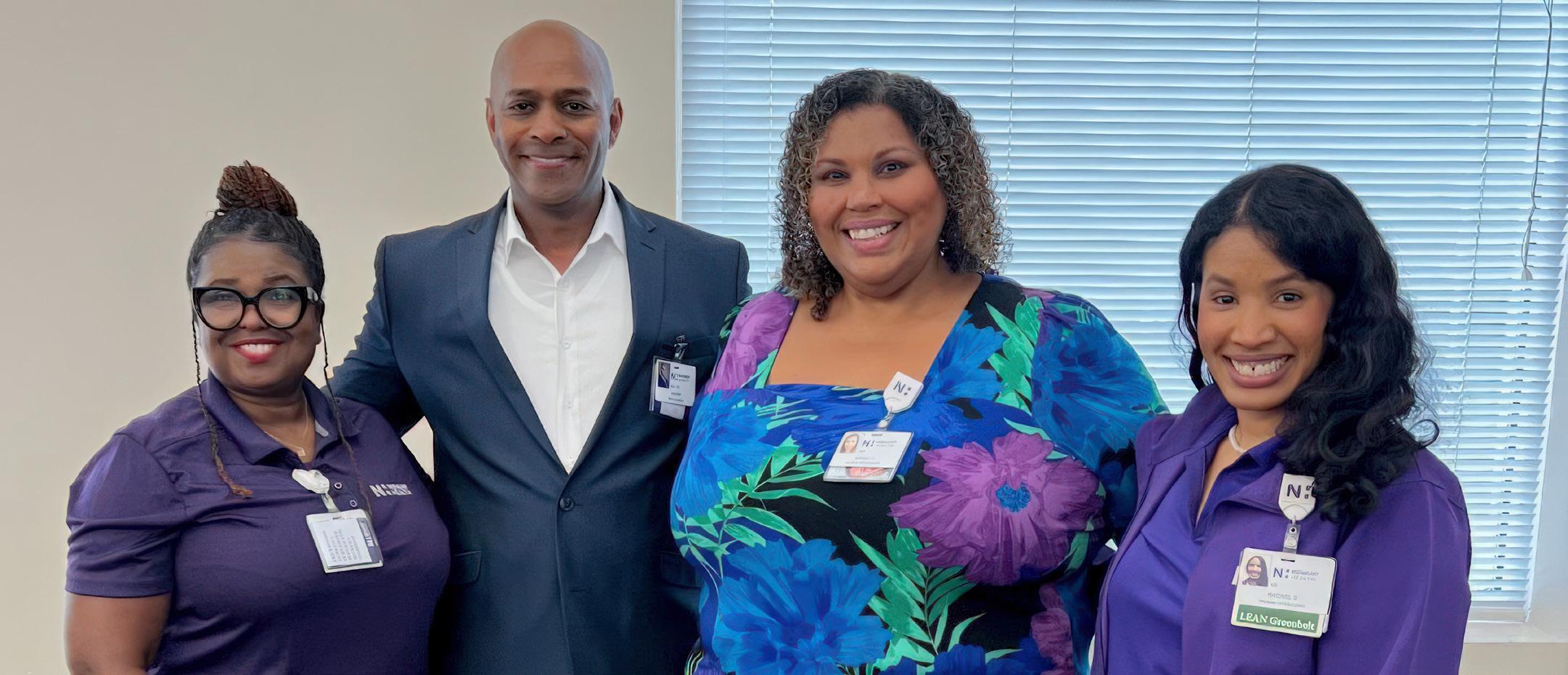
That level of support was the “most enticing piece” when he initially considered the position at Novant and has been instrumental in guiding his way forward, he said. In addition, the lessons he learned at CMPD around developing people, developing his team and leading with credibility were all transferable skills that, he said helped make his move from the force to civilian roles a smooth one.
“What I see here that I saw previously at the [police department] was just great people dedicated to doing great things — rallying around a great cause. That is exactly what I see here at Novant Health,” he said. “As long as you care, listen and lead, people tend to follow.”
Despite Putney’s fondness for CMPD, when asked if he misses working at the department, he quips, “The short answer is ‘No, I do not.’ I tell everybody ‘I left it on
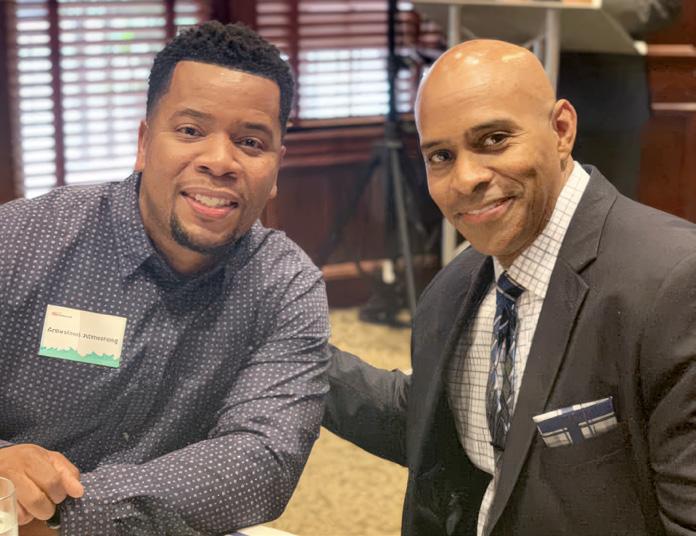
the field.’ I did all I could there. I passed the torch. They’re in good hands. But it was time for me. I think everybody has a shelf life, and as long as you’ve given all you have, I don’t think there are any regrets,” Putney
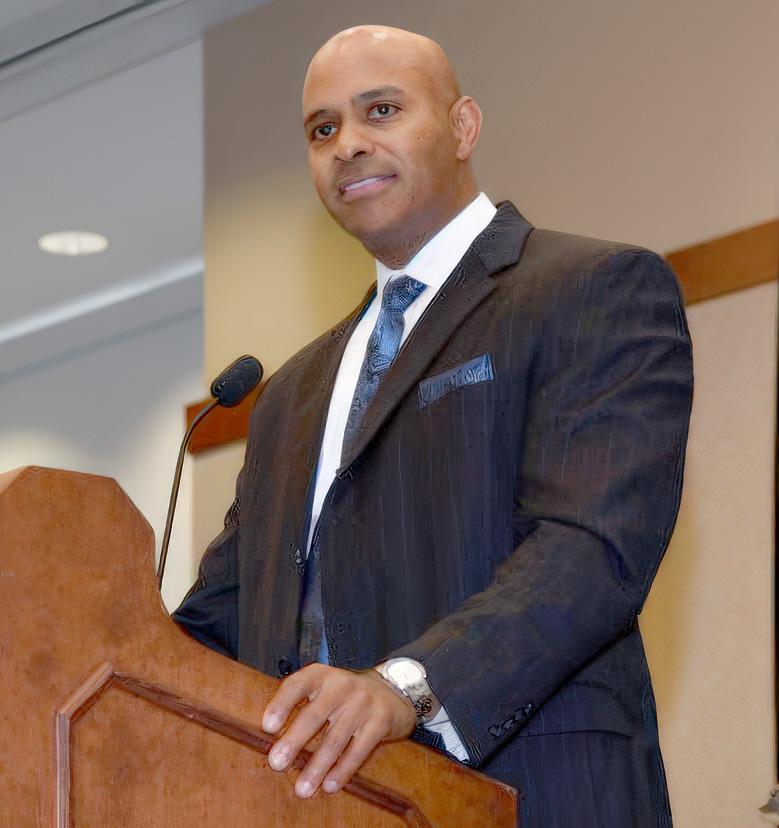
said. “I’ve never regretted being a cop, serving for 28 years and 2 months only in Charlotte, and I definitely haven’t regretted, at all, the retirement. I highly recommend it actually!”
Putney is on to new and different challenges now — the biggest of which is managing the healthcare system’s rapid growth and establishing licensing with the mostly contract hospitals Novant Health has in South Carolina to bring them on board in the protective services realm over the next two years.
“What we are looking at is keeping pace with the fast growth that we’re having at Novant Health,” he said. “We are already expanding into South Carolina with other areas planned. Just being able to have our hybrid model of sworn and public safety officers (brought) on board in different states and [managing] the different licensing
challenges so that can really become a part of our culture and [we can] do business consistently across the entire Novant Health organization.”
While it’s the biggest challenge to date, he says it’s also the most rewarding because going into different states filled with different people allows him to bring the Novant Health culture to different communities. To that end, Putney said his major goal is to initiate and implement personnel development at Novant Health by having his leadership team “really digging into formalizing a career path from the day we recruit and hire you, until you start to get promoted or go into specialized units.”
He added, “We’re really developing that piece of the puzzle to have a professional organization that has a lot of opportunities for those who want to come into healthcare in the public safety field.”
When he isn’t busy inspiring people to do great work, Putney said he spends time with family and enjoys travelling. His family takes an annual trip to The Bahamas. He has even tried his hand at golf but said he wouldn’t consider it a hobby because “it’s not very relaxing.”
“I’m competitive, and I’m horrible at it!”
Still, it is the excitement of meeting people who, he said, remind him of himself in the early 90s — young, impressionable, wanting to make a difference — and getting them motivated to want to become leaders and investigators that he really enjoys and keeps him getting up early every morning.
“What we do here on our property and how we impact our people is where Novant Health exceeds all expectations. Remarkable service is an understatement,” said Putney. “We do great things here, and I love it.” P
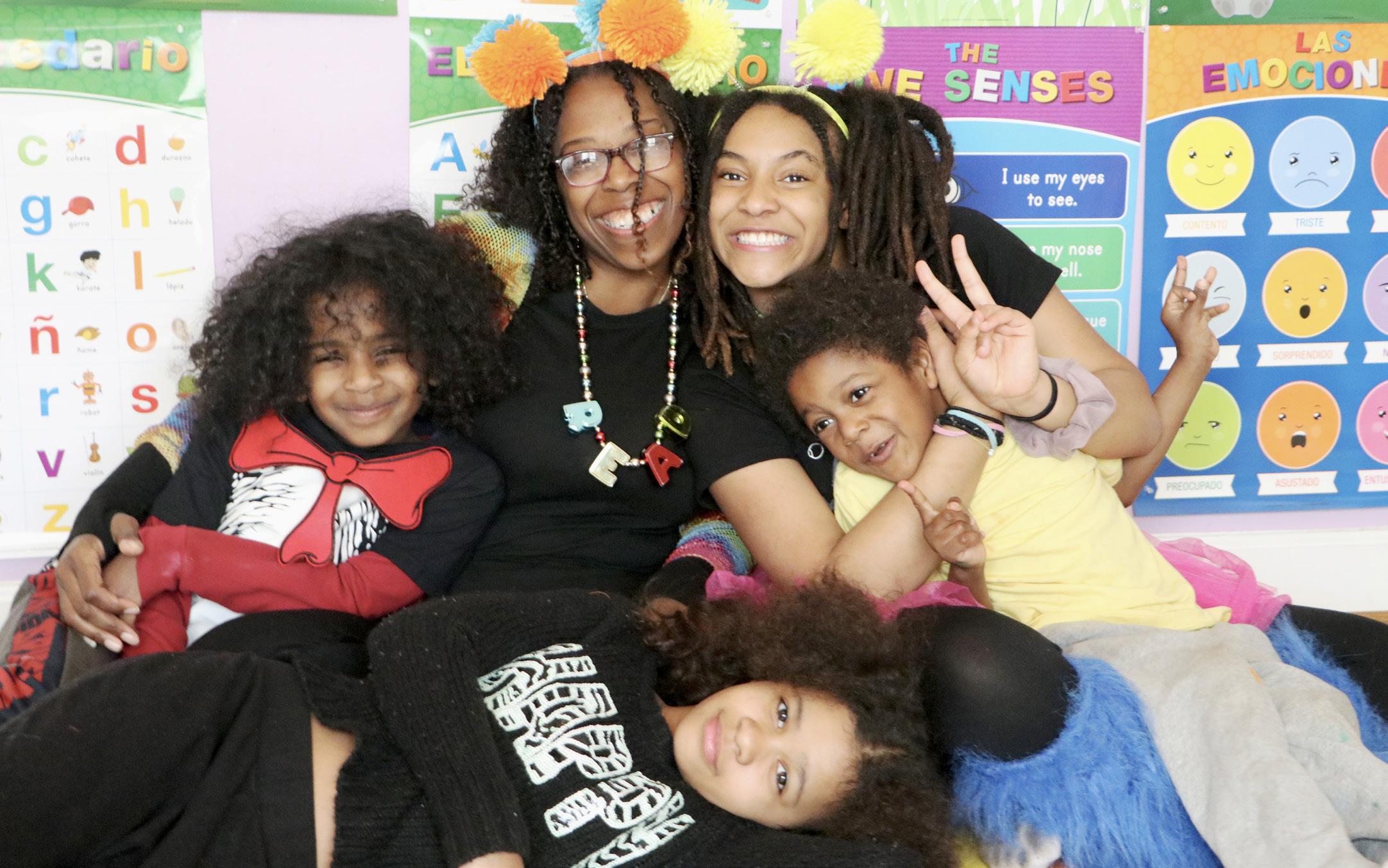
By Derik Hicks
Shylene Santiago’s journey is one of resilience, determination and unwavering commitment to her children’s future.
A single mother of nine, Santiago has overcome homelessness, embraced homeschooling and built a business that promotes multilingual education among children of color. Her story is not just one of survival but of thriving against the odds, making her a model example of an INLIVIAN tenant who has used the resources available to her to create something meaningful for her family and community.
In 2015, Santiago and her children moved to Charlotte from Ohio, facing the harsh reality of homelessness. With seven children depending on her, securing stable housing was paramount. She received a housing voucher through what is
now known as INLIVIAN (formerly the Charlotte Housing Authority), which provided her with the stability she needed to begin rebuilding her life.
“INLIVIAN gave me a peace of mind,” Santiago said. “It gave me a sense of security where I knew that I would be able to find a house, and we wouldn’t be on the streets anymore. That’s what really helped me find myself—being able to have a stable home life.”
Santiago credits INLIVIAN not only for providing her with stable housing but also for offering programs that helped her grow as an individual. Through INLIVIAN’s resources, she received guidance from a life coach, worked on her credit and pursued educational opportunities.
“They have so many programs to help you get on your feet,” she said. “If someone is just sitting there doing nothing, it’s because they choose to.”
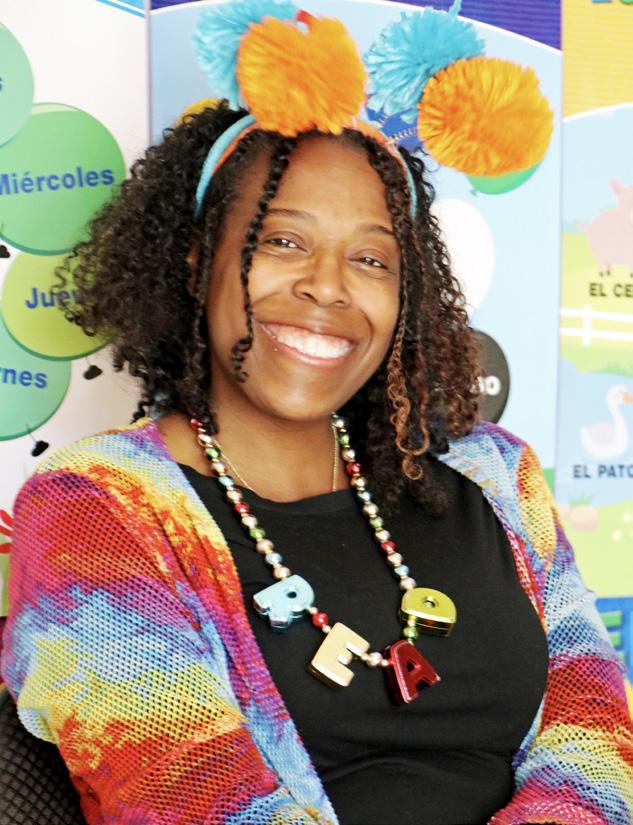
Santiago’s journey into homeschooling began in 2017, sparked by both necessity and inspiration. Her youngest son was born with a heart condition, requiring frequent medical care, which made working outside the home difficult. Around the same time, her fourth child, Anita, witnessed classmates being bullied for their accents and decided to learn their languages to show others the value of being multilingual.
“My daughter came home and said, ‘Mommy, we’re going to learn Mandarin, we’re going to learn this, we’re going to learn that,’” Santiago said. “She wanted to show her friends how cool it was to be multilingual.”
Inspired by her daughter’s enthusiasm, Santiago and her nine children immersed themselves in learning multiple languages, creating a foundation for what would later become their business.
Santiago turned her family’s love for languages into a business, Learning Language 4 Fun, LLC. Initially, she and her children would perform songs in different languages at nursing homes, an initiative inspired by one of her daughters who learned that multilingualism helps brain function in older adults. As their performances gained traction, they started getting paid to appear at events, making Santiago realize that their passion could be monetized.
Today, her business focuses on creating bilingual books featuring Black and brown children, making language learning more accessible and relatable to communities of color. Santiago has developed books in Mandarin, Russian, Spanish, French and more, incorporating historical figures and cultural representation into her educational materials.
One of the biggest challenges Santiago faced was convincing people of the importance of multilingual education in communities where it was not traditionally prioritized. “People told me, ‘Nobody in the hood speaks Russian or Japanese, why are you doing this?’” she said. “But I remembered Malcolm X’s quote: ‘You have to wake the people up first, then you’ll get action.’”
She is particularly proud of creating
resources that children of color can relate to. “When kids see themselves in these books, they connect with the language,” she explains. “It’s something that wasn’t offered in our communities before.”
Ayanna Drake, INLIVIAN’s Lead Life Coach, has witnessed Santiago’s passion firsthand:
“Ms. Santiago’s determination to improve her children’s lives expands beyond education — it’s about enhancing their overall
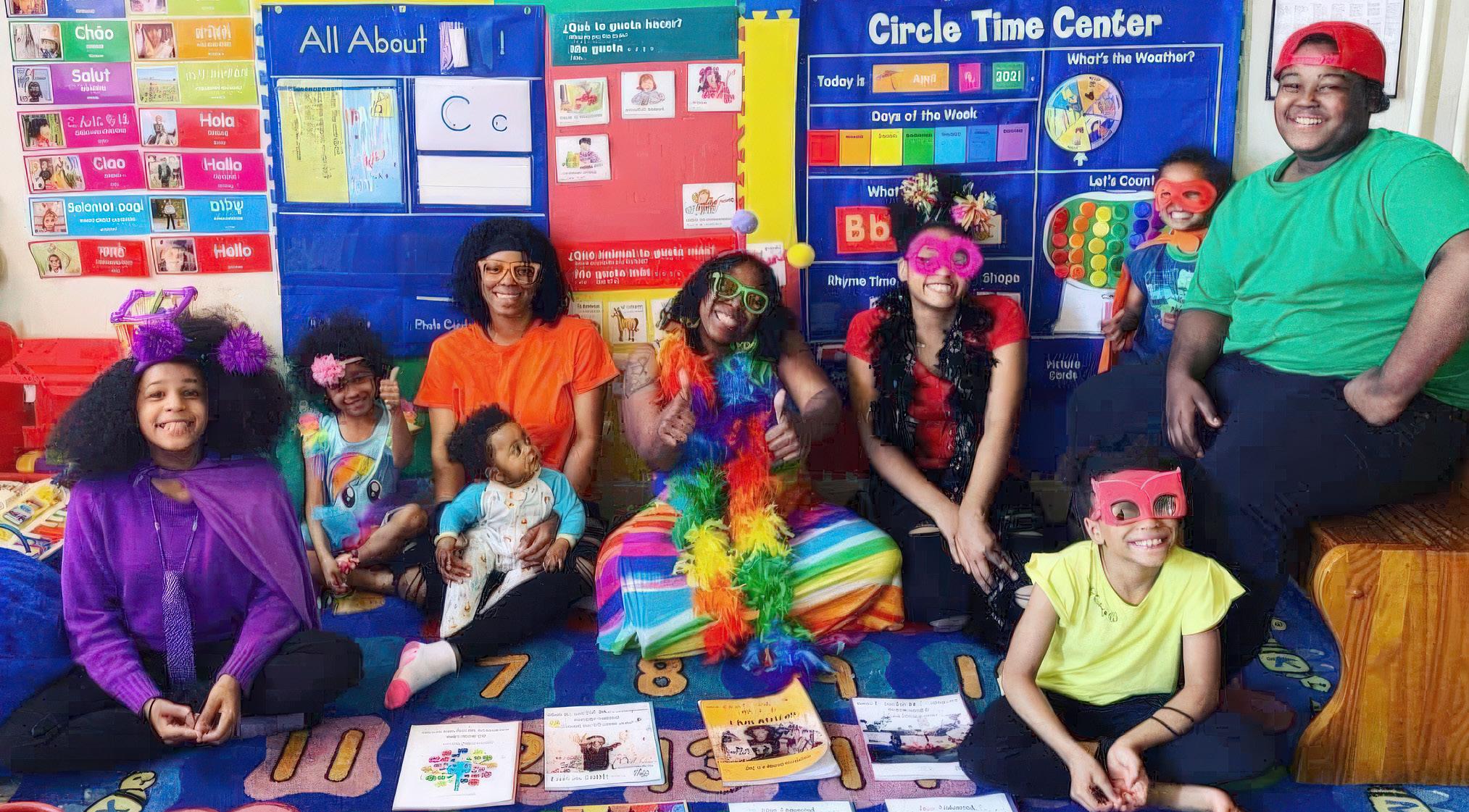


opportunities. She connected with INLIVIAN’s Creating Opportunities for Resident Empowerment program at the beginning of 2025, eager to obtain resources for her current and future goals,” Drake said.
“From our first meeting, I was in awe of her zeal for educating her children differently while sharing her love of language with other parents,” she added “As her life coach, I provided additional resources, and she immediately took action. She is consistently engaged in growing herself. I know she is destined for greatness.”
By leveraging her circumstances rather than being limited by them, Santiago has built a business that not only sustains her family but also enriches the lives of others. She remains committed to expanding her multilingual book collection and advocating for multilingual education in underserved communities.
“As parents, we have to create opportunities for our kids,” she said. “Language is power, and I want our children to have access to that power.”
Connect with Santiago on:
• TikTok: learnalanguage4fun
• YouTube: Multilingual Stars Homeschool
• Instagram: @Learnalanguage4fun P
By John Burton
AWake Forest alumnus and Greater Charlotte Cultural Trust board member Torrey Feimster is committed to helping to foster inclusive growth and community empowerment. In his new role as CEO of Ascension Community Development Corporation, he is helping to close the wealth gap and open doors to homeownership for all.
Q: Your professional journey spans media, higher education, finance and community development. How has your past experience prepared you for your current role as a leader at Ascension?
A: Throughout my career, I’ve had the privilege of working across both the private and nonprofit sectors. I spent 13 years at GEM Investments, a Charlottebased, $13 billion investment firm that serves mission-driven organizations like foundations, colleges and universities. I’ve served in various roles, most recently as director of diversity equity, and inclusion. Before that, I worked at Johnson C. Smith University in the Development Office, serving as Director of Corporate Relations, focusing on fundraising and building partnerships within the corporate community.

With your comprehensive background, how does your work at Ascension specifically contribute to narrowing the wealth gap in our community?
A: At Ascension CDC, we believe homeownership isn’t just a milestone — it’s a vehicle for accelerated generational wealth. Our innovative model goes beyond simply building homes — we’re creating mixedincome communities that provide not just a place to live, but a foundation for long-term financial stability and upward mobility. Our mission is to build attainable for-sale housing in mixed-income developments, ensuring that families aren’t priced out of homeownership and provide financial literacy and homebuyer education to equip buyers with the tools to sustain homeownership and build wealth.
These experiences have given me a unique perspective on how capital, community, and collaboration can intersect to drive sustainable, lasting change — particularly when it comes to aligning financial resources with mission-driven outcomes. What seemed like separate puzzle pieces at the time [turned out to be] all part of the bigger picture — one that led me right to Ascension Community Development Corporation.
Q. From your perspective, what are some of the most significant misconceptions people have about the wealth gap? How do these misunderstandings impede progress?
A: That the wealth gap can be closed.
People talk about “closing the wealth
gap” as if it’s a finish line we can cross. But in reality, the gap is not a static target — it’s constantly shifting due to systemic factors, historical inequities, and compounding advantages or disadvantages over generations.
A more realistic and actionable goal is to stop the gap from widening and focus on narrowing it through sustained, multifaceted approaches — not just financial interventions, but structural changes that address deeper barriers. If people believe the gap is fully closable, they overlook systemic barriers that keep it expanding. Instead of pushing for quick fixes, we need long-term strategies — education, homeownership, policy shifts and wealth-building initiatives — that make meaningful, generational progress.
Also, we can’t talk about the wealth gap without also addressing the “opportunity gap.” Wealth doesn’t exist in a vacuum — it’s built over time through access to opportunities like quality education, stable employment, entrepreneurship, financial literacy and homeownership. When certain communities are systemically excluded from these opportunities, wealth accumulation becomes nearly impossible.
By breaking down barriers to homeownership, Ascension is helping families move from renting to owning, ensuring that real estate appreciation works for them, not against them.
Q: Can you talk a bit about the origins of Ascension Community Development Corporation? Who started it and how is it different from other community development corporations?
A: Ascension was founded in 2022 by James Scruggs, a local real estate developer and CEO of Kingdom Development Partners. As James often says, real estate has been good to him, but he felt the Lord nudging him to give back in a way that would truly move the needle for underserved communities. He was especially passionate about helping Black and Brown families and the “missing middle” find attainable housing and build wealth.
That’s really the heart of Ascension. We officially received our 501(c)(3) status in March 2024, and since then, we’ve been off to the races.
What makes Ascension different from other community development corporations is our two-fold mission: yes, we’re focused on increasing access to attainable, for-sale housing in mixed-income communities, but just as important is our goal to close the racial wealth gap by creating pathways

to accelerated wealth generation through home equity. That second part is what sets us apart.
Many affordable housing nonprofits do incredible work, but most focus on rental units. We’re building mixed-income, marketindistinguishable communities where families can own homes and gain access to long-term financial stability. … We’re not just building homes but supporting the whole journey through financial literacy, home maintenance education and wraparound services. By leveraging publicprivate partnerships and private capital, we can move with more flexibility and scale and have a greater impact.
At the end of the day, Ascension isn’t just about building attainable housing — it’s about creating ownership, opportunity and lasting economic mobility.
Q: What are your major responsibilities at Ascension CDC and what are some goals you’d like to accomplish in your role as CEO of the organizations?
A: As CEO of Ascension CDC … my job is to keep us aligned with our mission and ensure we have the right partnerships, capital and strategy to bring that mission to life. That means leading everything from real estate development and capital fundraising to overseeing our programming and community engagement efforts.
One of my biggest responsibilities is making sure we’re sourcing the right
projects — primarily ground-up, forsale residential developments—and structuring each deal in a way that balances social impact with long-term financial sustainability.
[I also] oversee the wraparound services that make our model more than just about building homes. We offer financial literacy education, home maintenance training, tax relief programs and other support systems — because our goal isn’t just to get families into homes but to ensure they can retain and leverage that home equity to create lasting wealth.
Q: What are some of the projects Ascension is currently working on?
A: One of our flagship projects is The Legacy at Paw Creek, a mixed-income, for-sale residential community in Northwest Charlotte. This development is an excellent example of our model in action. We’re planning to build 89 units — a mix of townhomes and triplexes — on an 11-acre site, with around 30% of the homes designated as attainable for moderate-income buyers. This project is special because every home, whether market-rate or attainable, is built to the same high-quality standard — visually and structurally indistinguishable.
Another exciting layer to this project is our emerging partnership with KIPP Academy Charlotte, a public charter
school. We’re exploring ways to reserve attainable homeownership opportunities for KIPP teachers and staff, helping to address housing affordability and educator retention — two challenges that deeply affect our communities.
Ultimately, The Legacy at Paw Creek isn’t just about building homes—it’s about creating a neighborhood that’s inclusive, sustainable, and wealth-building for working families. And it’s just the beginning — we’re building a pipeline of projects that follow this same blueprint across Charlotte and, eventually, other parts of the Carolinas.
Q: Ascension CDC is on a mission to bridge the housing and wealth gaps in our community. If you could implement one ambitious ‘moonshot’ initiative to propel this mission forward in Charlotte — no limits on resources — what would that look like?
A: It wouldn’t just be about housing — it would be about the entire life cycle of economic mobility.
Imagine a consortium of public and private organizations working together beyond the housing continuum, tackling every major pain point that affects under-resourced families and the missing middle — housing, health, education, wealth-building and career advancement.
Each organization in the consortium would bring their expertise to the table but operate within a cohesive strategy — seamlessly integrating services so families aren’t just surviving but thriving. The cornerstone of the success of the consortium would be housing stability and economic mobility. I believe when you solve for housing, you solve for everything else that creates generational impact.
Q: Pride Magazine plays a pivotal role in shining a light on African American voices. Reflecting on your tenure as publisher, what specific experience and/or story left the most profound impact on you, and what made it so impactful?
A: There are countless stories and experiences that have shaped me, but one that stands out the most is witnessing Dee Dixon’s journey. She went from being an admin at the Charlotte Observer to taking a leap of faith and acquiring Pride Magazine in 2001 — a bold move that took vision, grit and an unwavering commitment to community. P
Thanks to Alicia Michele Benjamin for editing this article.
Lorie McCowan Spratley, president of R.J. Leeper Construction
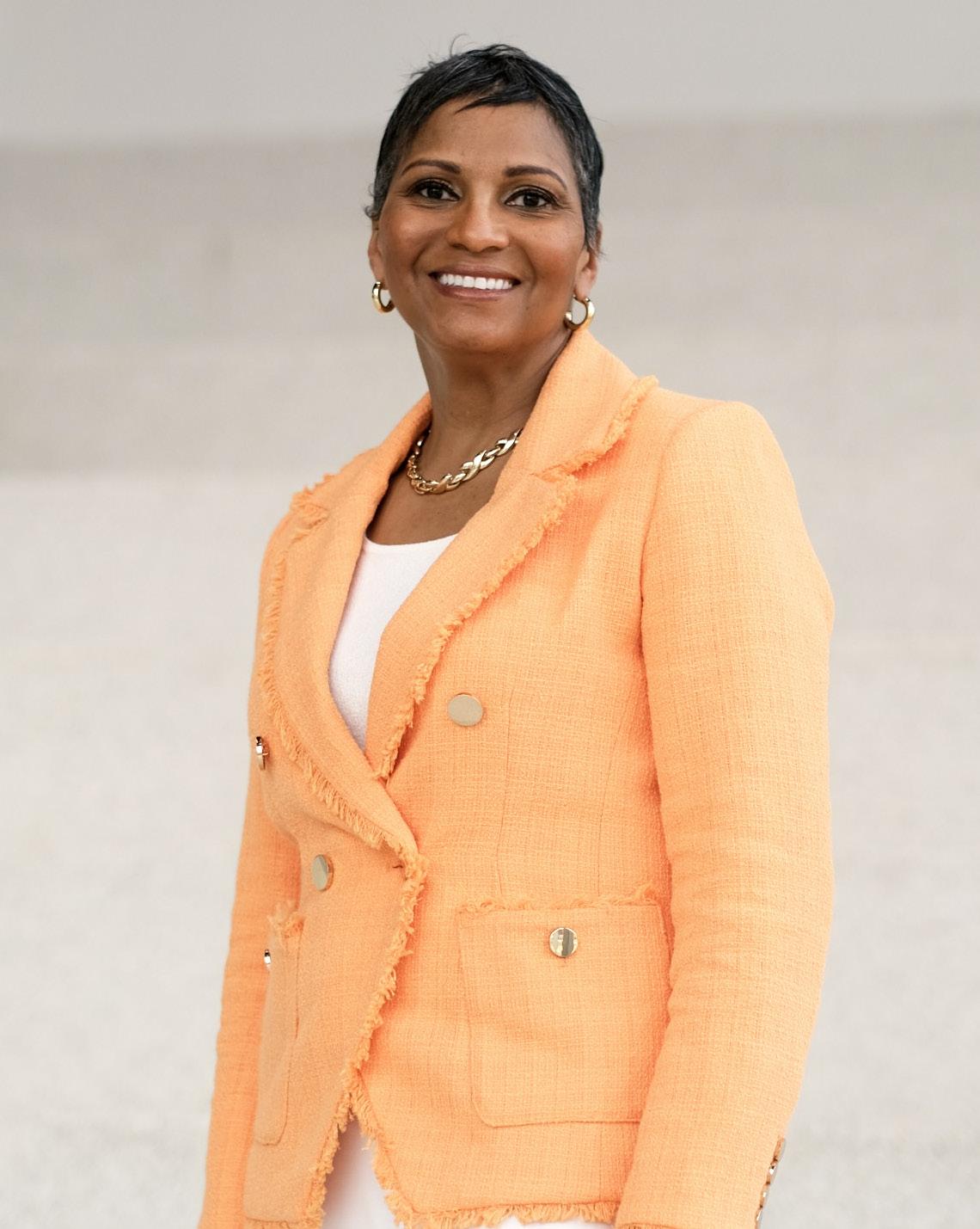
By Angela Lindsay
In the historically and still largely white male-dominated construction industry, Lorie McCowan Spratley’s presence in this space represents both a personal achievement and a broader commitment to change. As president of R.J. Leeper
Construction and chief operating officer of Bright Hope Capital, she is continuing along a path that was set for her early and upon which she is building a legacy for herself and other Black women in the future.
Growing up in rural Virginia, Spratley was inspired by her father’s work in construction.
He was also her first mentor, gleaning lessons in financial literacy and economic systems from him that she said have shaped her ability to navigate both business and professional landscapes effectively. His wisdom, she adds, provided a strong foundation that continues to guide her today. Driving efficiency, strategic growth and operational excellence have been at the center of her career. Spratley’s 25 years of experience in financial oversight, risk management, compliance and operations began with earning a Bachelor of Science
degree in accounting from Norfolk State University followed by a Master of Science degree in accounting with a specialization in taxation from Strayer University.
“While I pursued a career in accounting, I always felt drawn to the built environment and the impact that well-executed projects have on communities,” she said. Now, leading one of the largest Black-owned construction firms in the region, I see my role as more than just running a business — it’s about expanding opportunities and ensuring that diversity, equity and inclusion are embedded in the industry’s future.”
It is no secret that navigating Corporate America can be unforgiving, particularly for women of color. Climbing through the ranks toward executive leadership can also compound certain issues, which Spratley tackles by constantly balancing resilience with strategy.
During the times when she was the only woman — or the only person of color — at the table, she said she’s had to be intentional about how she shows up, ensuring that her leadership, expertise and results speak louder than any preconceived notions about who belongs in executive roles. However, while acknowledging the very real and often unfair obstacles, Spratley doesn’t dwell on them.
“I focus on execution and impact,” she said. “Success, for me, has always been about delivering results, leading with integrity, and ensuring that the doors I walk through remain open for others. That’s why mentorship and advocacy are so important — not just for personal success, but for creating real opportunities for the next generation of Black leaders.”
Spratley said her professional journey has given her “a unique perspective on fostering inclusivity and driving meaningful progress.” She is passionate about creating a more equitable and representative construction

industry “where diverse voices contribute to stronger, more innovative solutions.”
“The experiences I’ve gained along the way have not only strengthened my leadership but have also shaped my belief that inclusivity isn’t just good for business, it enhances project efficiency, workplace culture and long-term industry success,” Spratley said.
Since joining R.J. Leeper Construction as chief operating officer in 2021, following Bright Hope Capital’s acquisition, Spratley led initiatives that significantly enhanced operational efficiency, profitability, and strategic growth. She was instrumental in securing and leading high-profile projects, including Atrium Health’s Pearl Innovation District and the Charlotte Hornets Performance Center. Under her leadership, Leeper Construction has become one of the largest Black-owned businesses in Charlotte.
In her current role as president, she oversees the strategic direction and operational performance of R.J. Leeper Construction, which includes developing and executing strategic business plans that drive growth and profitability.
These plans also strengthen regional and national market presence through expansion initiatives, fostering a high-performing executive team and mentoring leadership. They drive operational excellence while

ensuring financial strength. With a 338% revenue increase since 2020, her priority is “to build on this momentum, ensuring sustainable success and continued leadership in the industry,” Spratley said.
“The opportunity to build upon this success and lead the company into its next era of growth and industry leadership is what excites me most about this position. Our recent record-breaking year, with revenues reaching $178.4 million — a 42% increase over 2023 — demonstrates the strength of our strategy, team and market position. As president, I am committed to expanding our reach, growing our workforce, fostering innovation and ensuring longterm success.”
Key priorities for doing so include expanding into the Wilmington, North Carolina, Triad and Triangle markets to strengthen their regional footprint. Their priorities also include pursuing strategic acquisitions to broaden their capabilities and market reach, and growing in key sectors that include healthcare, sports and entertainment. The company will be executing projects at the highest industry standards, setting new benchmarks for innovation and operational excellence.
“Additionally, the company will undergo a rebranding initiative, transitioning to doing business as Bright Hope Construction while maintaining the R.J. Leeper banner. This strategic evolution better reflects our vision for growth, differentiation and long-term industry leadership,” she said.
Spratley is intentional about lifting as she climbs. Her advice to Black women working toward executive leadership: start with owning your excellence, which she
describes as recognizing your worth, standing confidently in your abilities and never feeling the need to prove yourself beyond the results you deliver.
“Beyond that, know that the real work is in building your network, staying resilient, and lifting other Black women up. Success isn’t achieved in isolation. Building a strong network is essential. Surround yourself with mentors, allies and peers who challenge you, support you, and open doors to new opportunities,” Spratley said.
“Resilience is also critical. The path to leadership isn’t always fair or easy, and you will face obstacles,” she added. “Whether it’s being underestimated, overlooked or navigating spaces where you are the ‘only one’ in the room, challenges will come. The key is to learn from them, adapt and push. When we support and uplift each other, we don’t just create space for ourselves — we build a stronger, more inclusive future.” P

For the past decade, Goodyear Arts has served as a sanctuary for emerging artists in Charlotte and beyond, whose creations were outside the scope of traditional artistry.
Founded by artists Amy Bagwell, Graham Carew and Amy Herman in 2015, Goodyear Arts is artist-centered and artist run. The program offers creators who are often viewed as alternative artists a space to be themselves without judgment. Known for utilizing underused commercial spaces for its bold and innovative artist residencies, Goodyear Arts was first housed at the former Goodyear tire and oil change center in Uptown (at the corner of Stonewall — now Brooklyn Village Avenue — and South Tryon Streets) and now sits at Camp North End.
“The center was originally created for fringe, underground artists who needed a space to create and display their art. Charlotte has always had some of the most profound artists, but at that time, there wasn’t a space for art that wasn’t polished or considered unrefined,” said Community Engagement Manager and inaugural resident artist de’Angelo Dia. “That building allowed exploration unlike other spaces. Because it was going to be demolished, I could take a sledgehammer to the floor to create sound for a performance and be my most authentic self as an artist.”
Goodyear Arts hosts free and public performances, exhibitions and events that showcase works on 16-millimeter film, dance, music, poetry and experimental art forms. At least 50 percent of its resident artists identify as members of the BIPOC community, and its programs are presented in English and Spanish. That intentional diversity fuels the creative energy that has helped to make the organization a staple in the Charlotte art scene.
Its six-week residency programs feature three cohorts of three artists each from Charlotte and around the country. Goodyear Arts invites three guest curators annually.
“[Six weeks] is not enough time to express a thought and convey it, so Goodyear Arts is meant to be a jumping off point — or the beginning — of our work,” said Renee Cloud, a language-based installation artist, who serves as the gallery manager. “Our artists are part-time, so there is no pressure to have a finished product at the end of the residency,” she said.
Cloud, a Charlotte native who holds a bachelor’s degree in fine arts from Appalachian State University, joined Goodyear Arts in 2016 at its Seventh and College Street location. She started in 2016 and currently facilitates the process for all
By Loán C. Lake
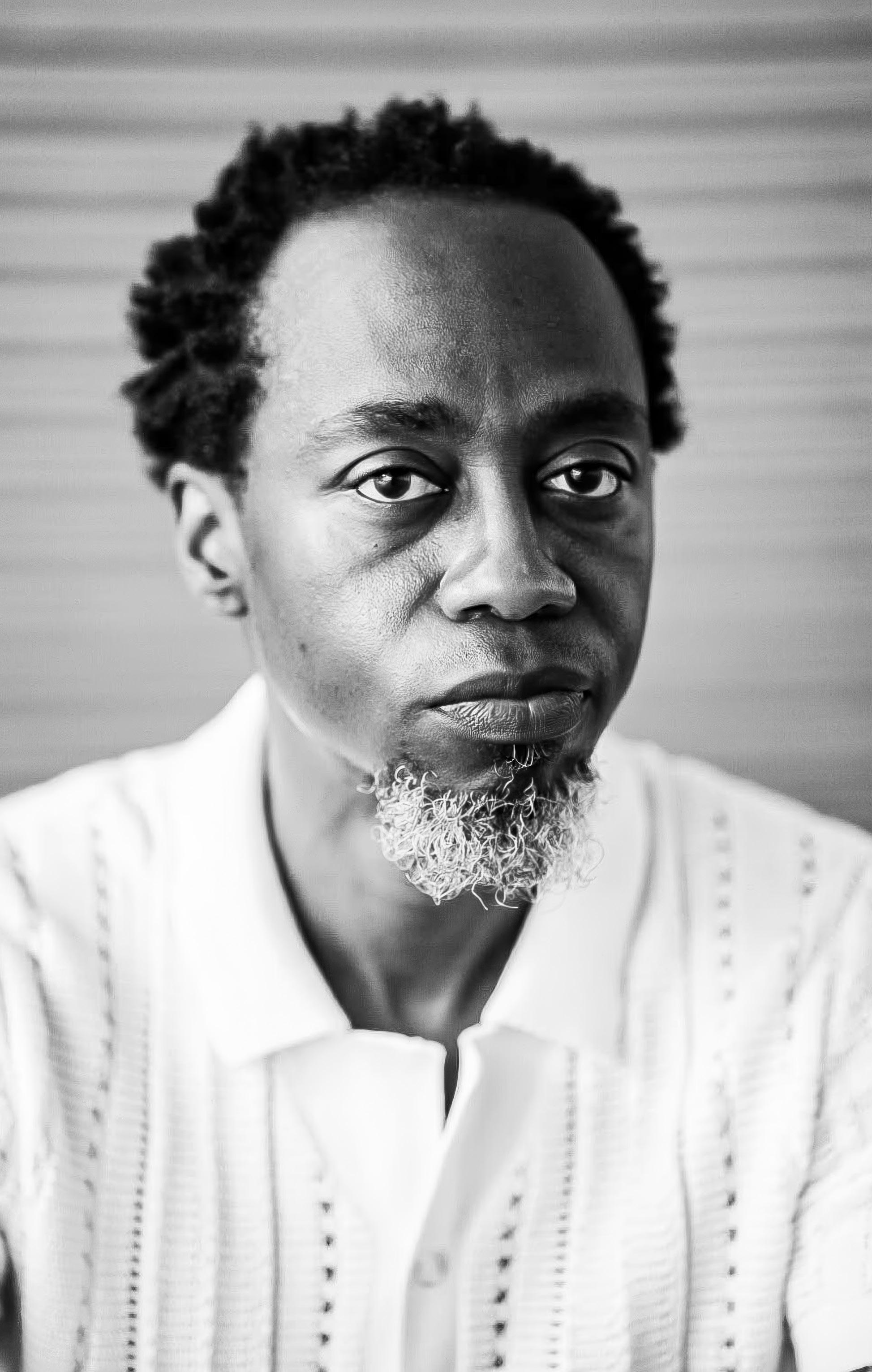
incoming artists, repairs the gallery for upcoming shows, and educates new artists on what the Camp Northend facility can accommodate structurally. “I saw what the organization could potentially be and how helpful it was to emerging artists like me,” Cloud said.
What started as a short-term community to fill a need for artists has grown into a long-standing arts institution that hosted its 10th anniversary gala on March 14, 2025. “[In some ways] I’m surprised that we’ve been here 10 years because there was never a plan for the future,” Dia said. “Our approach has

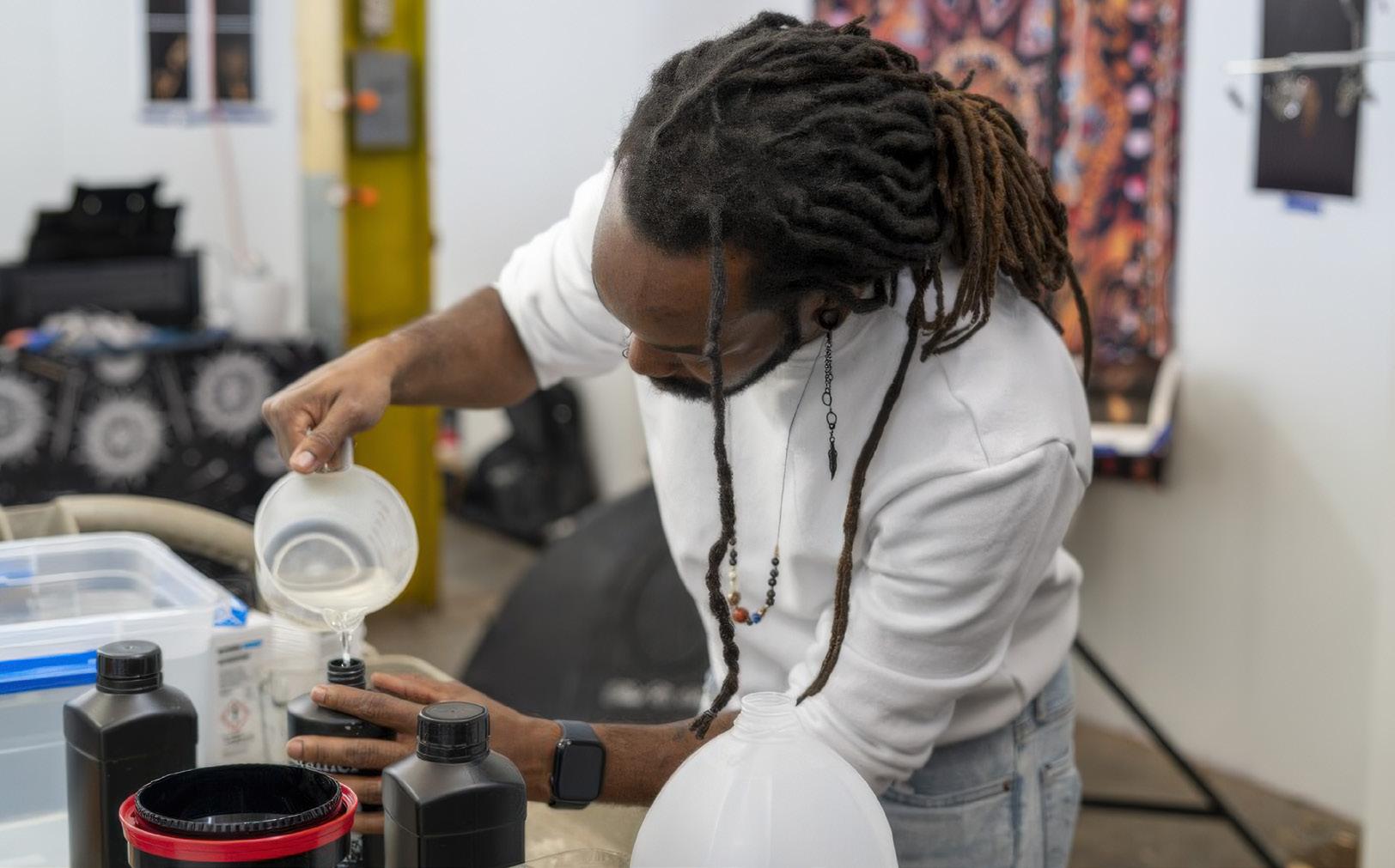
been to focus on being present in the day to day. As a result, we have not always stopped to celebrate our accomplishments. A project gets done, the community is served, and it’s on to the next. However, this year, we are taking time to reflect.”
Goodyear Arts hosts 10 shows per year and a number of performances. Some of its recurring programs include: “No Way out Open Mic” on the first Wednesday of each month, “Action Scenes, Avant Good Year: An Annual Experimental Performance and Film Series,” and “Doomsday and Night.”
Operated by its artists and volunteers, Goodyear Arts is fully funded by grants and the support of the community.
“The artist-run elements are key to our success,” said Dia. “We are more like family, and all of us have a responsibility for the longevity of the program. Having it managed by the people whose studios are housed here has created a level of
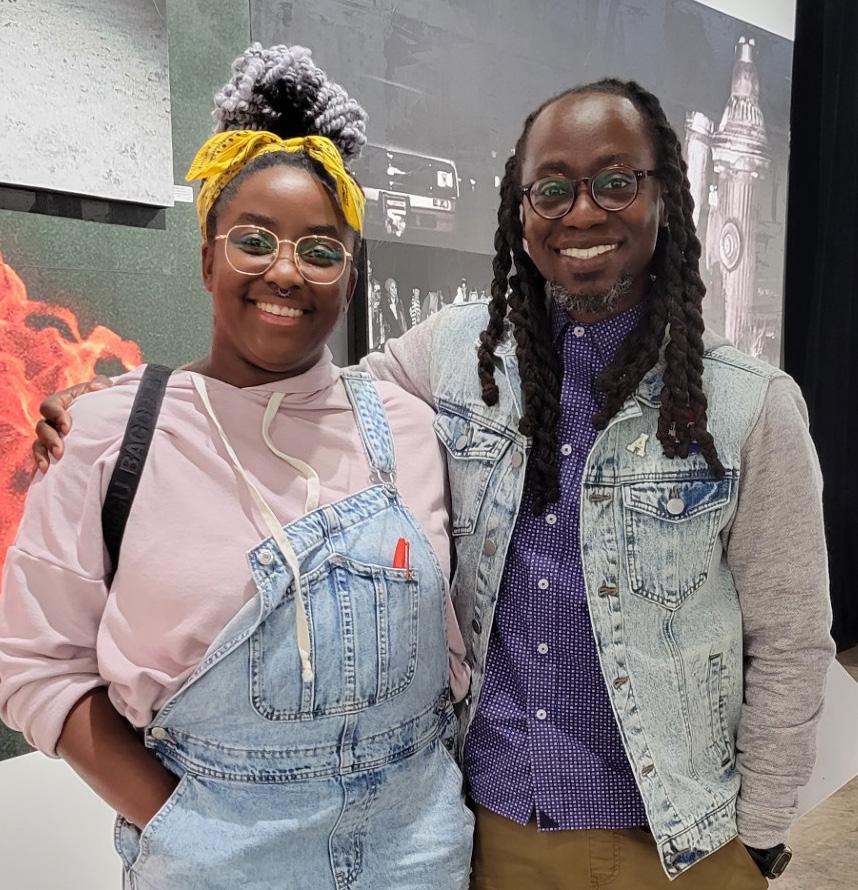
understanding of how we function in Charlotte’s art ecosystem.”
That cooperative element is what distinguishes Goodyear Arts from its counterparts. “Had it not been for the

compassion of Amy Bagwell and her approach as a creative, I don’t know where my career would be. This is a sacred space for me.”
Cloud echoes Dia’s sentiments.
“Goodyear has never been about the money. It was always the love of art that drove and sustained us. Exhibiting is important, but the process is just as important,” she said. “As a resident, I had to complete my art so it could be shared. Now, I have time to enjoy the process as well as the feeling of getting it on the wall.”
With an eye towards attracting more national performance artists this year, the future of Goodyear Arts is bright. Goodyear Arts is located at 301 Camp Road, next door to Free Range Brewing. Due to limited public hours, visitors should refer to the calendar page at goodyeararts.com for a list of upcoming programs and exhibitions. P
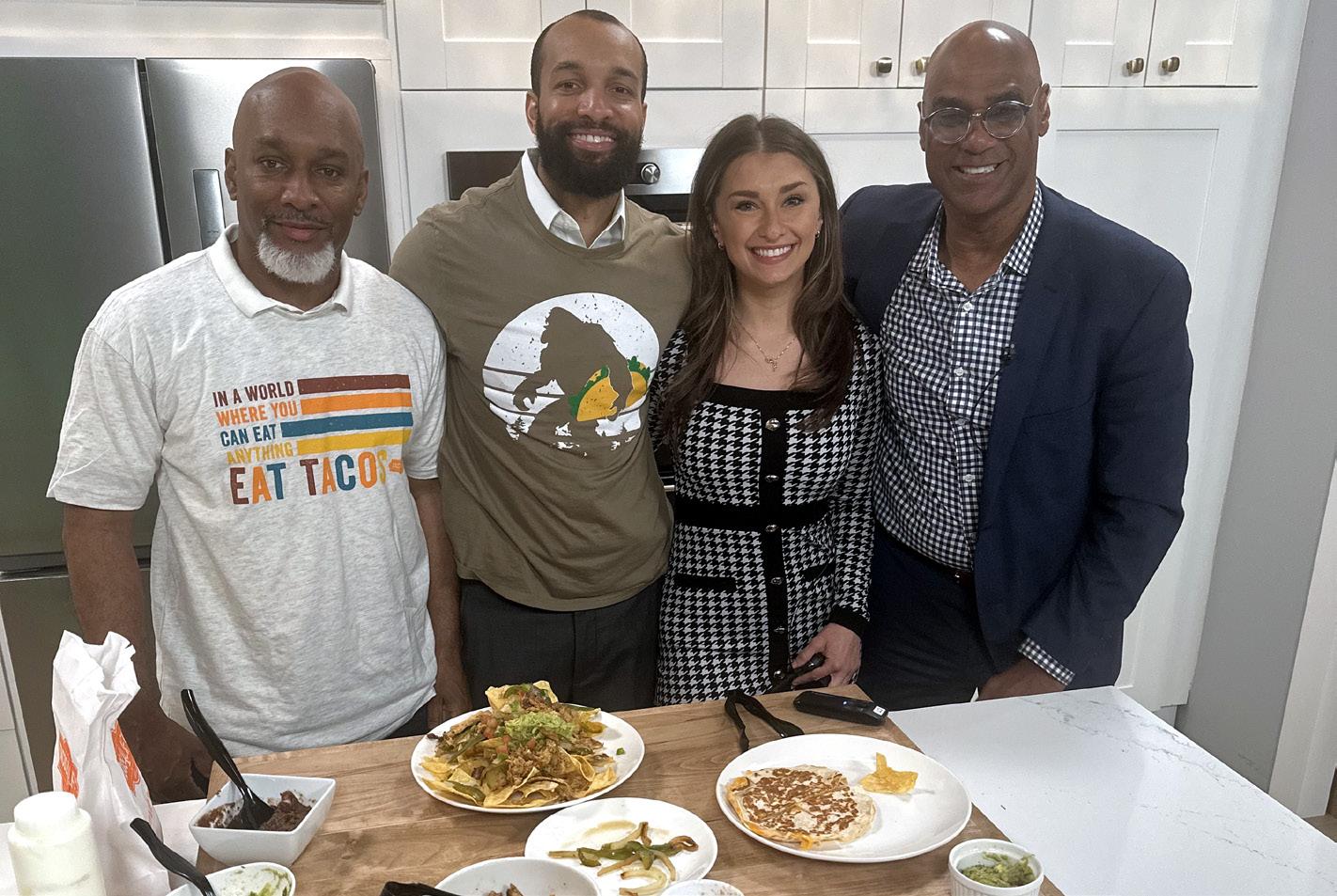
By Rosanny Crumpton
Tacos 4 Life, a fast-casual taco restaurant with a heart for giving, has officially opened its doors in Charlotte’s Dilworth neighborhood, offering guests a unique dining experience that blends delicious, made-fromscratch food with a mission to help end childhood hunger.
Located at 1716 Kenilworth Avenue in Charlotte, the new location boasts a welcoming 3,000-square-foot space with both indoor and outdoor seating, creating a vibrant yet peaceful atmosphere

where guests can enjoy food that makes a difference.
Franchisee Keon Williams said he was inspired to bring Tacos 4 Life to Dilworth because of its mission and the high-quality food. He felt that this driven mission concept could be very special in the historic neighborhood of Dilworth, the first established suburb in Charlotte, he said.
When guests step into Tacos 4 Life Dilworth, Williams said they can expect an inviting and faith-centered atmosphere. Gospel-centric acoustics provide a peaceful backdrop, while the restaurant’s décor is inspired by the villages in the underrepresented countries that benefit from the Meal 4 Meal program.
“Hospitality is a focal point of ours,” said Williams.” The Tacos 4 Life team greets guests warmly and thanks them for



supporting the Tacos 4 Life mission, he added. “Customers keep coming back for craft tacos for a cause coupled with an inviting atmosphere.”
Menu favorites include the Crab Cake Taco, Chicken Bacon Ranch Quesadilla and Fried Chicken Burrito. Williams encourages first-time visitors to try the Hawaiian Shrimp Taco, featuring fresh grilled shrimp, crisp lettuce, housemade Ono sauce, sweet pineapple, and a coconut garnish — all wrapped in a soft flour tortilla for a burst of tropical flavor. At the heart of Tacos 4 Life is the


and rice give children the nourishment they need to grow and thrive. Every taco sold at Tacos 4 Life contributes to
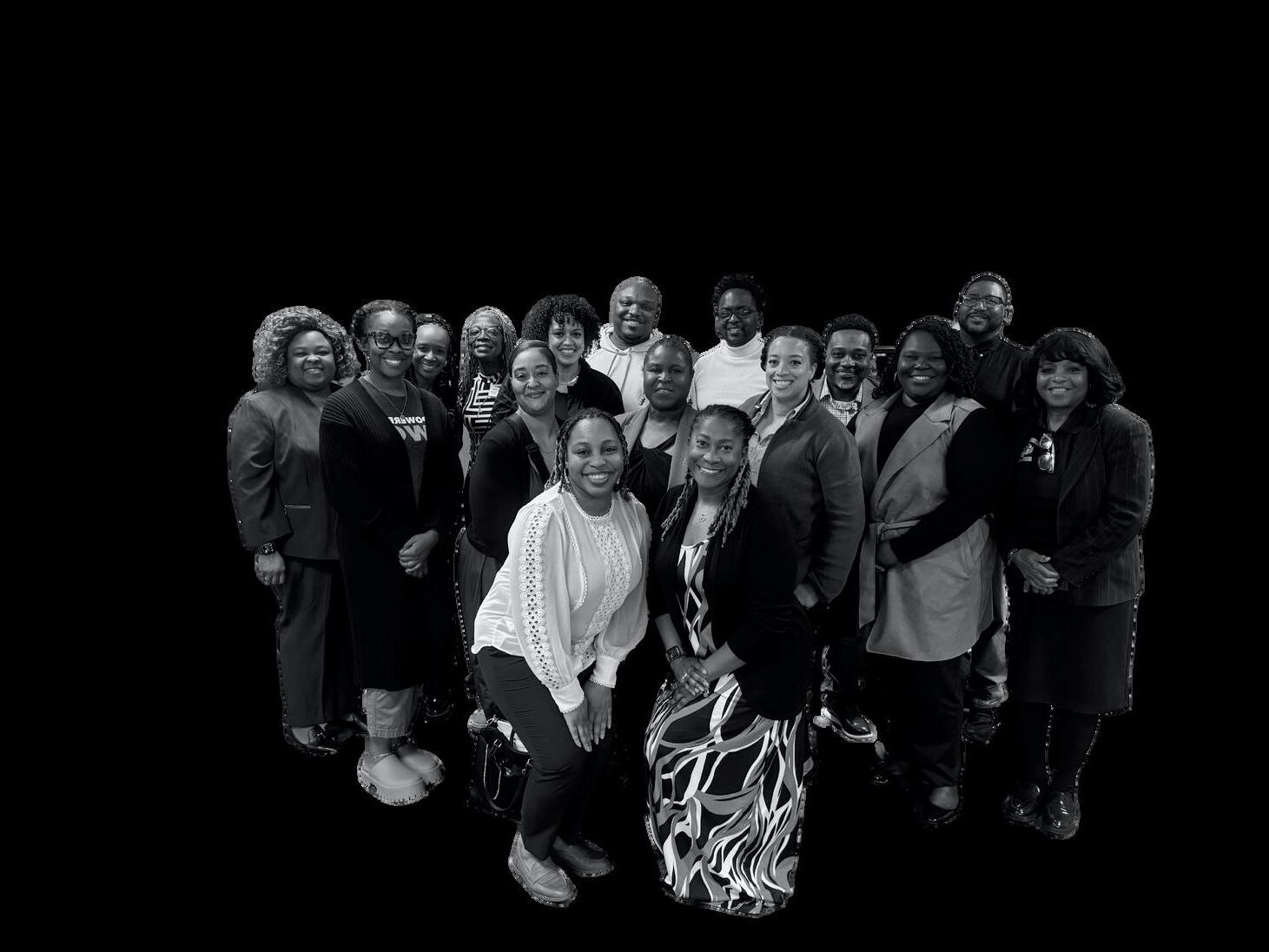



“Customers keep coming back for craft tacos for a cause coupled with an inviting atmosphere.”
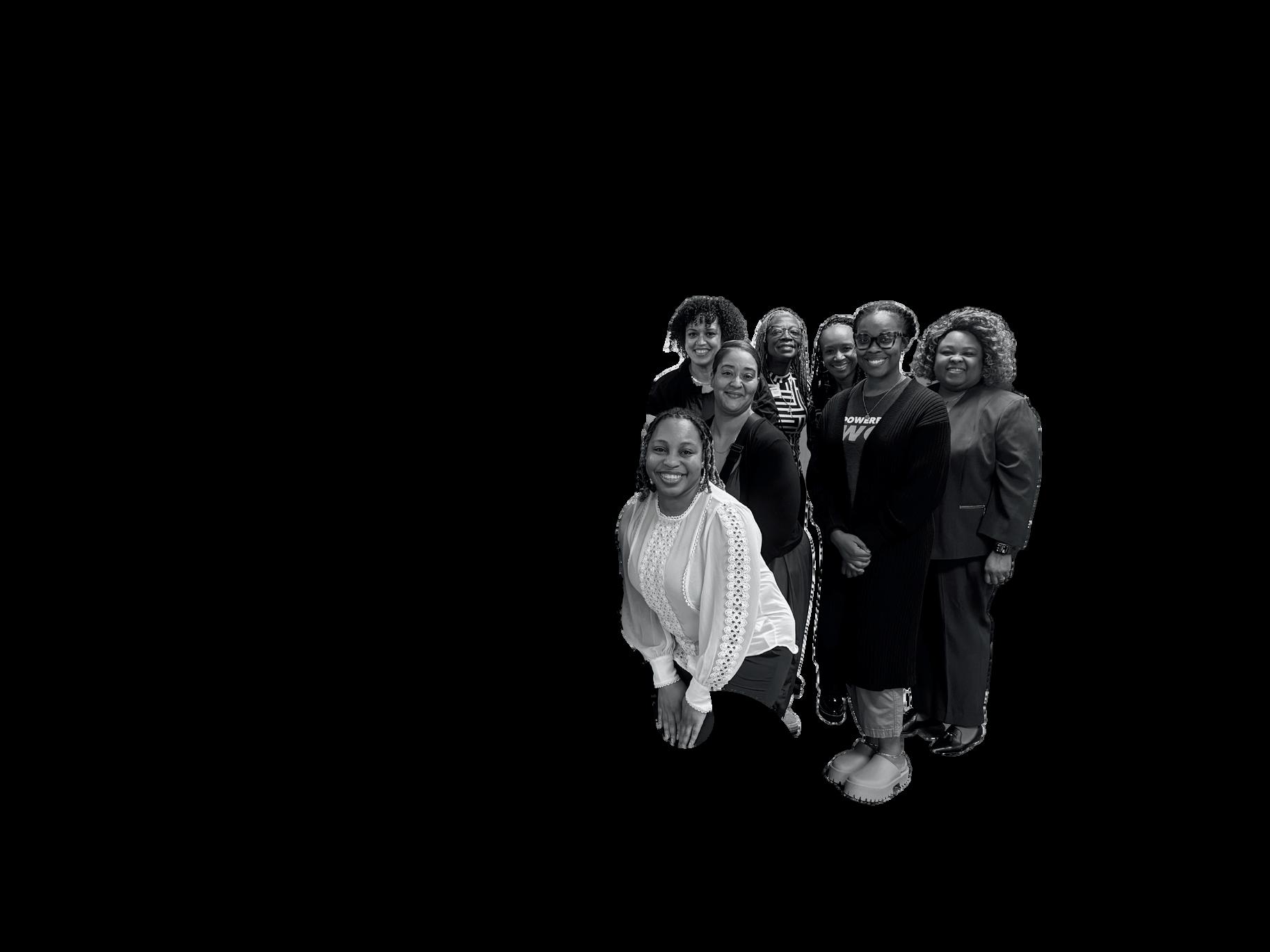
—Keon Williams
The community has a unique opportunity to get involved in the fight against hunger through the Mobile Meal Pack events, Williams said. Locals can stay connected via Instagram: @t4l_dilworth or inquire at the restaurant about upcoming volunteer opportunities to help assemble meals for children in need.
In addition to its charitable initiatives, Tacos 4 Life Dilworth is actively engaging with the local community through partnerships and sponsorships. The restaurant will be sponsoring Dilworth Little League Baseball and participating in the Dilworth Jubilee on May 17. They have also partnered with the Pilates Club Run Club at Kenilworth Commons, hosting events on Monday nights.
In addition to dine-in service, Tacos 4 Life Dilworth offers takeout and catering options.
With a passion for great food and an unwavering commitment to making a difference, Williams said Tacos 4 Life Dilworth is more than just a restaurant — it’s a movement, inviting the community to be part of the solution, one taco at a time. P
By Charles K. Harris
Like many states across the nation, North Carolina’s lack of licensed foster homes for children needing placement is at a crisis point. According to data published by the Department of Health and Human Services, North Carolina had a total of 11,258 children in foster care at the end of 2022, but only 5,436 certified foster homes. This numbers gap is one that dedicated advocates are working hard to bridge.
One 20-year veteran working to change this is Mackenzie Brailsford, the Senior Social Services Manager for the Mecklenburg County Department of Social Services, Child, Family and Adult Services. “The needs of our children are community needs,” Brailsford said. “We can’t do this alone. We absolutely need the community to join us.”
And those needs are great.
Brailsford reports that Mecklenburg County’s foster care statistics are reflective of statewide statistics. Currently, the county reports about 400 children are in the foster care system at any given time, with only 74 licensed foster homes in the county.
Fifty percent of foster care children are under age 10, with a median age of 8.
Statistics reveal that with age, chances of placement are reduced, especially amongst males, who make up some 51% of cases. And the numbers among children of color are even starker.
According to a 2014 research study published by the Public Library of Science, the chance of any U.S. child being placed in foster care is 1 out of 17. Among Black children, the rate was 1 out of 9.
According to Brailsford, the belief that older children, particularly around 12 and 13, are already too “set in their ways” discourages people from becoming foster parents.
Brailsford said confronting common misconceptions about foster care would help some who are more hesitant to

foster, to open their homes. “Face the fear!” he said.
Social services agencies in the U.S. require all prospective foster parents to complete specialized classes that offer a realistic view of the foster experience.
The curriculum offers a wide range of information and education about the foster care process, dealing with behavioral issues, and the program also focuses on the prospective foster families themselves.
“The curriculum allows the family to explore things about their own dynamics,” Brailsford explained. “The process requires vulnerability from the family. (Parts) of the curriculum are very sensitive. But it’s absolutely necessary.”
Deandra Green underwent that process last year.
Green, 24, a strategic management consultant in Charlotte, acted on a
1 out of 17
the chance of any U.S. child being placed in foster care
1 out of 9 the rate among Black children
50% of foster care children are under age 10, with a median age of 8.
Source: Public Library of Science

childhood desire to help other kids last year by becoming a foster parent.
“Growing up in Jamaica, my favorite thing to do was help my aunt take care

of her friend’s kids,” Green said. “When I would watch movies or hear the news (about) kids being hurt, I would feel so sad I couldn’t do anything about it. I always wished my family could take in those kids.”
She added that while the experiences can bring challenges, the education and ongoing support from the Mecklenburg County Department of Social Services helps tremendously.
“The most fulfilling part is knowing by simply having them in my home, I’m protecting them in some way,” Green said. Green also discussed the importance of deconstructing negative stigma. “Being in foster care is not an identity,” Green said. “We need to change [the stigma of being in foster care].”
While foster placement can be traumatic, all foster children should not be dismissed as “troubled,” she said. “That couldn’t be further from the truth. Most of the time, these kiddos look and behave just like your young family members or friends.”
Still, outside of removal trauma, many children have suffered abuse and neglect.
Brailsford explained that each foster child is individually accessed and placed according to their needs — ensuring minimal stress for the child and decreasing the likelihood of overwhelming foster parents.
“Some of the youth have behavior or mental health needs that supersede them being placed in a foster home,” he said. In those cases, the agency may place children in group homes or psychiatric treatment centers.
Besides giving prospective foster parents a better understanding of the process and types of behavioral reactions to expect, another aspect of the required training sheds light on what is oftentimes the misunderstood purpose of foster care.
“You don’t need to be wealthy or have a big home. Love is the most important element. Many times, even after reunification, these kids stay in touch with their foster parents for years and years.”
—Mackenzie Brailsford
“Our goal is reunification,” Brailsford said. In most cases, the hope is that removal from the family home is only temporary, and children can be returned, he added. According to the Department of Health and Human Services data previously cited, after a safe and healthy home life is secured, over 60% of foster children are eventually reunited with their parents or family.
While preparation is critical, both Green and Brailsford warn against feeling pressured to have the “perfect” circumstances before becoming foster parents.
“Listen, we aren’t perfect, and the county isn’t looking for perfect people,” said Green. “Just those with open hearts, and an extra room to spare.”
“You don’t need to be wealthy or have a big home,” said Brailsford, pointing out that love is the most important element.
“Many times, even after reunification, these kids stay in touch with their foster parents for years and years,” he said.
Green also said the importance of good scheduling and proper self care while fostering are important. And while she said foster parenting can be hectic at times; the benefits always outweigh the challenges.
She added, “I feel extremely lucky being able to see how much they love being loved.” P
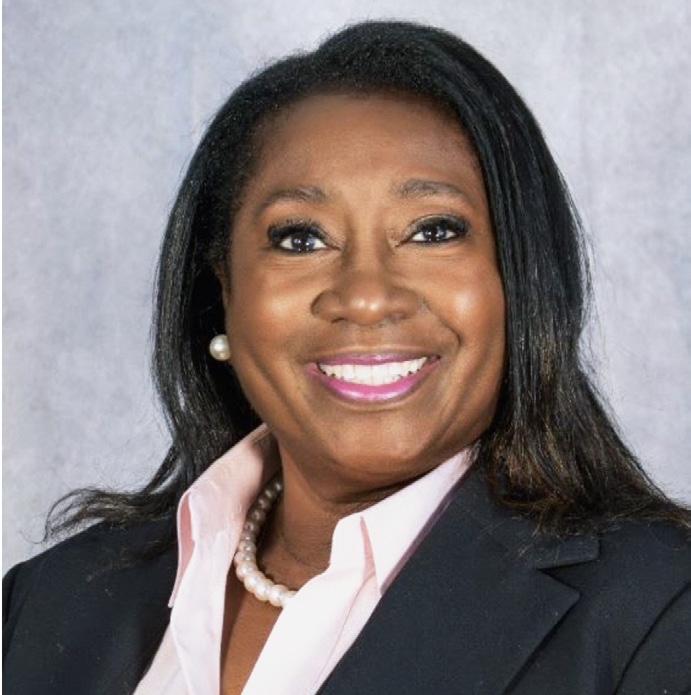
By Sasha Manley
Black Women entrepreneurs play no games when it comes to thriving.
According to the 2024 Wells Fargo Impact of Women-Owned Business Report, between 2019 and 2023, “Black women-owned businesses saw average revenues increase 32.7% ... compared to all women-owned businesses’ 12.1% rise.”
Among this powerhouse group is Joyce Palmer, managing partner of JP Financial Group (JPFG), a firm in South Charlotte with a mission to empower women through literacy and confidence in their futures.
Although statistics are limited, Palmer proudly represents a small number of
financial firms owned by Black women. Through her company values, Palmer said she’s determined to provide highquality service.
Believe it or not, Palmer wasn’t a fan of math growing up. Her career plans didn’t involve anything related to the financial sector.
Life took a detour when her husband was diagnosed with cancer, and she had to take the lead on the finances. “At first, I was terrified — I didn’t think I had what it took,” she said. “But as I began learning, something incredible happened. I realized I could be good at this. More than that, I found a passion for understanding how money works and how to make it work for us.”
Palmer explained her driving force: “What started as a necessity became a mission, and I knew I had to help other women avoid the fear and uncertainty I once felt. I created JP Financial Group — a boutique firm empowering women to take control of their financial futures confidently and clearly.”



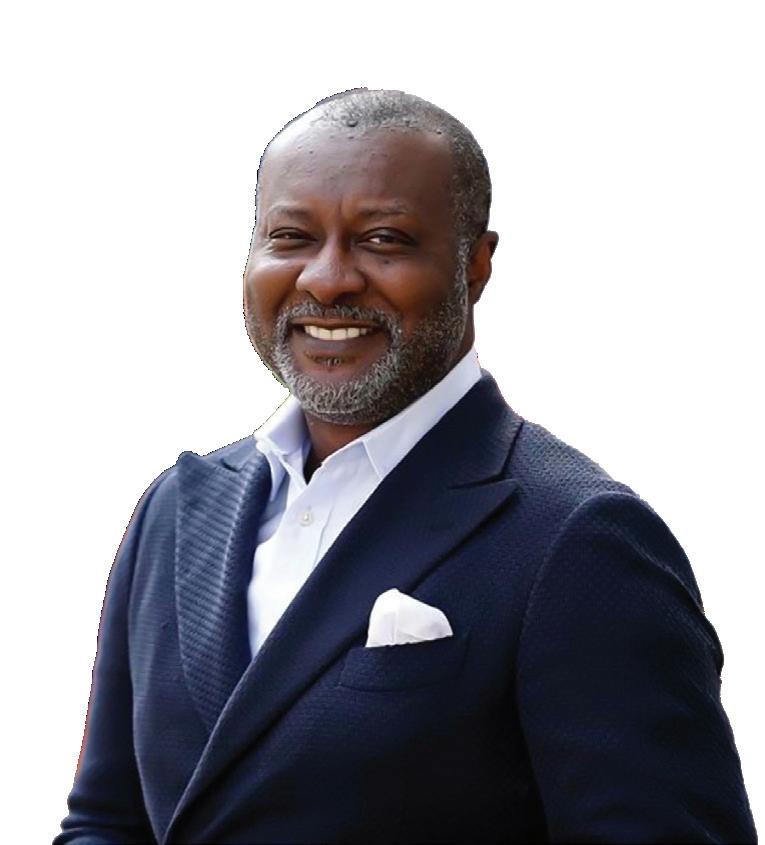


Success doesn’t come without its own set of challenges. As a Black-owned financial firm, Palmer said she feels obligated to hold space for women who look like her. “Representation in this industry matters, and many clients — especially women of color — seek financial guidance from someone who understands their lived experiences,” she said. “However, breaking into the financial world as a Black-owned firm means navigating a space that hasn’t always been welcoming or inclusive.”
The playing field isn’t even, but Palmer understands her ultimate goal: “I’ve had to work twice as hard to build credibility, establish trust and break stereotypes. But the reward is that we’re making a tangible difference in the lives of women who often don’t see themselves reflected in traditional financial firms.”
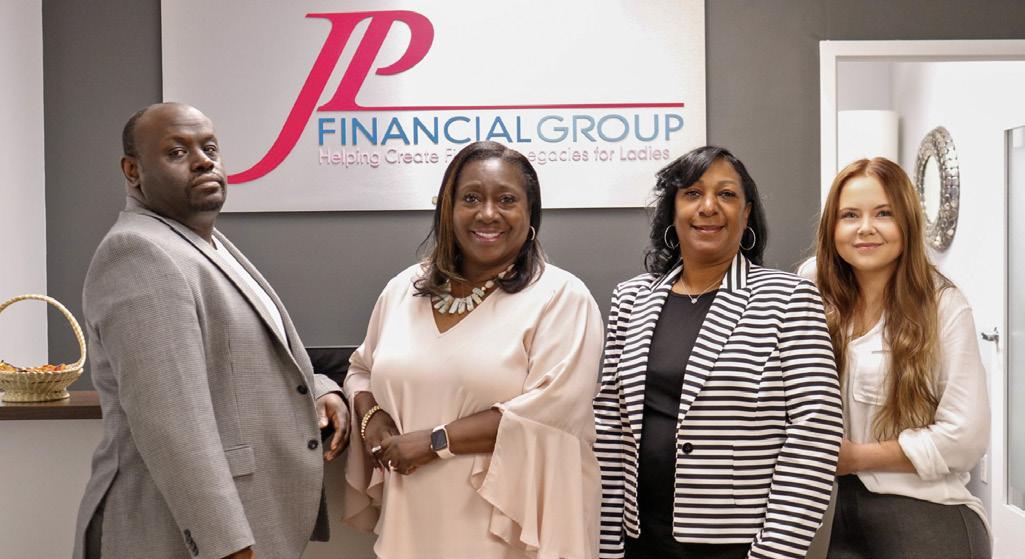
In today’s climate, it’s imperative for women to feel empowered through their financial decision-making. JP Financial Group has created company values based on the everyday challenges many women face.
“Women are living longer, earning more and often managing finances independently due to divorce, widowhood or personal choice. Yet, many still feel underserved or overlooked in the financial industry,” Palmer said.
“At JP Financial Group, financial literacy is a form of empowerment — it gives women the confidence to make informed decisions, secure their futures, and live on their terms. In today’s economic climate, where financial uncertainty is common, controlling your money is more crucial than ever.”
Some of the company’s services include retirement planning, insurance reviews, money management, tax planning, annuities and more.
The Proactive Women’s Podcast is another resource she said she created out of necessity. “We talk about everything from navigating financial fears to wealth-building strategies, investing and retirement planning,” she said. “It’s not just about numbers — it’s about mindset, empowerment and breaking generational cycles.” She added, “Many women feel isolated in their financial journey, and this podcast creates a space where they feel supported and inspired to take action.”
Palmer said she’s working to gain national recognition for her firm. “I want to continue expanding our reach, developing educational programs and creating more resources for women to take control of their financial destinies,” she said. “I want to remove the fear around finances and replace it with confidence, clarity and purpose.” P
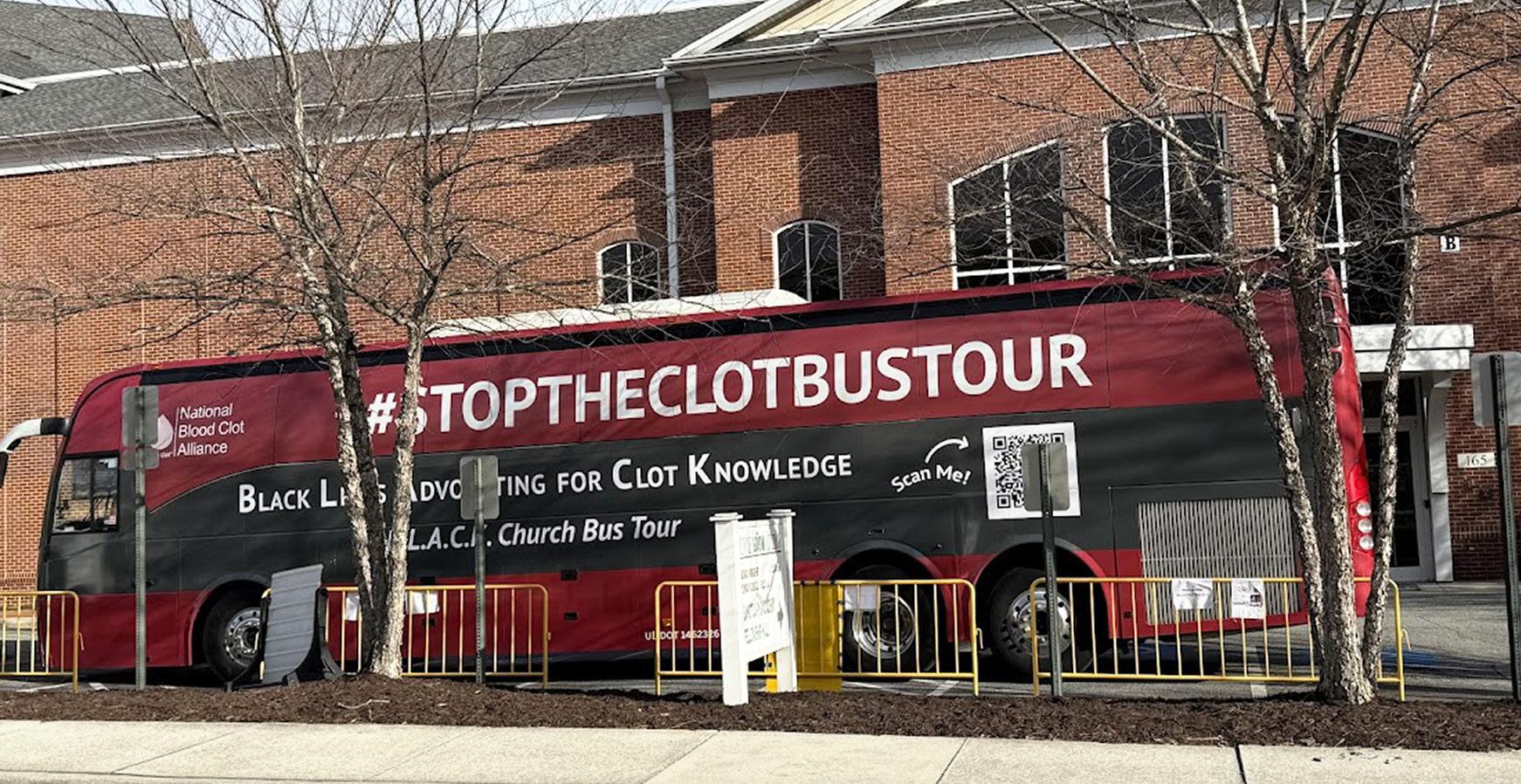
By Brenda Porter-Rockwell
Black people have up to a 60% higher chance of forming lifethreatening venous blood clots than white people, according to the National Blood Clot Alliance (NBCA). For Karen D. Adams, this is a statistic she learned about the hard way — through experience.
Almost 15 years ago, Adams nearly died after doctors found venus blood clots, also known as venous thromboembolisms (VTE), had formed in her lungs, nearly killing her. Today, Adams is thankful to be alive to spend more time with her husband and children. And she’s just as grateful she can share her story of survival and hope while raising awareness about blood clot prevention in the Black community.
To understand Adams’ journey, it’s important to have the facts she didn’t have when she was experiencing a major health crisis.
“I found out that I had several pulmonary embolisms and a saddle pulmonary embolism. In other words, I had blood clots in my lungs, and one big one that covered both lungs. This could have been prevented if only I had the knowledge of risk factors of blood clots,” Adams said.
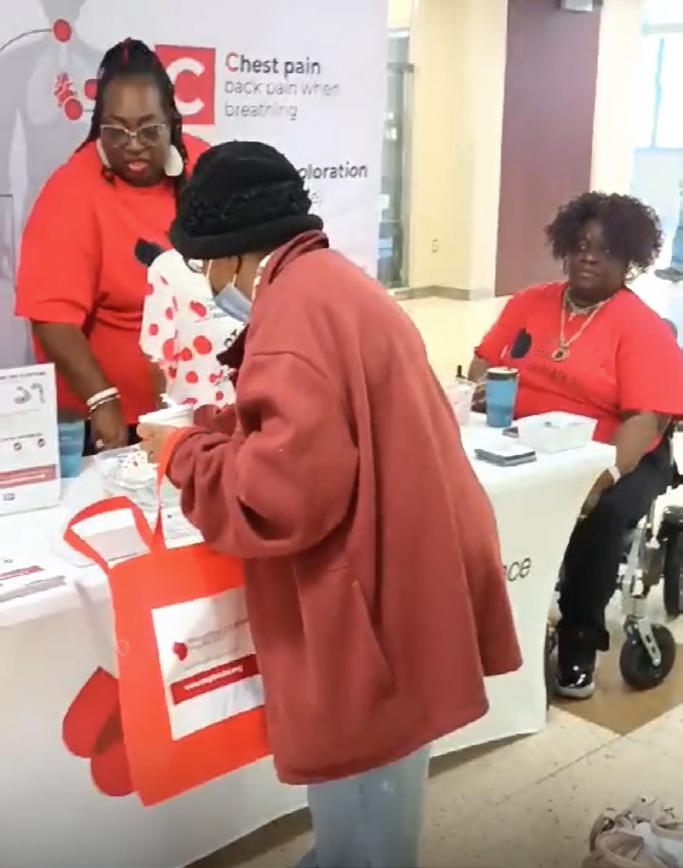
Black people have up to a 60% higher chance of forming lifethreatening blood clots than white people.
—The National Blood Clot Alliance
The VTE blood clot forms in a vein and can lead to deep vein thrombosis or, if the clot breaks loose, a pulmonary embolism. A saddle pulmonary embolism is a large blood clot or thrombus that “straddles” itself across the pulmonary artery and blocks blood flow to both lungs.
According to the Centers for Disease Control and Prevention, blood clots affect nearly 900,000 Americans annually, yet fewer than 6% of people understand the risks. The nation’s foremost health experts have found that every six minutes, someone in the U.S. dies from a blood clot, making clots a leading cause of preventable deaths associated with hospitalization, pregnancy and cancer.
What Adams didn’t know put her at a disadvantage when it came to getting the best possible care. She’s on a mission to make sure at-risk people know the facts and become better self-advocates.
“My ‘why’ is that I was diagnosed with blood clots in my lungs, when it should not have happened in the first place,” said Adams, recalling one of the most frightening moments in her life. “I had thoughts of my two daughters and loving husband who were by my side. I wanted to live to see my children grow up and to get back to doing the things I was destined for — to help people [and] my community,” she said.
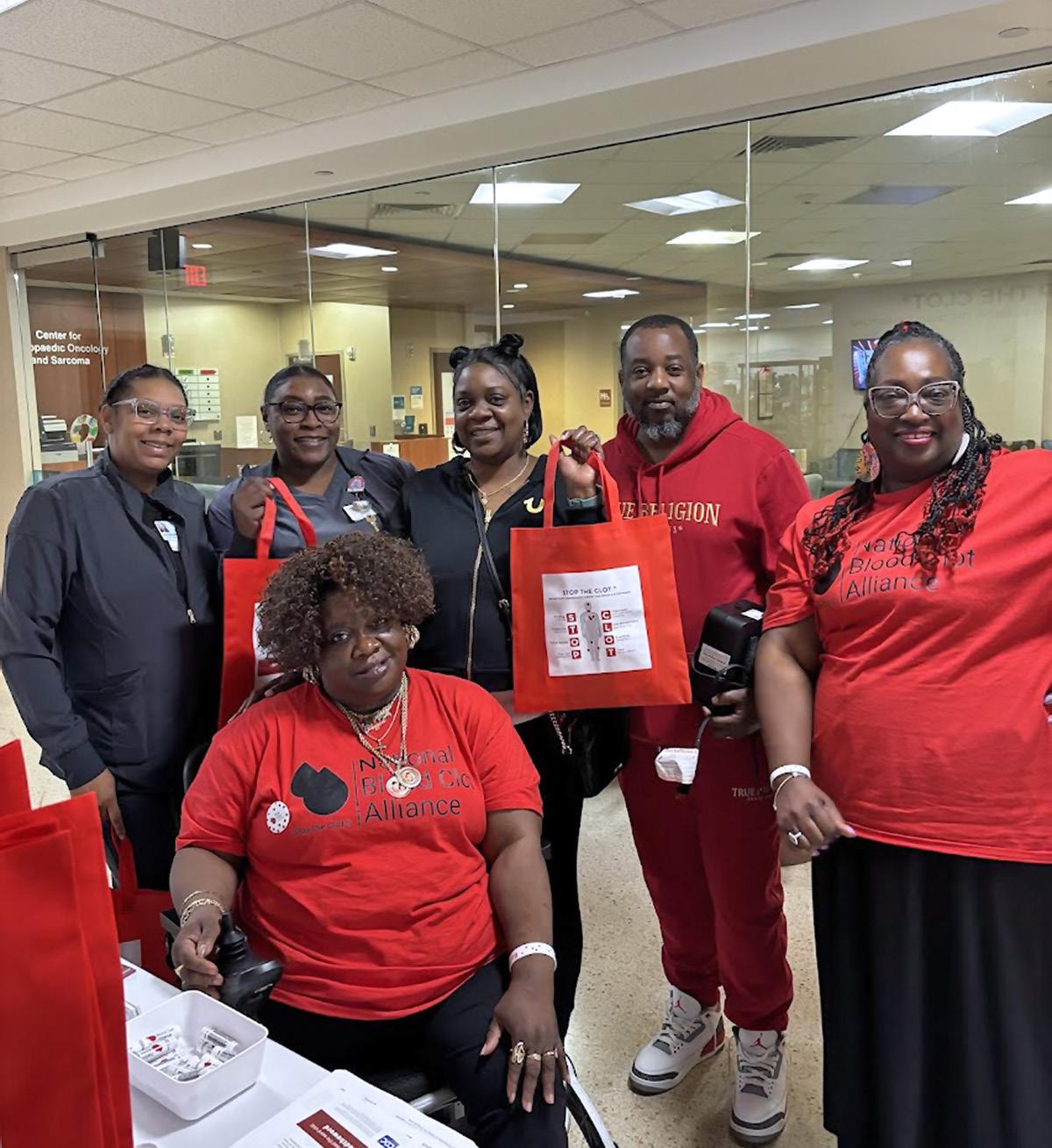
“My ‘why’ is that I was diagnosed with blood clots in my lungs, when it should not have happened in the first place.”
—Karen D. Adams
Adams’ story began in 2020 with a colon cancer diagnosis. She underwent outpatient chemotherapy treatment to fight the cancer but developed an adverse reaction to the drugs. She lost a lot of blood, which led to a multi-day hospital stay to receive transfusions. Adams said she lay in bed nearly motionless for several days — each passing moment increasing her risk for clots. Looking back on what she describes as her “near death situation,” Adams said she wishes she was more knowledgeable so she could better self-advocate.
Recovered, Adams is telling her ‘why’ through NBCA, a not-for-profit group that raises awareness about blood clot disorders and, preventing and treating health problems caused by blood clots and clotting disorders.
“[Since I was] a child, I’ve learned to give to the community and desired
Above: National Blood Clot Alliance Board Member and Thrombassador, Arshell BrooksHarris (sitting), and Karen D. Adams of the NBCA (far right) with others who stopped at the booth to learn more about blood clots.
Below: Karen D. Adams (center), Arshell Brooks Harris (sitting) and an early career medical professional who wanted to find out more information about blood clots.
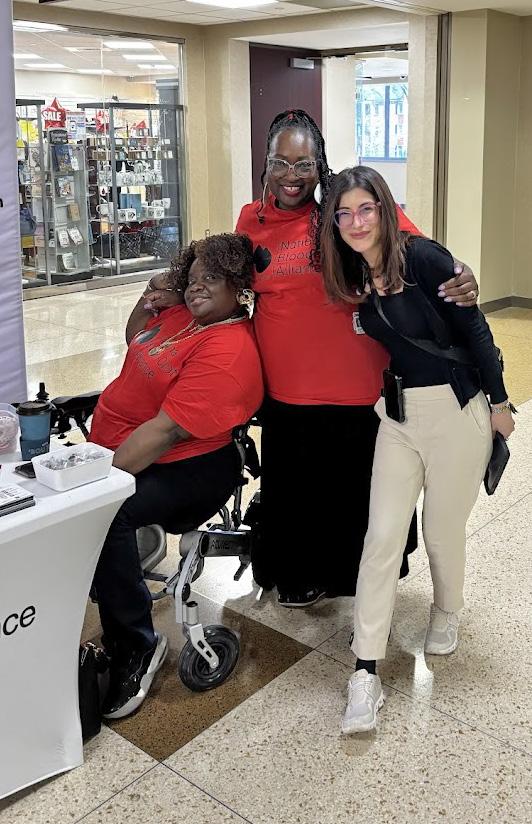
to create programs to empower all whom I encountered. So, advocacy is a part of who I am,” said Adams, who began her formal advocacy work around breast cancer awareness. A breast cancer survivor, and colon cancer survivor, Adams worked as a breast cancer patient support manager for the nonprofit SHARE Cancer Support group before joining NBCA, first as a volunteer and, most recently, as a paid employee.
It was through the SHARE communities’ connections that allowed Adams to seek out training and become a certified volunteer Community Thrombassador.
“I love that Karen takes initiative!” said Megan-Claire Chase, Adams’ friend and former supervisor at SHARE. Chase recalled how after a business restructuring of SHARE last year, Adams’ position there was eliminated. According to Chase, it was during a conference call later about SHARE and NBCA collaborating that Karen’s name came up — often. “I called her right up and said, ‘Girl you need to reach out to [NBCA] and see if there’s a role there for you.’ She did. And eventually something became available.”
In November 2024, Adams became NBCA’s Health Equity Programs Coordinator. “She has taken such a beautiful and unique path into doing this kind of work,” Chase said.
In her new role at NBCA, Adams helps coordinate partnerships with Black churches and healthcare professionals in several southern regional cities like Charlotte as part of the Black Lives Advocating for Clot Knowledge (B.L.A.C.K.) Church Bus Tour. The first-ever event kicked off in March in recognition of Blood Clot Awareness month.
NBCA’s church bus tour offered free screenings, expert speakers, clinical information and practical tools to help people recognize and prevent blood clots.
“We want to empower the Black community to know their bodies, not to ignore what their bodies are telling them,” Adams said. P














By Angel Brown
Financial literacy is a fundamental life skill, yet many students graduate without a basic understanding of money management. A recent survey by Junior Achievement (JA) and research firm Big Village highlights this growing concern: 68% of teens say they would take a financial literacy course if offered, yet only 31% have access to such classes in school.
As one of the nation’s largest nonprofits dedicated to preparing young people for financial and career success, Junior Achievement serves 4.4 million K-12 students annually across all 50 states. The organization equips students

“We are always looking for volunteers. Anyone interested can visit our website to explore ways to get involved.”
—Cord Bailey, associate director of communications for Junior Achievement of Central Carolinas
BY
68% of teens say they would take a financial literacy course if offered
Yet only 31% have access to such classes in school
4.4 million
The number of K-12 students Junior Achievement serves across all 50 states
Source: Junior Achievement
with practical skills in financial literacy, work readiness and entrepreneurship through interactive programs and realworld simulations.
With personal finance now a required course in North Carolina, JA is actively working to expand its reach and impact. Cord Bailey, associate director of communications for Junior Achievement of Central Carolinas, discussed how the organization is addressing the financial literacy gap locally.
Charlotte-Mecklenburg Schools (CMS), one of the largest school districts in the country, is a key player in the shift toward mandatory personal finance education. Junior Achievement is partnering with CMS to ensure students have access to effective financial literacy programs.
One of its main initiatives is JA Inspire, a virtual platform designed to teach students financial literacy, career awareness and job readiness. The CMS district has been piloting the program to provide students with real-world financial education and career preparation.
Junior Achievement Finance Park offers a real-world financial literacy simulation at its 20,000-square-foot facility in Camp North End. Students begin by completing 10 to 12 classroom lessons before participating in a financial decision-making simulation.
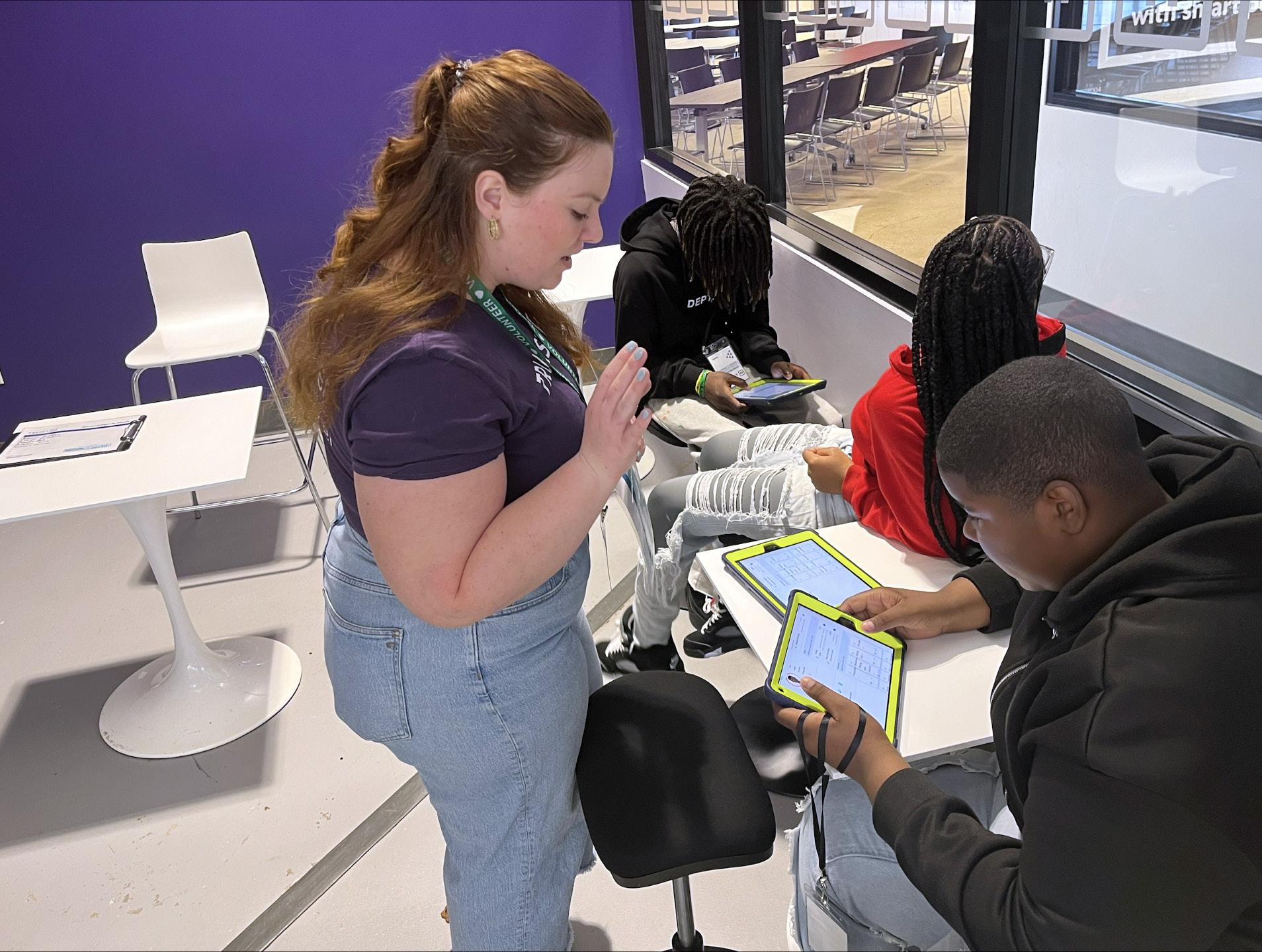
“Students take on real-life financial roles, such as a single or married adult with a specific job and salary,” said Cord Bailey, associate director of communications for Junior Achievement of Central Carolinas. “They must budget for expenses like transportation, groceries and childcare while making critical financial decisions.”
The immersive experience helps students connect classroom learning with real-world financial responsibilities and career planning. By seeing the direct impact of financial decisions, students gain a deeper understanding of economic realities.
To expand financial literacy education, JA works directly with educators to ensure they have the tools and support needed to integrate financial literacy into their classrooms.
“We hosted 30 high school teachers to introduce them to JA Inspire,” Bailey said. “They then shared it with colleagues and provided materials to help implement it in classrooms.”
JA also collaborates with CMS leadership and attends monthly meetings to assist with the rollout of personal finance education.
However, expansion hasn’t been without challenges. Initially, JA met with individual schools to assess their needs, but this process proved time-consuming. Now, the organization takes a top-down approach, working directly with school districts to identify needs and implement programs efficiently.
This approach has already yielded district-wide success. In Cabarrus County, JA initially provided its financial literacy curriculum to all fourth-grade students. This year, the program has expanded to include the entire eighth-grade student body across the district.
Expanding financial literacy education requires more than just school partnerships, it relies on community involvement. Volunteers, corporate sponsors, and donors play a crucial role in ensuring students have access to JA programs.
“We are always looking for volunteers,” said Bailey. “Anyone interested can
visit our website to explore ways to get involved.”
Since JA programs are heavily subsidized, financial support is also critical. For example, JA BizTown costs $120 per student, but thanks to corporate and community sponsorships, schools only pay $10-$15 per student.
“Even a $10 monthly donation can help support a student’s financial education for an entire year,” he said.
With shifting education policies and increasing state control over curriculum decisions, Junior Achievement stays proactive and adaptable.
At the national level, Junior Achievement USA closely monitors legislation and executive orders that impact financial education requirements. Locally, JA remains engaged with school districts, corporate partners, and community organizations to assess funding changes and adapt accordingly.
“Since we don’t heavily rely on school funding, we’re in a strong position,” Bailey said. “However, staying connected with our partners ensures we’re prepared for any policy shifts that could impact education funding.”
To gauge the effectiveness of its programs, JA conducts post-program evaluations to collect feedback from students and teachers.
“Students complete post-assignments to reflect on financial literacy concepts,” said Bailey. “We assess where they started versus what they learned through our programs.”
Junior Achievement is also exploring ways to track long-term impact, ensuring students continue to benefit from financial literacy education beyond the classroom.
Junior Achievement is leading the charge in providing financial education, but the gap between demand and access remains. Through state partnerships, innovative programs like JA Inspire, and hands-on experiences like JA Finance Park, JA is working to bridge that gap. However, expansion requires community involvement. Volunteers, corporate sponsors and donors can play a key role in increasing financial literacy access for students. P
By Anders J. Hare
In a world where home security often feels like a luxury, Jenell Jackson, the owner of Silver Shield Security, is redefining the industry with one goal in mind: making safety accessible to everyone.
With a deep understanding of financial struggles and a passion for her community, Jackson has built a security company that removes barriers like credit checks and longterm contracts, ensuring that security is not a privilege but a right.
Jackson’s journey as an entrepreneur began in the face of personal hardship. Silver Shield Security was initially founded in 1998 by her late husband, but when he passed away in 2011, she found herself stepping in to manage the company while also raising their three children, all of whom were in college at the time. At first, she simply sought to keep the business afloat. But soon, she recognized an opportunity to reshape the security industry based on her own experiences.
“I was struggling financially and had to make cuts,” Jackson said. “ADT told me that if I canceled, I’d be charged $700 — even though my bill was only $32. That made me realize if $32 was a lot for me, it was a lot for other people too.”
With this in mind, Jackson developed a new approach — eliminating credit checks and long-term contracts.
“I wanted to make sure that if people hit hard times, they wouldn’t be punished for it. Security isn’t a luxury — it’s a necessity,” she said.
Despite her innovative business model, Jackson said she faced significant challenges as a Black woman in a field traditionally dominated by white men. But Jackson refuses to be deterred. Instead of competing directly with the industry’s giants, she has focused on serving the customers they overlook— renters, apartment dwellers, and individuals without strong credit histories.
“I don’t want what the big companies want,” she said. “I want the people they turn down. I want to give security to those who need it most.”
Her efforts are paying off. Silver Shield Security has become a trusted name in the Charlotte area, with clients ranging from individual homeowners to businesses.
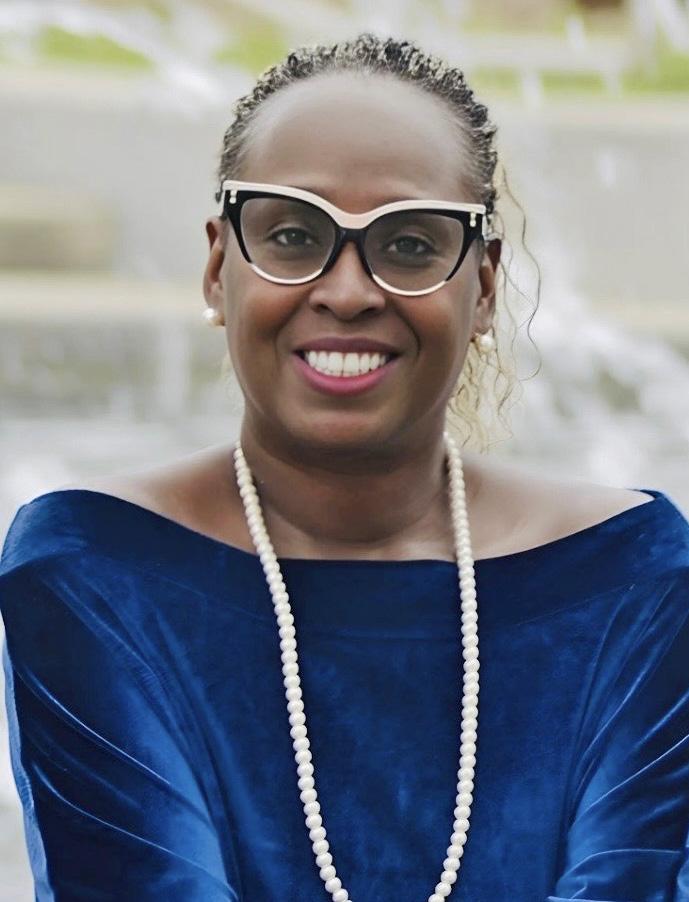
Balancing affordability with business sustainability is a challenge, but Jackson has developed a model that works.
“A basic doorbell camera system costs $49 a month,” she explained. “That’s reasonable for anyone with a job. If a customer doesn’t pay, the service turns off—just like a prepaid cell phone plan. But because of the relationships we build with our customers, most people want to keep their service and stay with us.”
Jackson acknowledges that the road to success has not been easy. Exposure remains
one of the biggest challenges for Silver Shield Security, as it lacks the massive marketing budgets of its competitors. Instead, the company relies heavily on word-of-mouth and community connections.
“The challenge is getting people to know we exist,” she said. “We don’t have 200 people knocking on doors or telemarketers making calls. But what we do have is an amazing reputation.”
In the past year, Silver Shield Security has achieved remarkable success, marked by a 10% increase in overall business performance. This growth stems from strategic advertising, workforce expansion, and enhanced brand exposure. Notably, Silver Shield Security made history as Charlotte’s Best Security Company in 2024, the only Black womanowned business to receive this honor.
For those looking to start their own business, Jackson’s advice is simple but powerful: don’t give up.
“As soon as you feel like quitting, that’s usually when your breakthrough is about to happen,” she said. “Stay focused. Learn to manage your money. And most importantly, believe in your vision, even when others don’t.”
With 13 years at the helm of Silver Shield Security, Jackson has not only built a thriving business but also transformed the way security is viewed in her community. By prioritizing people over profit, she is proving that safety should never be a privilege — it should be a right for all. P

By Christy Koury
Aging brings many changes, but maintaining cognitive function is one of the most important aspects of senior well-being. Staying sharp means actively engaging in activities that enhance memory, problem-solving skills and overall mental agility. Research suggests that physical activity, mental stimulation and social engagement are crucial to preserving brain health. Fortunately, seniors can strengthen their cognitive abilities by making intentional lifestyle choices.
Keeping the brain active is one of the most effective ways to maintain cognitive health. Activities such as crossword puzzles, Sudoku and chess help strengthen neural connections. Learning new skills—whether a new language, an instrument or a new craft —fosters mental agility.
Milton McGowian, Chief Operating Officer at The Sharon at SouthPark, a continuing care retirement community in SouthPark, said lifelong learning is invaluable. “We emphasize physical, mental and social activities to enhance overall well-being. Educational sessions, guest speakers and opportunities for intellectual engagement ensure that our residents stay informed and mentally stimulated,” he said.
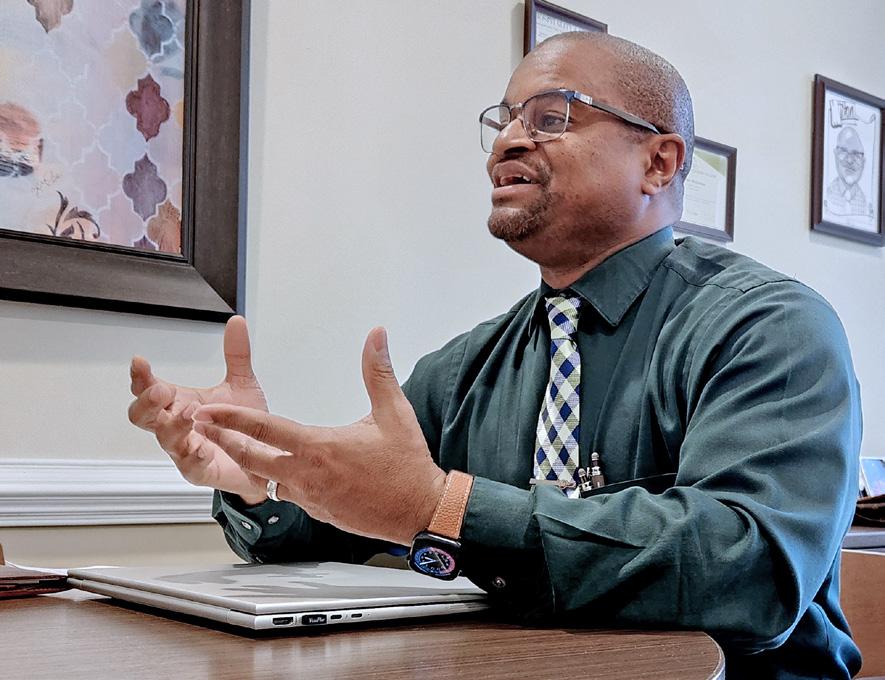

Social interaction is a critical component of cognitive health. Cheryl Pulliam, a resident and president of the Resident Council at The Sharon at SouthPark, emphasized the importance of staying socially engaged. “I’ve found that staying active and connected with others makes all the difference. Whether it’s a book club, an exercise class or just sharing a meal with friends, these interactions keep my mind sharp and my spirits high.”
Social dining plays a vital role in fostering connection and cognitive engagement.
“Dining together is more than just eating — it’s a social experience that strengthens relationships and overall well-being,” said McGowian.
“Our campus dining spaces encourage conversations that stimulate the mind and contribute to a sense of belonging. And, as we expand and connect more closely to our surrounding neighborhood, we draw our neighbors in to join us. That connection keeps everyone sharp.”
Physical health and cognitive function are closely linked. Regular exercise improves blood flow to the brain, which supports memory and problem-solving skills. Walking, swimming, yoga and strength training contribute to physical and cognitive wellbeing. Similarly, adequate sleep is essential for cognitive function.
Stress management is another key factor in staying sharp. Pulliam shares her approach to staying balanced: “I make it a priority to walk outside and exercise in our gym,” she said. She gave the following advice for seniors who want to stay sharp.
“If you move to a place like The Sharon at SouthPark, make friends. People want to be friends. And take advantage of the activities. If you’re a bridge player, get involved in that,” she said. “If you play Mahjong, get involved in that. And begin taking a walk every day. You don’t have to walk three miles every day. You can go at your own pace. But just start, and don’t stop.”
Staying sharp requires a holistic approach to health. The key is to embrace lifelong learning, remain socially connected and prioritize self-care — strategies that not only enhance cognitive function but also contribute to a higher quality of life.
“The people who thrive here (at The Sharon at SouthPark) best can’t wait to move in. They take advantage of everything and encourage other residents to join them,” McGowian said. “They’re engaging. They are not just living on our campus, renting an apartment. This is their lifestyle. This is them having excellent quality of life.” P
By Julie Bee

Entrepreneurs don’t have easy lives. The endless string of 60-hour work weeks, jam-packed with hustle and grind, can take its toll. But if you’re expecting that long-awaited summer vacation to “fix” your exhaustion, overwhelm, and lagging motivation, think again. You might come back from that week of ocean breezes or mountain air dreading the screech of the alarm clock more than ever.
A recent nationwide study from MyBioSource.com found that 41 percent of employed Americans report experiencing burnout after taking time off — and entrepreneurs are particularly at risk.
Expecting a vacation to stave off burnout isn’t realistic because time away doesn’t solve the problems that were causing your stress. Not only will those problems be waiting when you return, there may also be a whole new set of fires for you to put out. That can be enough to tip you over the edge into burnout.

To be clear, I’m pro-vacation — and yes, self-care can temporarily relieve some of the pressure. But if you don’t want burnout to take a serious toll on your business, finances, relationships, and health, you need to get to the root of what’s causing it.
That said, here are nine things to know about burnout (post-vacation or otherwise):
If there’s a light at the end of the tunnel, it’s stress. If you’re stuck in the dark, it’s burnout. How can a spread-thin entrepreneur distinguish stress from burnout? While stress can feel acute, it’s temporary. There’s often a deadline to look forward to: turning in a proposal, hiring a new employee to fill a vacancy, meeting a deadline, etc.
A recent nationwide study found that 41% of employed Americans report experiencing burnout after taking time off — and entrepreneurs are particularly at risk.
—MyBioSource.com
With burnout, you have little or no energy left to move forward. The passion you once felt for your business has turned to dread. When faced with a challenge, you may feel “stuck” or just plain indifferent. Instead of fulfilling you, your responsibilities feel like a burden— and you can’t see an end in sight to being in this state.
Know your red flags: You’re sleepdeprived, snappy and buying stock in dry shampoo. Most of us don’t go from “fine” to “running on fumes” overnight. There are usually red flags that indicate you’re headed toward burnout: actions, habits or behaviors that indicate you’re off-balance, stressed, and working unsustainably. For instance:
• You’re having trouble sleeping (or you’re sleeping too much).
• Your interactions with others have become more contentious.
• You’ve started to socially withdraw from friends and family.
• You’re finding it difficult to focus, make decisions, and/or come up with new ideas.
• Your self-care (e.g., grooming, nutrition, exercise) has slipped.
• You’re leaning harder into a coping mechanism (e.g., alcohol, medication).
• You’re clinging to the belief that if you can “just get through” a particular
deadline or challenge, everything will magically get better.
Be alert for trigger warnings: Scour your schedule for stressors. Triggers differ from red flags because they are external to you. They tend to be other people, places, or situations that cause you immediate stress, and can thus hasten burnout. The more you’re exposed to (or even think about) your triggers, the more your dread, anxiety, and overwhelm ratchet up. If you’re already noticing burnout red flags, avoid your triggers when possible!
Burnout triggers are often seemingly small things like hearing the phone ring or seeing a difficult client’s name appear in your inbox. They don’t even have to be work-related: A spouse’s bad mood or the sight of your overgrown lawn can also cause your stress to spike. It’s important to identify burnout triggers so you can eliminate, limit or deal with them.
Master your new mantra: “NO!” (for now). If you’re close to (or in the throes of) burnout, you must make space to deal with it. My top tip is to temporarily say no to new. Just for a while, stop chasing new opportunities, developing new ideas and forging new partnerships. Put your time, energy, and thought into strengthening your business (not expanding it) and alleviating your stress.
Run the “why” test to pinpoint what’s causing your symptoms. First, think of something that’s causing you stress (your burnout triggers are a good place to start) and list three thoughts or feelings you have about that stressor. Now ask “why”—three times—about each thought or feeling and answer as honestly as you can. Here’s an example with the feeling “frustrated”:
• Why am I frustrated? Because I have zero enjoyment in my business.
• Why do I have zero enjoyment at work? I’m always putting out fires and never get to the important work.
• Why am I always putting out fires? Because someone has to do it (aha!), and, if I’m honest, I don’t manage my time well (aha again!). I prioritize putting out fires over doing important work, because in the moment, they feel more urgent. Now that you’ve diagnosed your burnout, treat it! In the “frustration”
example above, you might carve out more time for important work by determining which of your daily tasks you can eliminate, delegate, or save until later. (Sounds simple—but when’s the last time you actually did this?) If the pile of minor emergencies that cropped up while you were on vacation tipped you over the edge from “stress” to “burnout,” you need to create a plan for more effectively covering your absence the next time you’re out. Then, focus on your personal recovery. Being burned out means that you’ve been depleted faster than you could replenish. Now that you’re on the other side of the urgent fire, you can focus on the personal toll it has taken. To start, identify an action or activity that will comfort and replenish you that can be accomplished in the next thirty days For example, you might go on a hike, book an appointment with your therapist, or splurge on a weighted blanket to help you sleep more soundly.
Put a prevention plan in place. Create thoughtful guardrails designed to keep you from traveling too far into your red-flag danger zone. One anti-burnout strategy I recommend is to define your ideal workweek.
I also recommend defining your personal life in a similar way. A good work-life harmony doesn’t just happen. You have to think about how you want to show up and what you want to accomplish outside of work.
(But make peace with the fact that burnout is like a bad penny (albeit one you can still spend wisely!). Burnout often isn’t a one-and-done event — you’ll probably encounter it several times throughout your career. Circumstances can appear out of nowhere that will take a wrecking ball to even the best-laid prevention plan. But not all burnout has to fully deplete you, set your business back, or impact your health.
Nearly every entrepreneur I know who has gone through burnout has taken away something valuable. My best advice for embracing burnout is to adopt the classic improv rule of “yes, and…” Own and name your circumstances (that’s the “yes” part). Then figure out how to make the most of it — or at least move on from it (that’s the “and” part).
If you’ve just returned from vacation and are feeling charred to a crisp (and not just from sunburn), attempting to power through your exhaustion and disengagement won’t be sustainable. The good news is, if you do the hard work of addressing your burnout now, you stand a much greater chance of actually enjoying your next vacation…and of climbing smoothly back into the saddle once it’s over. P
Jullie Bee, author of “Burned: How Business Owners Can Overcome Burnout and Fuel Success,” is a business owner burnout strategist. Find Bee at thejuliebee.com.

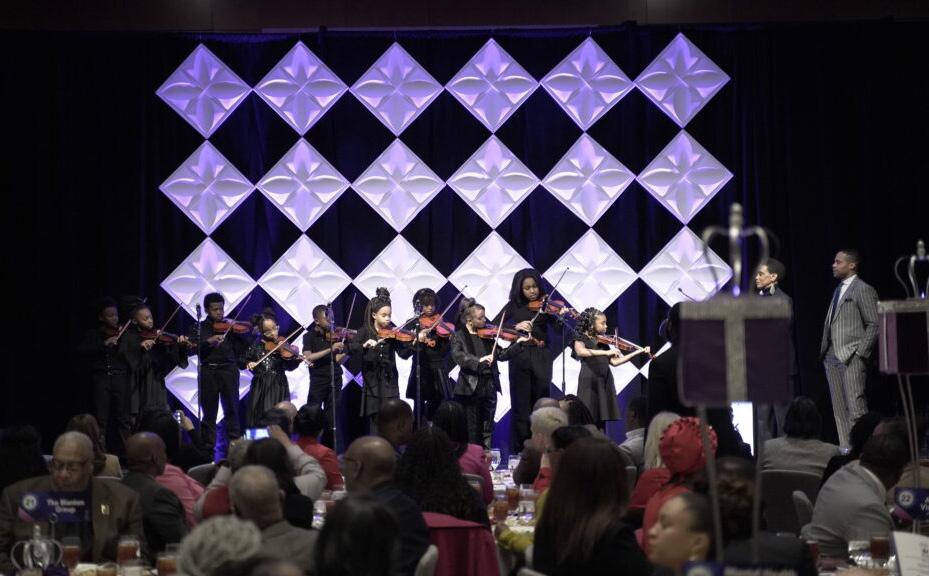
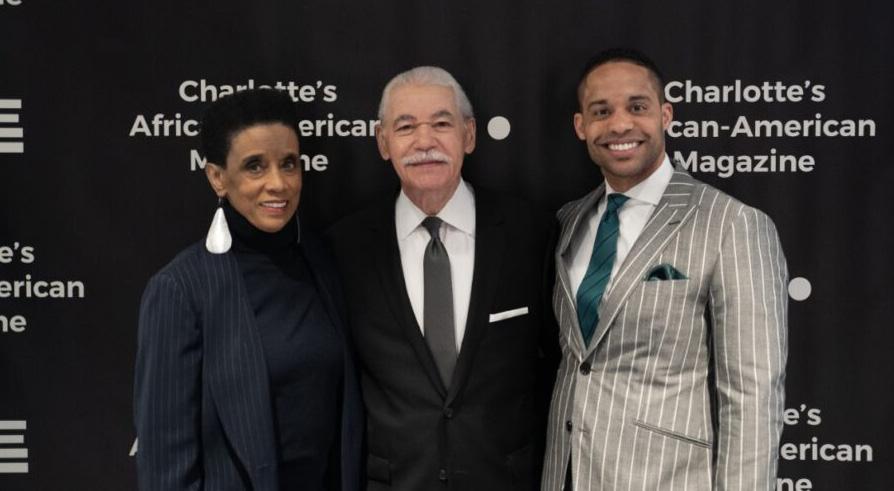
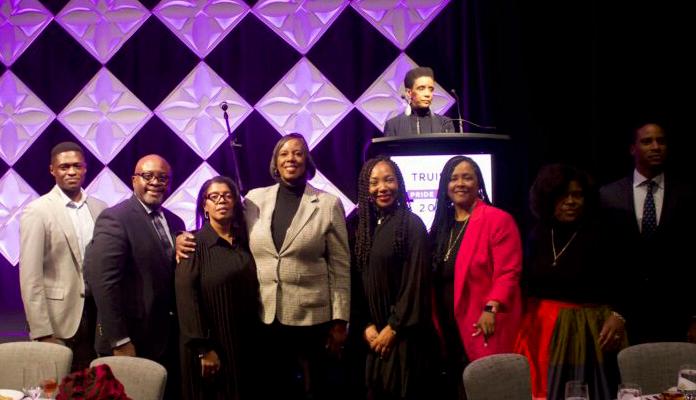
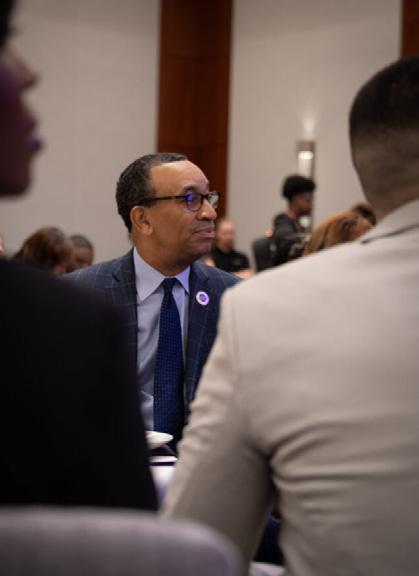
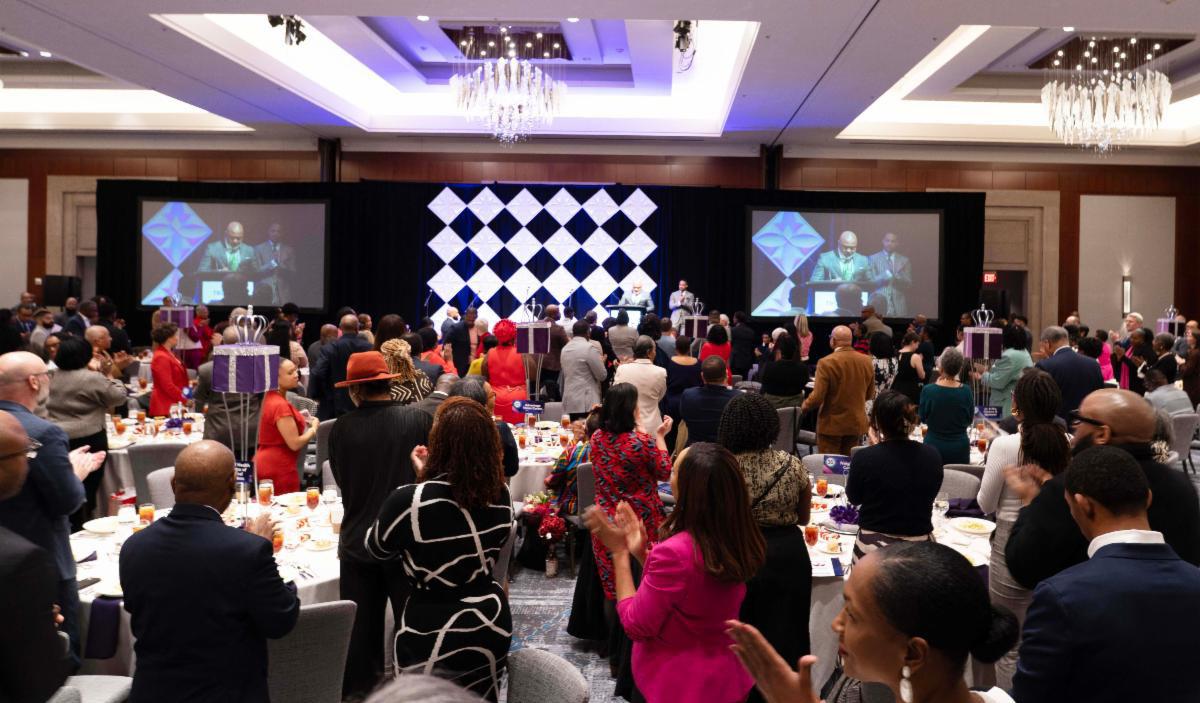
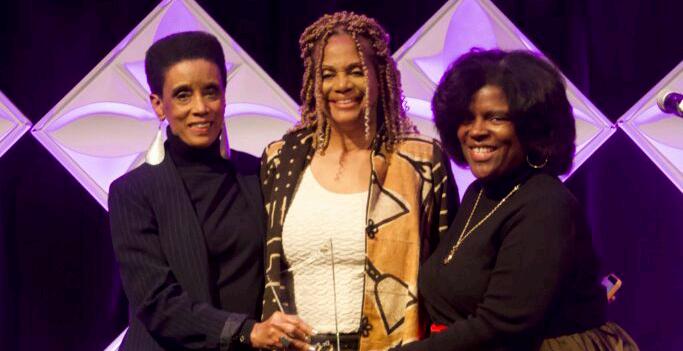
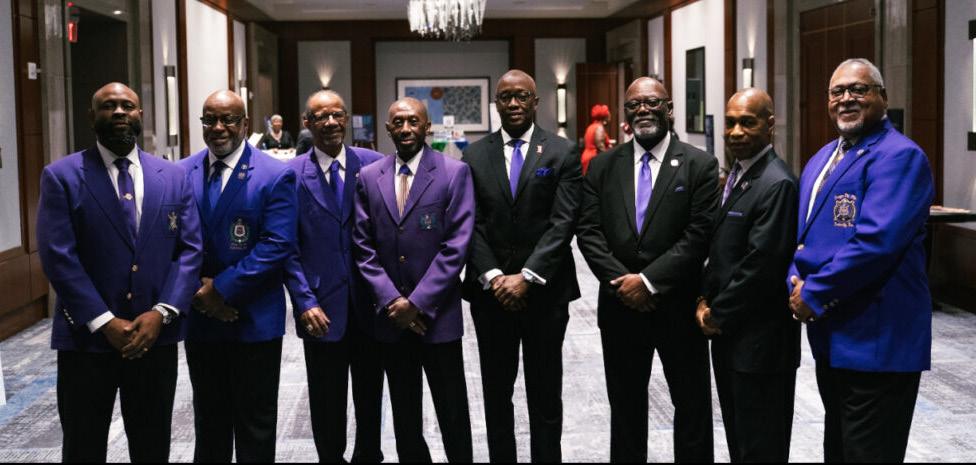
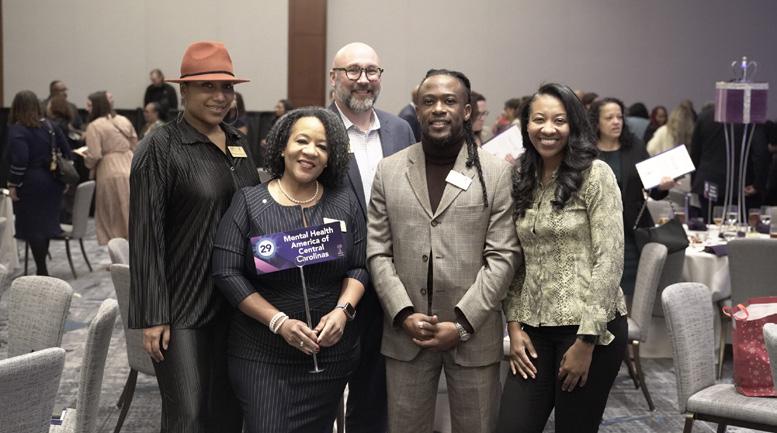
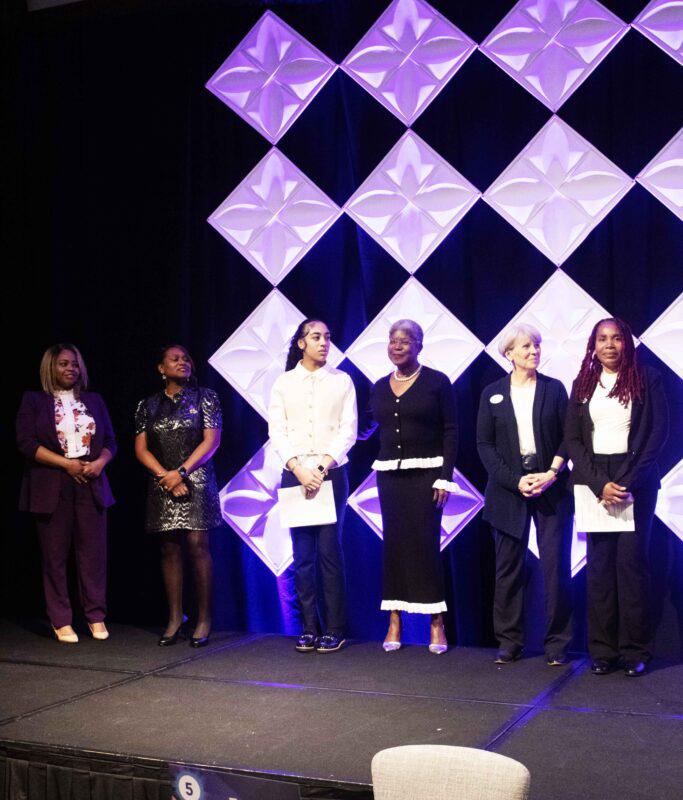
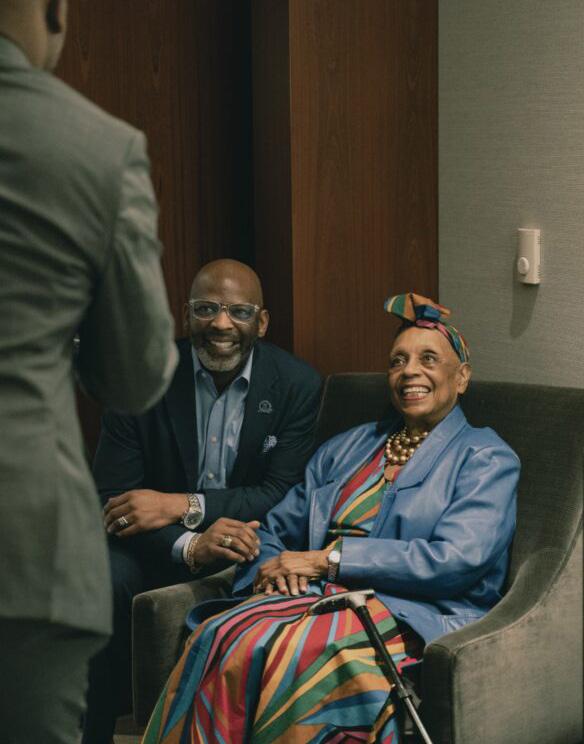
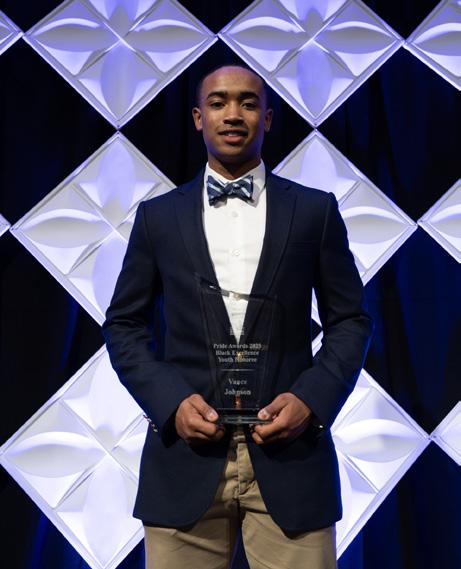
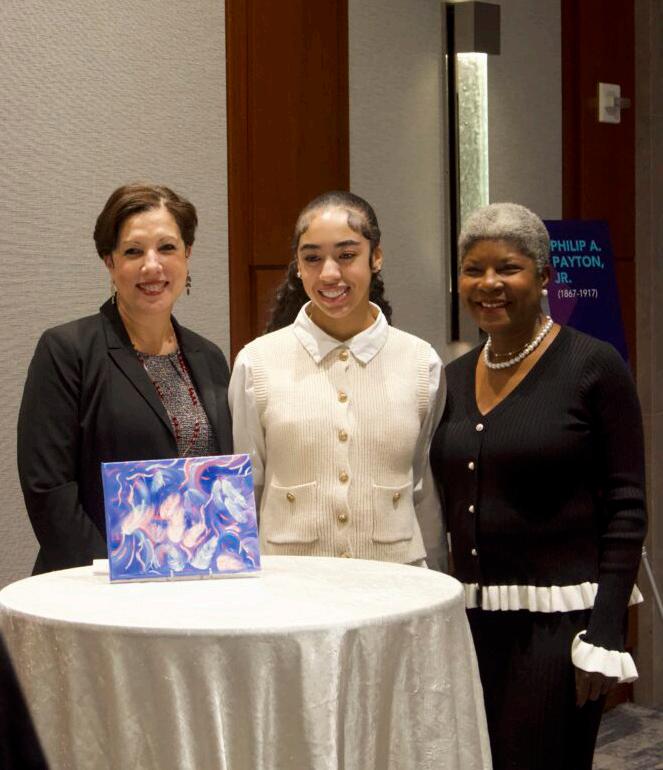
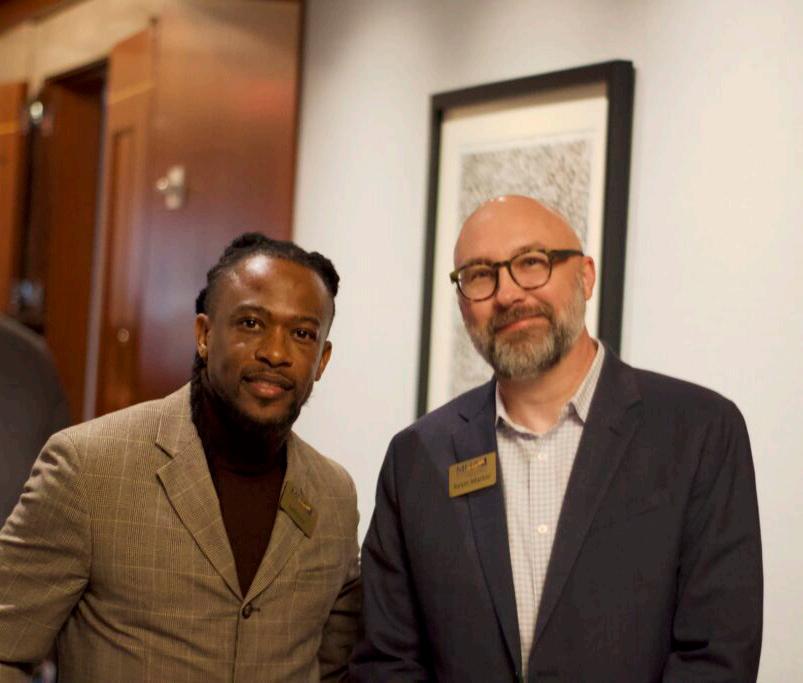
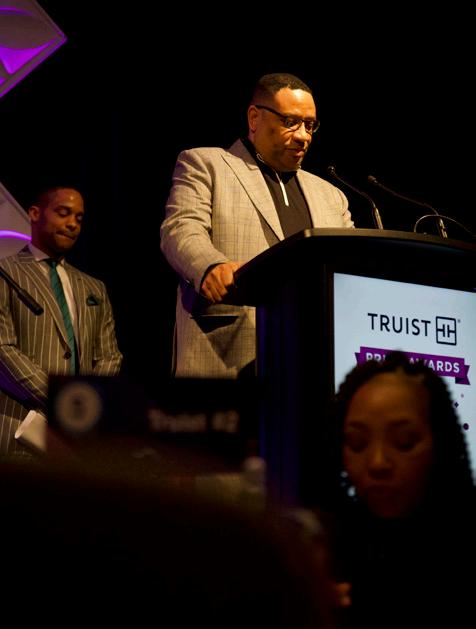
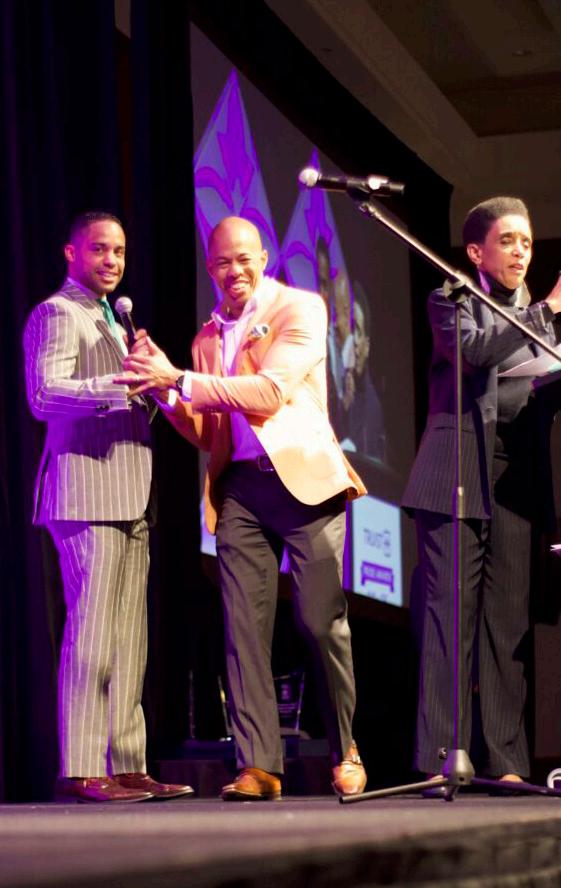
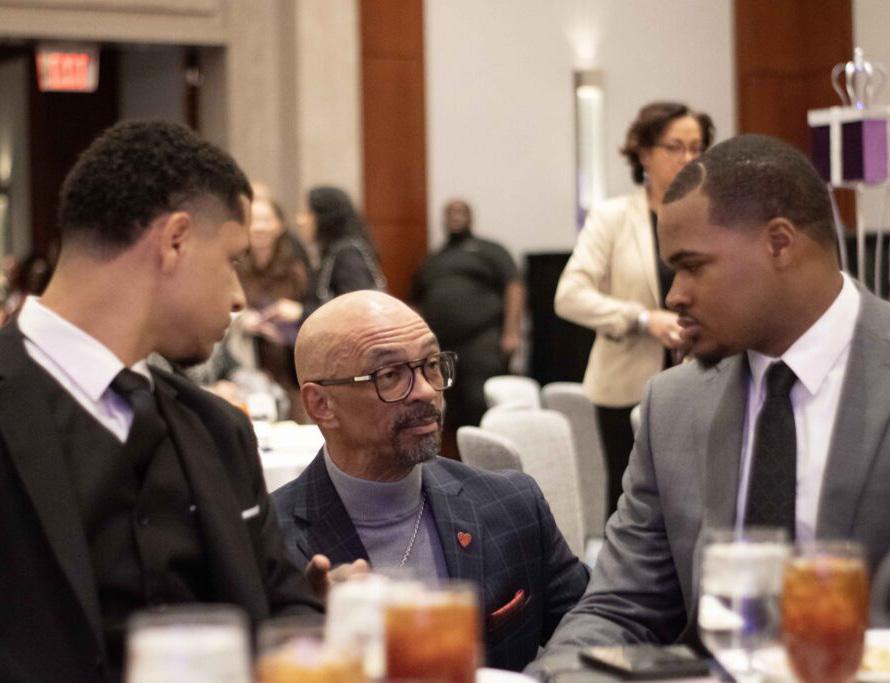
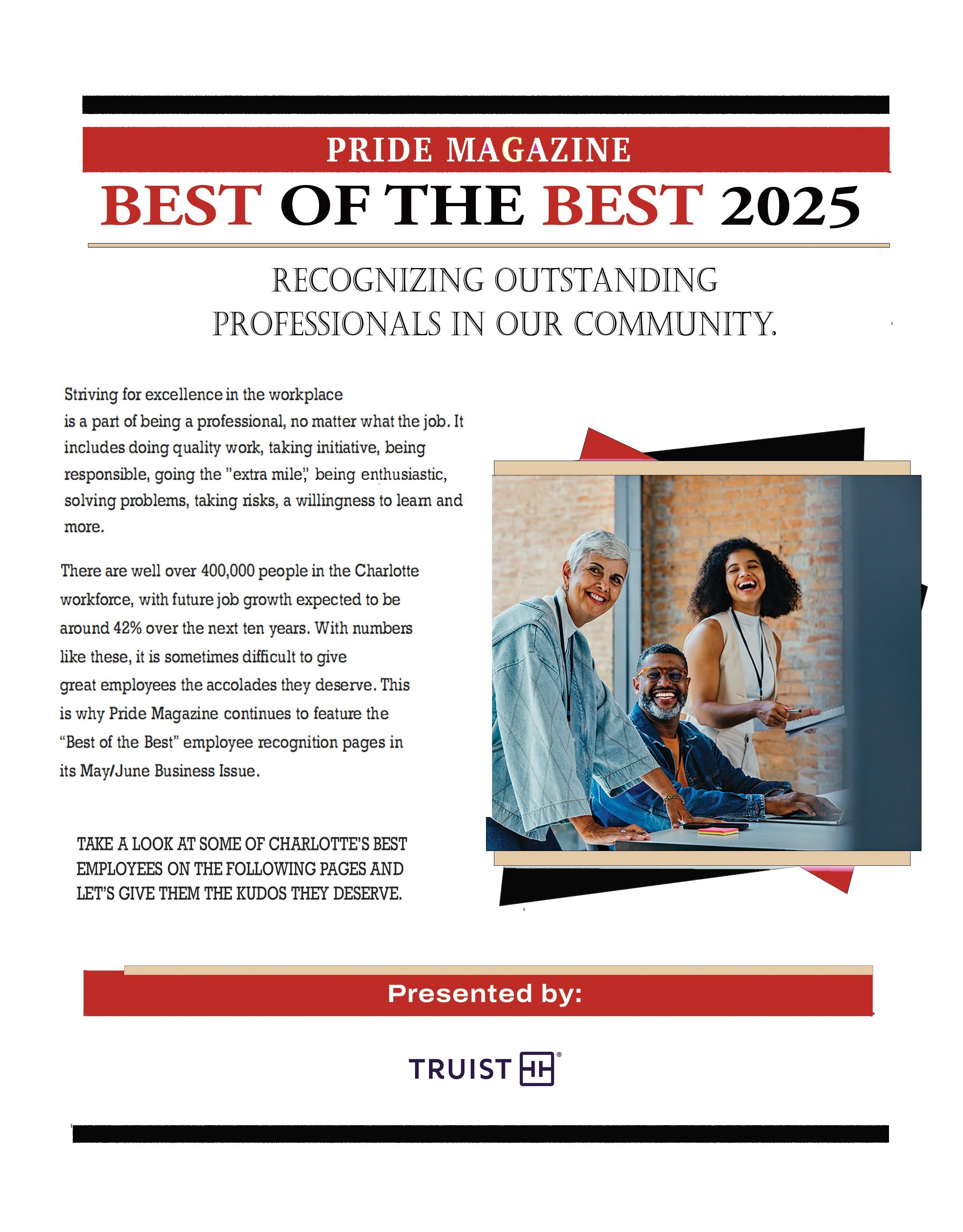
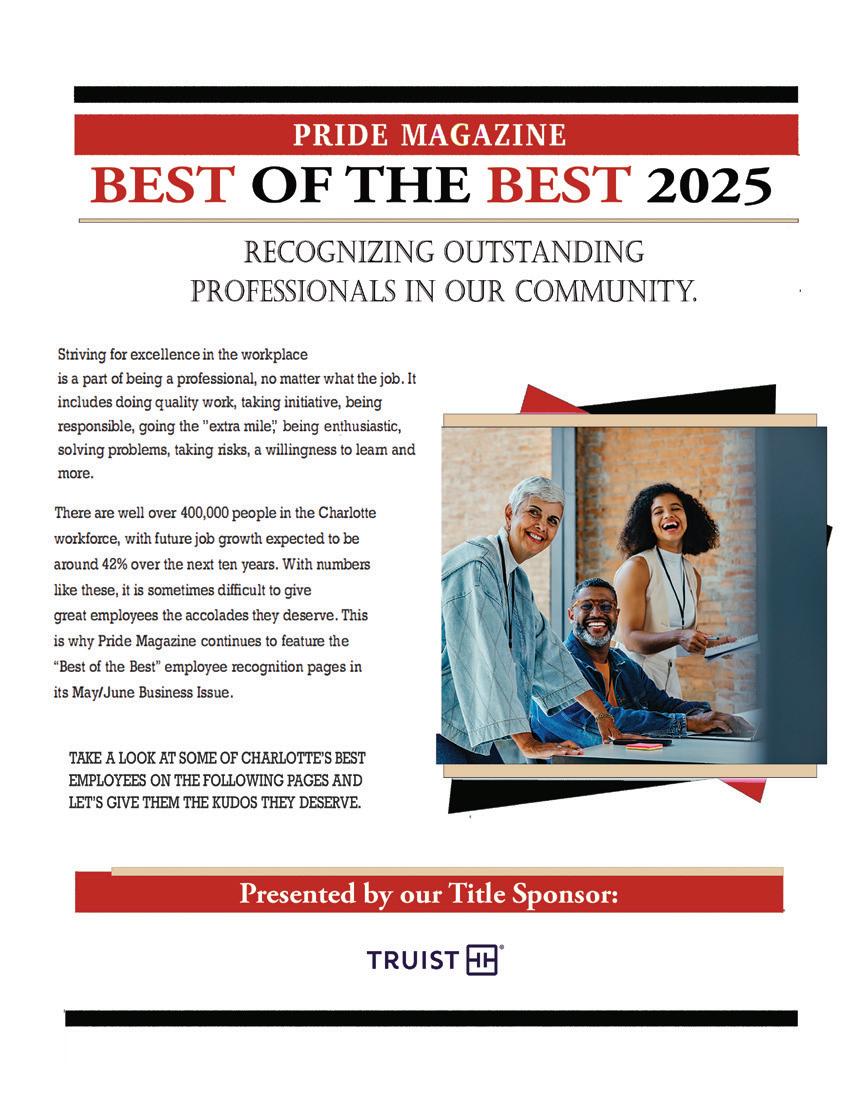


Lautaro is a dynamic Digital Innovation Director who drives digital transformation, implements cutting-edge technologies, and creates impactful strategies that enhance business performance
Lonnie is an experienced Media Director who excels in managing campaigns, optimizing budgets, and driving brand growth through innovative media planning and execution.
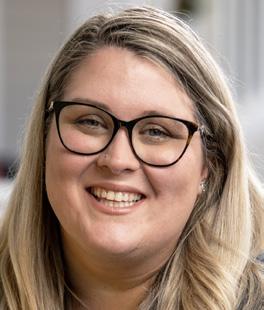
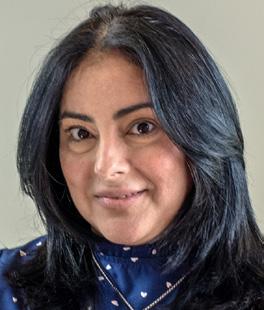
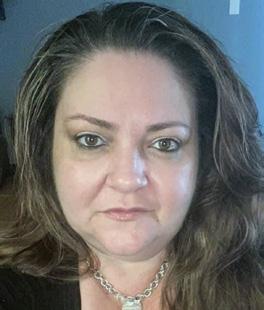
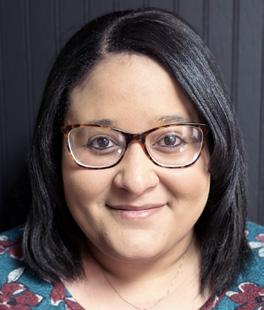
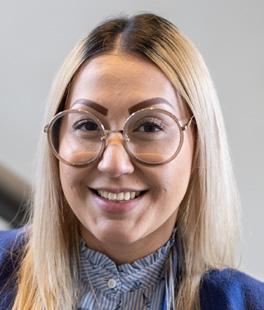





Brittany Cabuno
VP, Client Success
Brittany leads the state contracts and security services division, ensuring seamless operations and strategic growth. She drives key partnerships, enhances service delivery, and optimizes processes to meet industry demands.
Yanira Espada
Business Development Manager
Yanira identifies new opportunities and cultivates relationships to drive company growth. With a focus on partnerships, she expands market presence and strengthens client engagement.
Isabela “Bela” Figueiredo
Staffing Coordinator Manager & Payroll Specialist
Bela specializes in payroll management and ensures the right talent is matched with the right opportunities. She oversees workforce planning, hiring, and fosters strong relationships with clients and employees.
Alisa Garrett
Recruiting Manager
Alisa spearheads recruitment efforts to connect top talent with the right opportunities. She oversees the hiring process, develops strategic talent acquisition initiatives, and supports business growth.
Kimberly “Kimmie” Marquez
Recruiting Manager
Kimmie leads recruitment strategies to attract, hire, and retain top talent. She drives the fullcycle hiring process and builds strong candidate pipelines to meet workforce needs.
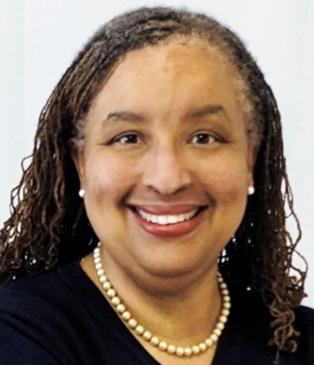
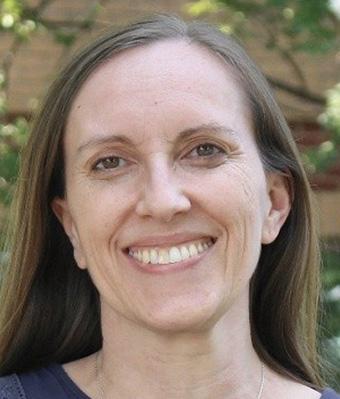
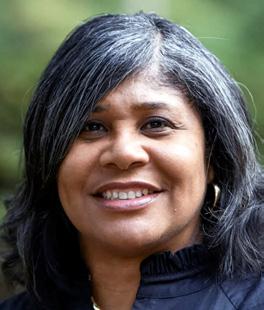
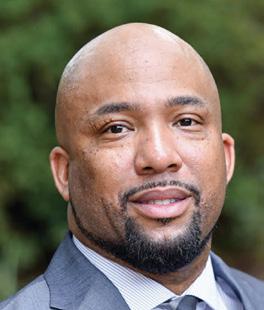
Paula Culp
Chief Administrative Officer (CAO)
Rebecca Palmer
Chief Operations Officer (COO)
Latin
Erica F. Moore

As CAO, Paula oversees Care Ring’s growing workforce, multi-million-dollar grant management, and building operations for its new location at Camp North End.




Celebrating 17 years of service at Care Ring, as COO, Rebecca spearheads its innovative program strategy, ensuring it remains responsive to evolving community health needs.
Director of Diversity, Equity, and Inclusion
Erica leads the diversity, equity, and inclusion strategic initiatives and programming for students, employees, and parents.
Isa M. Stokes
Director of Academic Transition and Student Success
Isa leads the strategic development and implementation of programs that support students new to independent schools and those navigating key academic transitions.




approach providing customized partnerships has led to quadrupling scholarships for underserved
resolving travelers’ concerns and solving complex
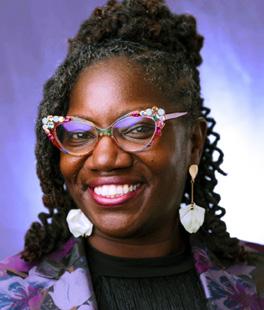
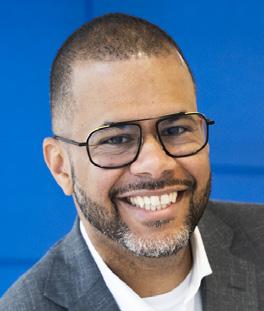







Tya Bolton
Director, Small Business & Entrepreneurship
Tya is a results-driven leader with 20+ years of entrepreneurship and strategic engagement experience. She cultivates impactful solutions for community members to achieve legacy wealth.
Nate Hogan
President
Nate has 25 years of experience as an entrepreneur, intrapreneur and senior executive with proven success in defining strategic vision and providing transformational leadership.
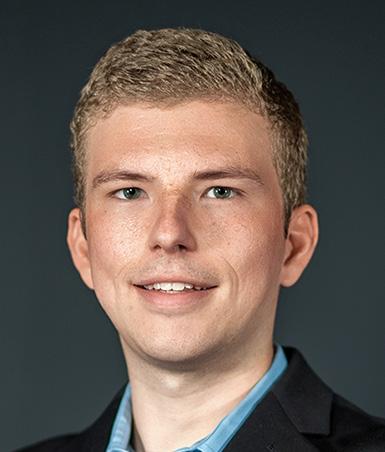
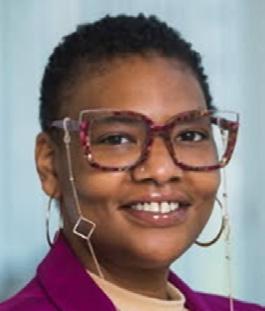
Matthew Davis
Sr. Strategy & Planning Manager
Matthew supports business unit alignment to enterprise strategy, focusing on operational efficiencies and growth opportunities. He leads the LGBTQ+ Employee Resource Group.
Shae Kinard
Sourcing Specialist
Shae is responsible for selecting the best suppliers for goods and services. She also leads the Businesswomen Network Employee Resource group.
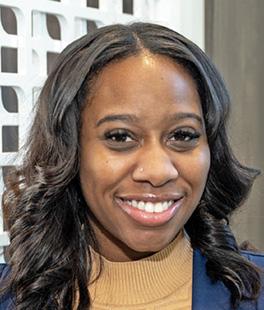
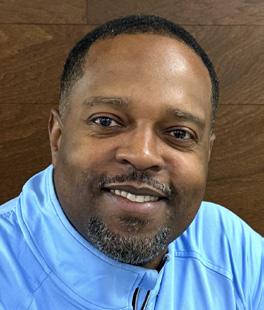
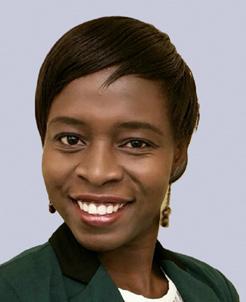
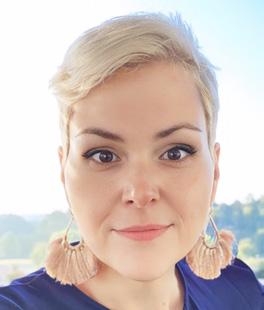
Shamika D. O’Neal
Assistant Vice President/ Denovo Financial Center Manager
Shamika oversees daily operations of the newest retail banking center, is an advocate for financial literacy, and provides mentorship for business owners throughout Charlotte.
Aquil Flythe
Manager, Talent Acquisition Operations
Aquil provides operational support for the Talent Acquisition and Inclusion & Organizational Engagement teams including support of employment marketing and efforts to attract and retain talent.
Rebecca Ries
Regional Support Specialist Charlotte West
Rebecca is a passionate leader that grows sales through talent development. She has a huge heart for the neighbors in every community we serve.
Summer Westbrook
Pricing Execution Manager
Summer manages pricing execution for 1,100+ stores across 10 states. She serves as Co-Chair of the Generations BRG, promoting Food Lion culture in the community.





With 21+ years of event management experience, Ervin coordinates corporate and nonprofit meetings and events at the Foundation, ensuring seamless execution and outstanding
Sara leads a team that helps individuals and families make a remarkable impact through charitable giving strategies, legacy planning and multi-generational family engagement and grantmaking.



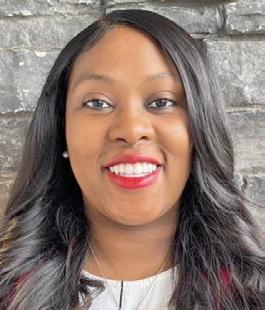
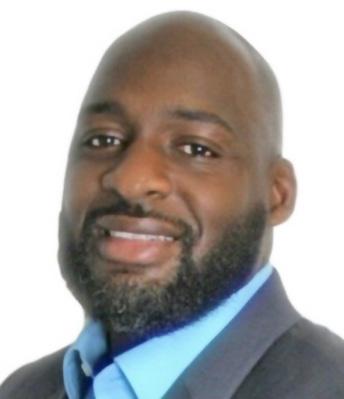
Danielle Brown, MSW, CCTP
Director of Social Work
Danielle oversees a team of social workers, develops and implements comprehensive programs, and ensures the delivery of quality services for justice-impacted individuals and families.
Maurice Collins
Executive Director
Maurice assumes the role of overseeing the leadership and administration of the organization including operational oversight, program expansion, personnel management, and leveraging data innovation.
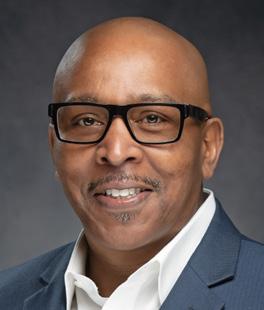
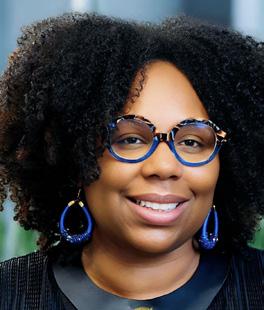
Bill Hall
Director, Transportation & Logistics
Bill oversees the Transportation and Logistics operations, consisting of 47 locations within the territory. He also leads material donation acquisition efforts for the Agency.


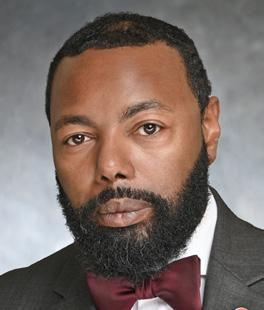

Shelley Tyler-Smith
Manager, Talent Development
Shelley leads the Learning and Organizational Development team. She manages internal leadership programs and creates development solutions that empower team members to achieve professional growth.
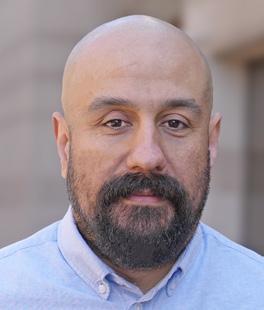
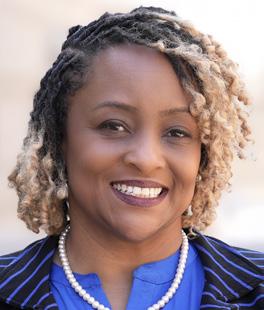
Lorenzo Hardy
SVP/Senior Commercial Banker
Kim McKenney
Branch Manager Kim leads her team with a strong focus on customer relationships and community engagement. She ensures customers receive personalized banking solutions that support financial growth.
Syed Ali Raza, MS, RD
WIC Director Ali oversees Mecklenburg County’s Women, Infants, & Children agency, providing strategic direction to ensure access for more than 25,000 families and enhance the program’s overall impact.
Elizabeth Joy Smith, MSN, BSN
Communicable Disease Control Director

Lorenzo works closely with small business owners to provide commercial lending and financial guidance. He helps them access the capital and resources needed to succeed.




Joy leads Mecklenburg’s team of public health nurses and investigators responsible for disease control, including monitoring and responding to disease outbreaks.




since September 2005. She supervises staff and assists with the day to day operations of the
Sgt. Lawrence has been employed with MCSO since June 2013. She supervises courthouse staff


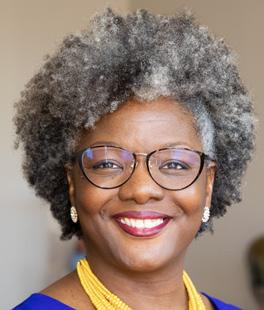
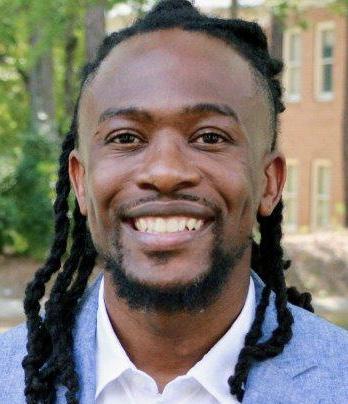
Ericka Ellis-Stewart
Deputy Director




Ericka oversees the organization’s day-to-day operations, driving strategic initiatives, and fostering partnerships with stakeholders. She focuses on efficient processes and effective service delivery to clients.
LaDonté K. Lee
Cabarrus Community Outreach Manager
LaDonté builds partnerships, engages communities, and leads initiatives to raise mental health awareness, expand resources, and foster connections for lasting impact in Cabarrus County.
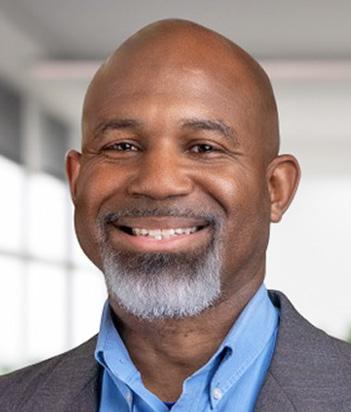
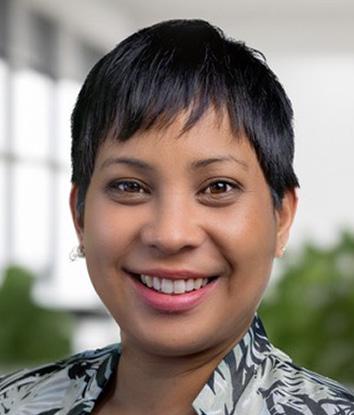
Frank A. Little
AIA, PMP, Partner
Frank, a primary leader for education projects at Neighboring Concepts, strives to improve communities for the next generation through designing innovative and safer learning environments.
Cathy Morrison
FAIA, LEED, AP BD+C, NOMA, NCARB, Partner, CEO
As CEO, as well as the primary leader for Neighboring Concepts healthcare projects, Cathy ensures both the work and staff embody community transformation through architecture.
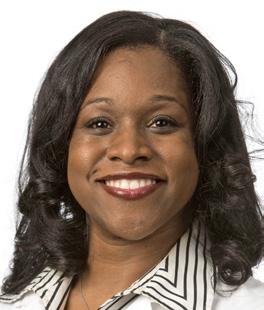
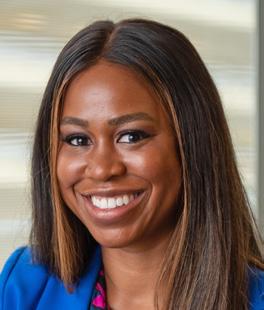
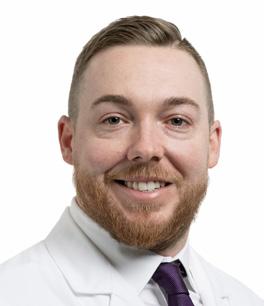
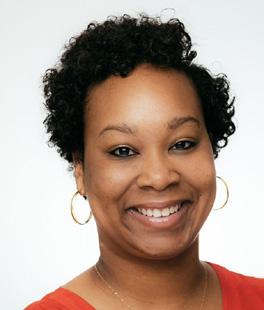

and staff.
Ray Feaster, MD
Novant Health Office of Health Equity, Charlotte Medical Director
As the Novant Health physician liaison, Dr. Feaster partners with community leaders to help drive equitable access to quality care and positive health outcomes.
Kristen M. Howard
Vice President, Corporate Affairs
Kristen leads community engagement and investment, sports partnerships, non-profit board service, and volunteerism across the Carolinas. She specializes in change management and community-engaged organizational design.
Cramer McCullen, MD, MPH, AAHIVS
Lead Clinician & Medical Director of LGBTQ+ Health Services
Dr. Cramer is a Family Medicine physician at Novant Health Midtown Family Medicine. He specializes in PrEP/PEP, HIV primary care and affirming services.
Charnele Brintley
Senior Consultant Advisory Services, Women & Infants
Charnele collaborates with hospitals and healthcare systems to identify drivers of maternal/infant mortality and morbidity, implementing quality and safety improvement solutions leveraging data analysis.




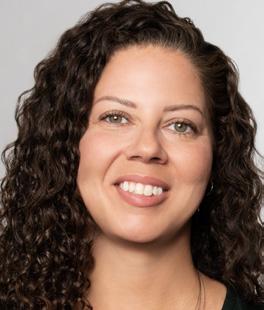


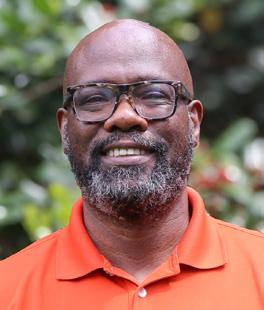
Senior Director, Organizational Development
Madeline leads a team that designs talent and learning strategies, fosters a people first culture, and partners with the business to align performance management practices.
Senior Data Integration Engineer

Antuan is a member of the Enterprise Data Acquisition team that acquires and integrates member data to tell a complete patient story.

Stephanie Marshall
Director of Library Services




Stephanie, an experienced law librarian, manages services including research training and support, continuing legal education, and development of the firm’s print, digital and database research tools.
Greg Tomlinson
Training & Development Coordinator
Greg communicates with managers to identify training needs, maps out development plans for departments and individuals, and manages, designs, coordinates and conducts all training programs.
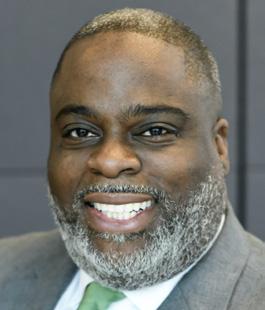
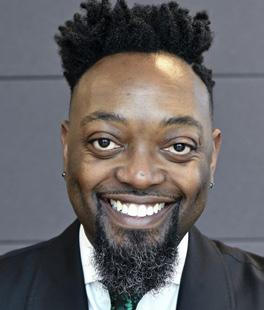
James Clayton
Senior Director of Diversity & Community Engagement
James fosters trade partnerships and community engagement, ensuring projects are inclusive, successful, and aligned with the company’s commitment to diversity in construction.
Roosevelt Maske
Superintendent
Roosevelt oversees daily site operations, ensuring projects meet schedules, budgets, and quality standards while prioritizing safety, collaboration, and excellence in construction.
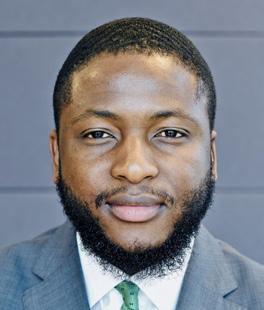
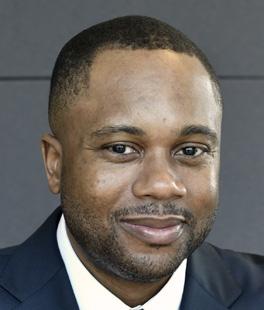
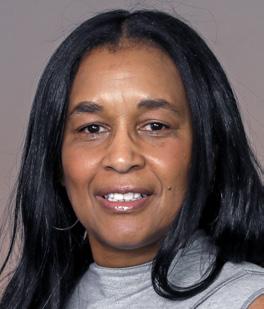
Mikel Brown
VP, Store Manager, Carmel Road
Ryan Jor El Coleman
VP, Store Manager, Beatties Ford Road
Frank Onyeajam

Mikel’s team supports the checking, savings, and credit needs of consumers and small businesses, along with connecting with community members and organizations.




Ryan’s team supports the checking, savings, and credit needs of consumers and small businesses, along with connecting with community members and organizations.
Sr. Business Banking Relationship Manager
Frank creates 5-10 years+ plans with businesses. He provides tailored financial solutions and advisory services to meet and exceed the financial goals of business owners.
Sheldon Osborne
Vice President and Senior Relationship Manager
Sheldon provides support and expertise for all commercial lending needs in the Piedmont Region.
Monica Johnson
Chief of Staff
Monica provides essential support to faculty, students, and parents. Her leadership and dedication make a daily impact on our school community.




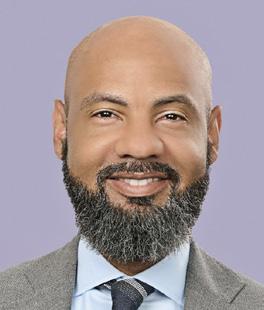
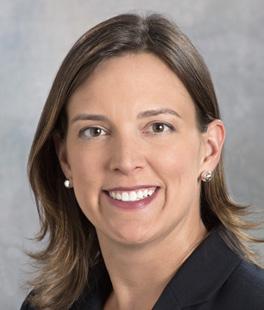

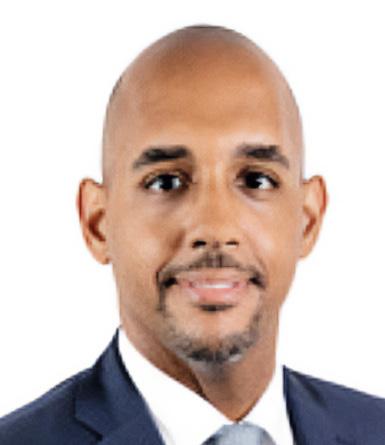
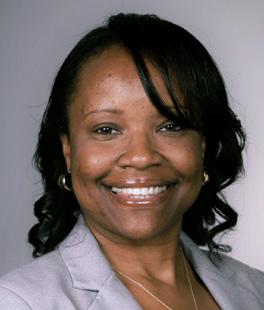
Temekia ensures a safe, efficient environment while fostering community, supporting Trinity’s mission and values, and enriching chapel with her

Mark oversees a team of mortgage loan officers in the Charlotte and Western North Carolina regions, specializing in mortgage financing for purchasing and refinancing residential real estate.

Rhondale Haywood

Premier Banking Executive


Rhondale leads a team of financial professionals who offer personalized advice through listening, planning, and collaborating with premier banking clients to achieve their goals.
Sara Manning
SVP, Head of Operations at Truist Foundation
Sara oversees special programs including investments, scholarships, matching gifts, disaster relief, teammate relief fund, and the Truist Foundation Inspire Awards.
Lenin Spears
VP, Relationship Manager
With over a decade of Commercial Banking experience, Lenin provides tailored solutions to businesses in Charlotte, focusing on growth, cash flow optimization, and risk mitigation.
Joslyn Urena
SVP, Consumer and Small Business Banking
Strategic Execution Manager
Joslyn identifies strategic growth opportunities for Truist’s Consumer Bank while helping the organization optimize and improve its business strategy and processes.
Loretta Williamson
SVP, Director of Inclusive Lending and Homeownership Equity
Loretta develops growth strategies addressing shifting demographics in homeownership, using data analysis to promote inclusive lending across the socioeconomic spectrum.

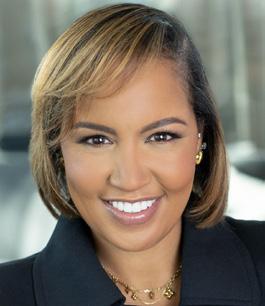
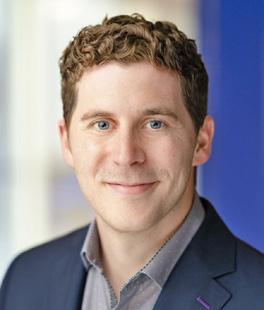
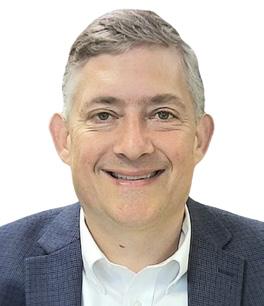

Shawn Lewis-Costen
Executive Vice President, Chief Learning Officer (CLO)
Head of Learning and Development, Shawn is responsible for employee learning and ongoing development, which encompasses everything from new hires to leadership development for leaders.
John O’Neill
Business Banking Relationship Manager
John is active in the Carolinas working with businesses with revenues up to $50MM, offering lending, deposit, treasury management, merchant services and credit card solutions.
Rick Rothacker
Communications Manager
Rick leads external communications that support the Business Banking client segment. He highlights the work of bankers to expand access to more business owners and communities.
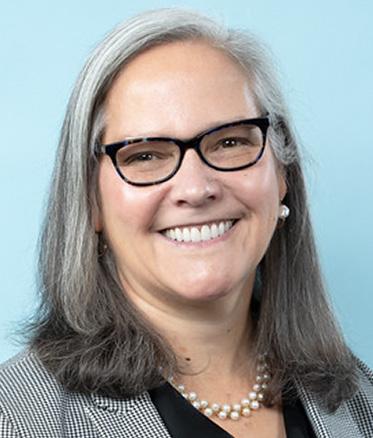
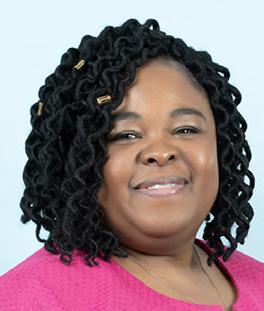
Kathryn Firmin-Sellers
President & CEO
Kathryn leads United Way’s work in the community to advance racial equity, improve economic mobility and ultimately lift children and families out of poverty.
Kendra Green
Chief Administrative Officer

Kendra celebrates 30 years with United Way and oversees all operations within the finance department, including donations, donor designations, accounts receivable and more.




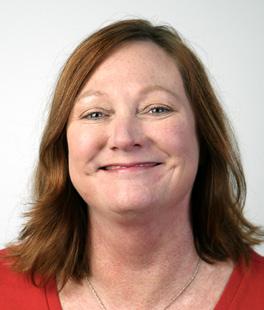
Shareef directs daily news coverage across all platforms, overseeing WCNC’s storytelling,
Carey, an experienced editor and photographer, creates engaging news content across platforms and manages live shots for field reporters.
Jill Hipskind Sales Coordinator


Jill supports account executives by managing client accounts, executing campaigns, and assisting with advertising solutions and customer service.









Compiled by John Burton Jr.

The University of North Carolina at Charlotte has achieved the prestigious Research 1 (R1) status from the Carnegie Classification of Institutions of Higher Education. R1 is the highest recognition for doctoral universities. The prestigious classification indicates “very high research activity” and affirms UNC Charlotte as an elite research institution. With this designation, Charlotte joins the University of North Carolina at Chapel Hill, North Carolina State University and Duke University as the only R1 universities in North Carolina.
“Achieving R1 status reflects our commitment to establish Charlotte as a top-tier research institution,” said UNCC Chancellor Sharon Gaber. “This milestone is the result of the dedication and innovation of our faculty and staff, whose work attracts top talent and critical support. It also fuels economic growth with research investments driving a fivefold return, strengthening the regional workforce and contributing to Charlotte’s economy. This achievement is a win not only for our university but for our region.”
To achieve R1 status, universities must spend at least $50 million annually on research and development and award at least 70 research doctorates per year. UNC Charlotte surpasses the criteria, with $92 million in research expenditures in fiscal year 2023 and an average of 160 doctoral degrees awarded annually. This reflects UNC Charlotte’s significant progress in research, including its rapid rise among research universities, top rankings in specific fields and strong performance in innovation and patent activity.
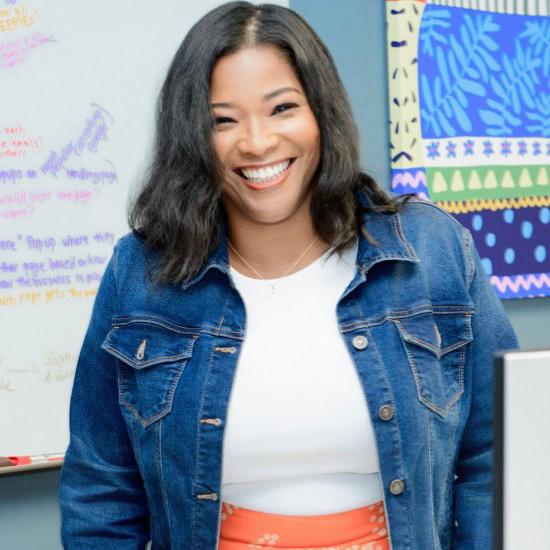
A new program is working to turn African American women into successful entrepreneurs. Luna Launchpad began its secondever cohort, which started in March. The 10-week program aims to teach Black women the dynamics of running their own small businesses.
Luna Launchpad is a business accelerator that celebrates the resilience and determination of Black women. This innovative program offers a blend of in-person and remote learning sessions twice a week, along with mentorship and community to nurture the growth of women-owned businesses. Alumni leave the program with clear plans to confidently transition their side hustles into full-time endeavors that bring the financial security and freedom they have always wanted.
Participants learn about business functions that include marketing, finance, legal structure and more. The program is funded through a $50,000 grant from NC Idea, a foundation that helps North Carolinians make their entrepreneurial dreams a reality.
“Luna Launchpad was designed to help Black women who are leaving Corporate America or want to. Maybe they have a side gig that they’re running and can’t figure out, like what the right formula is to make that leap,” said Luna Launchpad founder Nikita Allen.
Charlotte has seen a significant increase in its position as a leading U.S. city for Blackowned businesses. It jumped to 7.1% in 2022, up from 5.3% the previous year. This growth has positioned Charlotte as the 12th highest among the country’s 50 largest metro areas. Fayetteville follows Atlanta, securing second place with 10.1% of businesses owned by Black entrepreneurs. Nationally, Black-owned businesses have grown to 3.3% in 2022, an increase from
2.7%. Black Americans represent 13.7% of the population and own a smaller proportion of U.S. businesses with employees.
In comparison, white Americans are 75.3% of the population and own 82% of businesses with employees, which highlights existing disparities in business ownership. Black women are at the forefront of this growth, owning 39.1% of Black-owned businesses, with healthcare and social support being the most common sectors.
Nationwide, Black-owned businesses experienced a 22.2% increase in a single year. Young Black women, particularly those who started businesses in 2021, are significant contributors to this growth. A study by LendingTree suggests that side businesses drive this trend, with many owners starting small while assisting others in establishing their own businesses. Access to loans and business resources remains a challenge. For this reason, some organizations are reducing their support programs. P


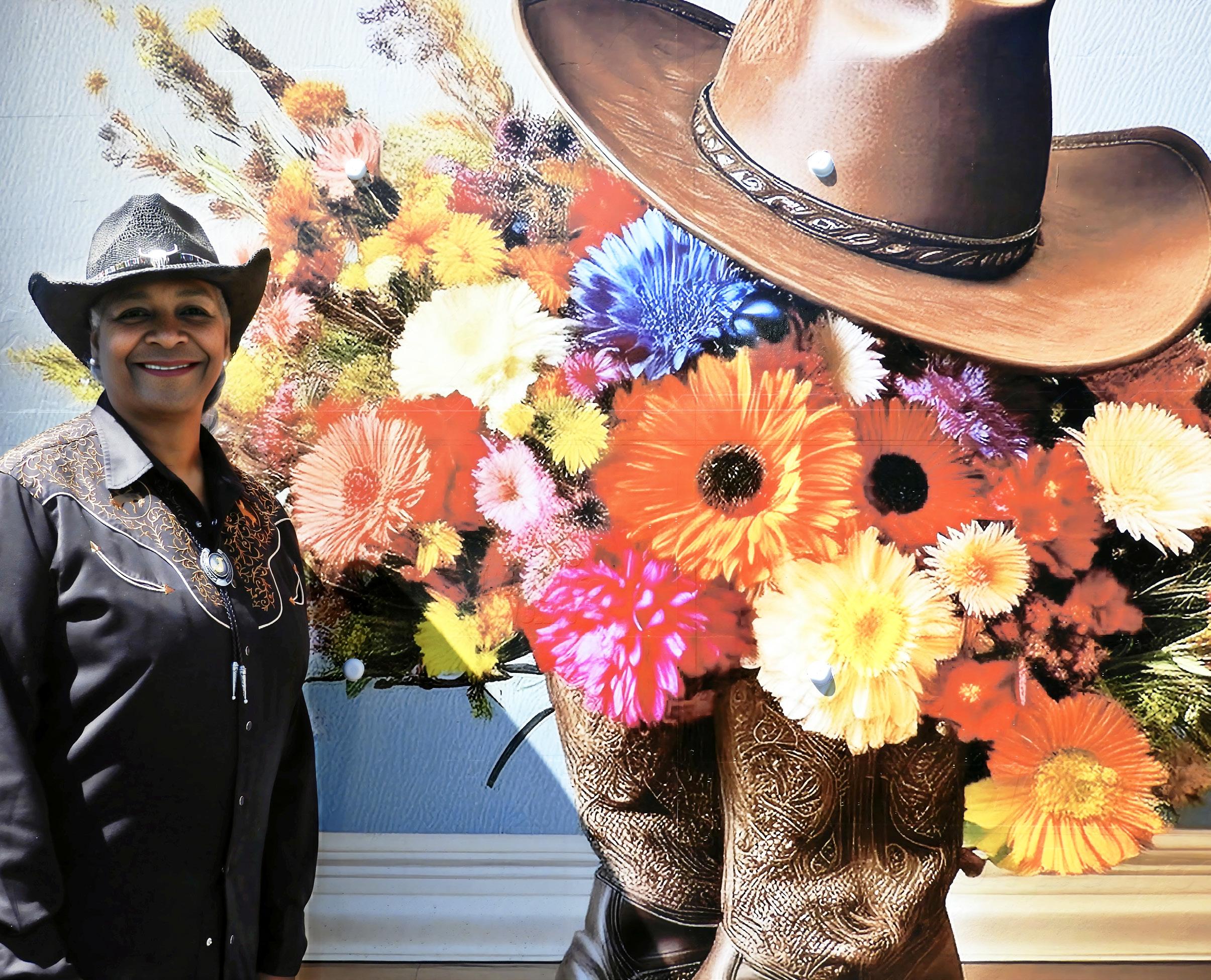
Williams Florist, led by Janie Williams, has been a cornerstone of the Charlotte floral community for nearly two decades. From its humble beginnings in Charlotte to the recent expansion into Shelby, North Carolina, Williams Florist has blossomed into one of the premier flower shops in the region. Janie’s passion for floral design, inspired by her mother’s creativity, has allowed her to create breathtaking, custom arrangements for countless occasions, making every event unique and unforgettable. With nearly 20 years of experience, Janie and her talented team bring your floral visions to life, whether

for weddings, corporate events, or simply to brighten someone's day.
At Williams Florist, we know that every detail matters when it comes to creating an extraordinary event. That’s why we are thrilled to collaborate with Eloquent Creations Catering & Design Services, owned by the exceptional Mrs. Vereda Elliott. With her wealth of experience and commitment to perfection, Mrs. Elliott has catered for political dignitaries and leaders, bringing an elegant touch to each gathering. Her attention to detail and passion for stunning presentations will elevate any event.
Together, Williams Florist and Eloquent Creations offer an unforgettable event experience—transforming your celebration into a dream come true. Imagine stepping into a venue filled with exquisite floral arrangements, paired with delectable cuisine that delights every sense. Whether you’re planning a fairytale wedding, an intimate gathering, or a corporate event, we combine our expertise and artistry to create a breathtaking experience that will exceed your expectations and leave a lasting impression.



For Vereda Elliott, elegance is more than aesthetics—it’s an experience. As the visionary behind Eloquent Creations Catering & Design Services, Vereda has elevated events throughout the Carolinas with breathtaking design, five-star presentations, and secondto-none white-glove customer service. ECCS brings passion and precision to every event, ensuring that each moment is unforgettable!
Vereda is a proud Johnson C. Smith University graduate and a native of Ivanhoe, NC.
Dinner in Rome sparked her calling — watching women in evening gowns glide through the restaurant serving chocolate-covered strawberries, “I told my husband, ‘I can do that,’” she recalls. “Not

just the look — but the embodiment of unwavering excellence.”
That moment became the foundation for a brand trusted by presidential campaigns, civic leaders, and families, marking life’s most precious milestones. Whether serving 40 guests or 1,000, Vereda insists the mission remains the same: exceptional service, heartfelt hospitality, and unforgettable memories!
Her most cherished project was transforming a plain classroom into a regal ballroom for a couple celebrating 57 years of marriage—a testament to her gift for turning ordinary spaces into extraordinary experiences!
Throughout the years, Eloquent Creations has demonstrated a heartfelt commitment to the senior community. One of the most meaningful traditions has been the annual dinner hosted and sponsored by the
company—a time of fellowship designed to honor and celebrate seniors with warmth, elegance, and appreciation. “It’s one of the highlights of our year,” Vereda shares. “We want them to know they are seen, valued, and deeply loved.”
With a reputation built on experience and excellence, Eloquent Creations has forged lasting relationships with clients across generations. “It’s never just about the food,” Vereda says. “It’s about the memories we help create—ones that stay with you long after the plates are cleared.
And it’s always great to have Janie Williams, Owner of Williams Florist, on site.”
Looking ahead, Vereda is preparing to open her own signature event venue—a dream years in the making. The future space will reflect her hallmark style: grand, graceful, and unforgettable.











